Impatient to wait for the restoration project of this ancient site to finish I decided to visit it and as a result you and I are first timers on this one. I wasn't officially allowed to do that but I gave it a go ignoring the warning signs on the way and I'm here to share with you my harvest.
Ready? Let's go:
It might be your first time around my following findings but not the first time I introduce you to the beauty of Sounio's National Park. The area is more famous about the emblematic temple of Poseidon overlooking the sea at one of the most scenic ancient sites in the world:
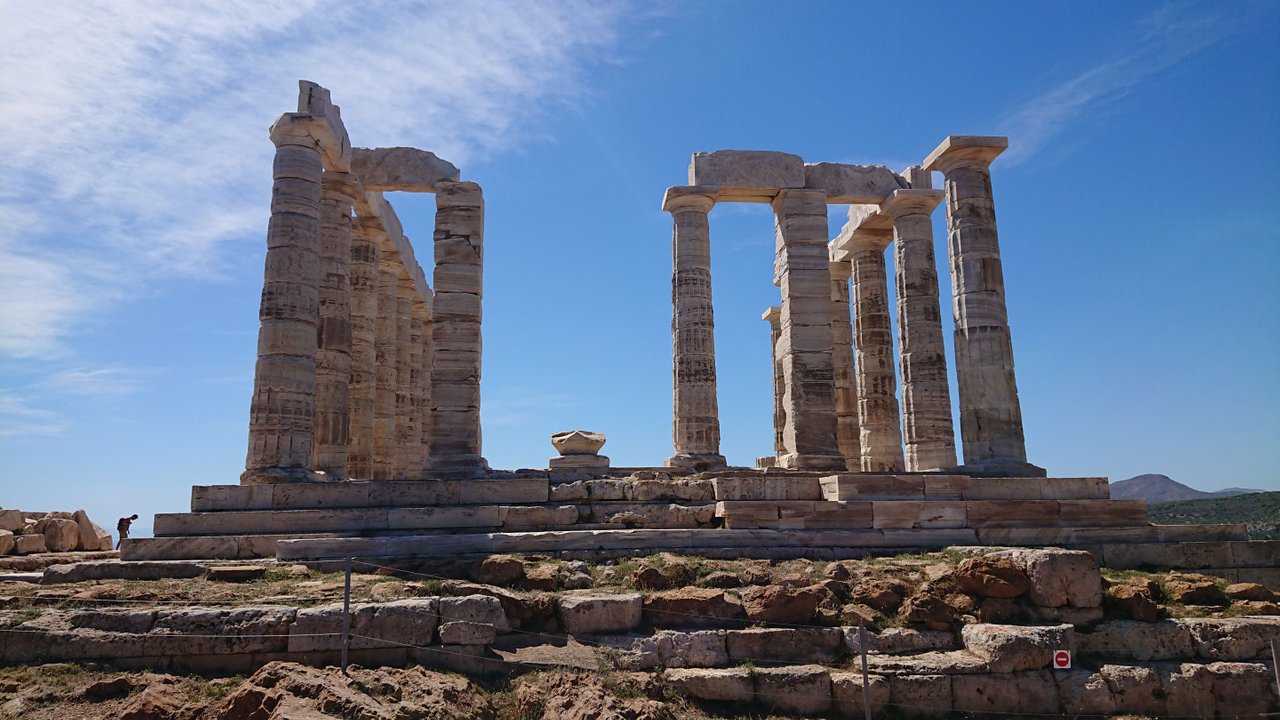
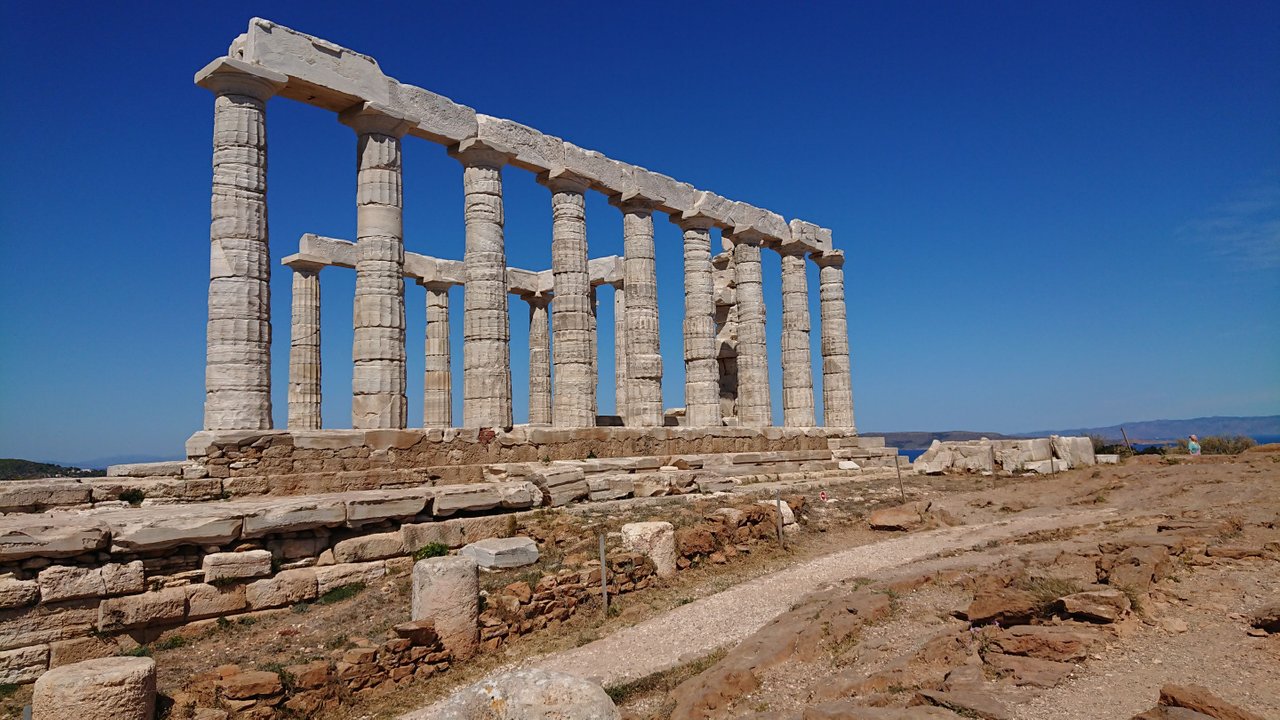
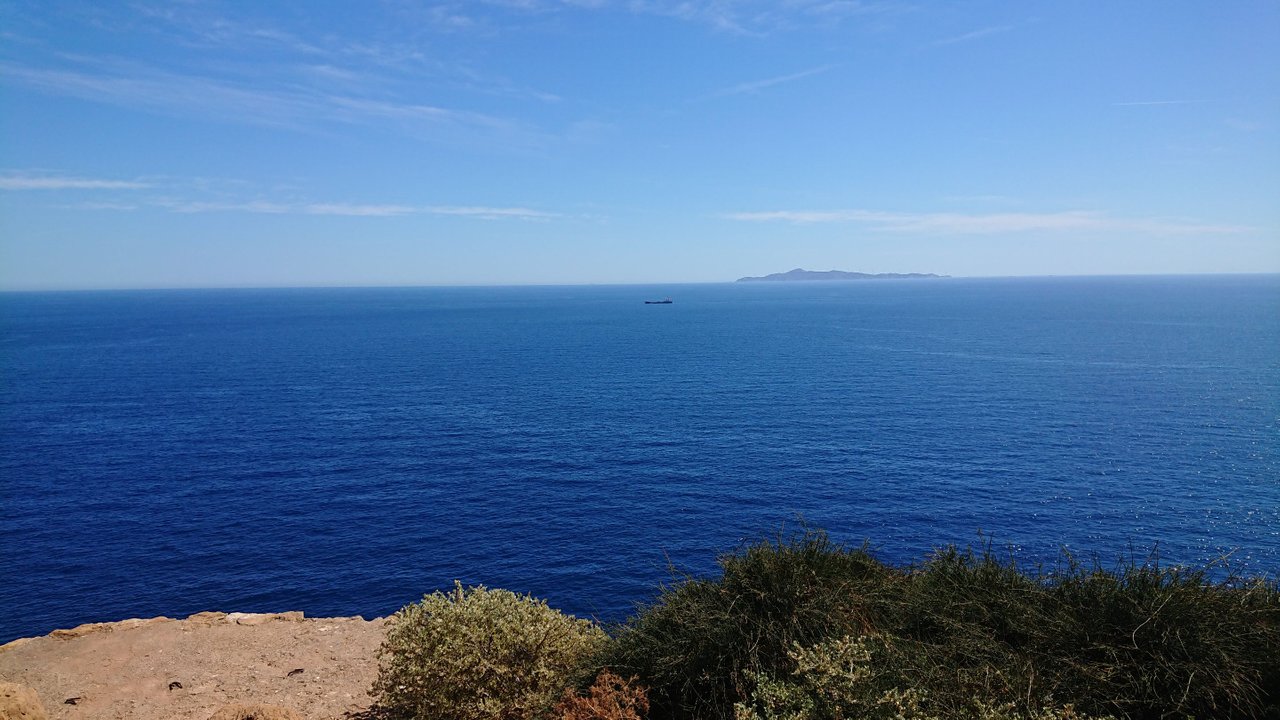
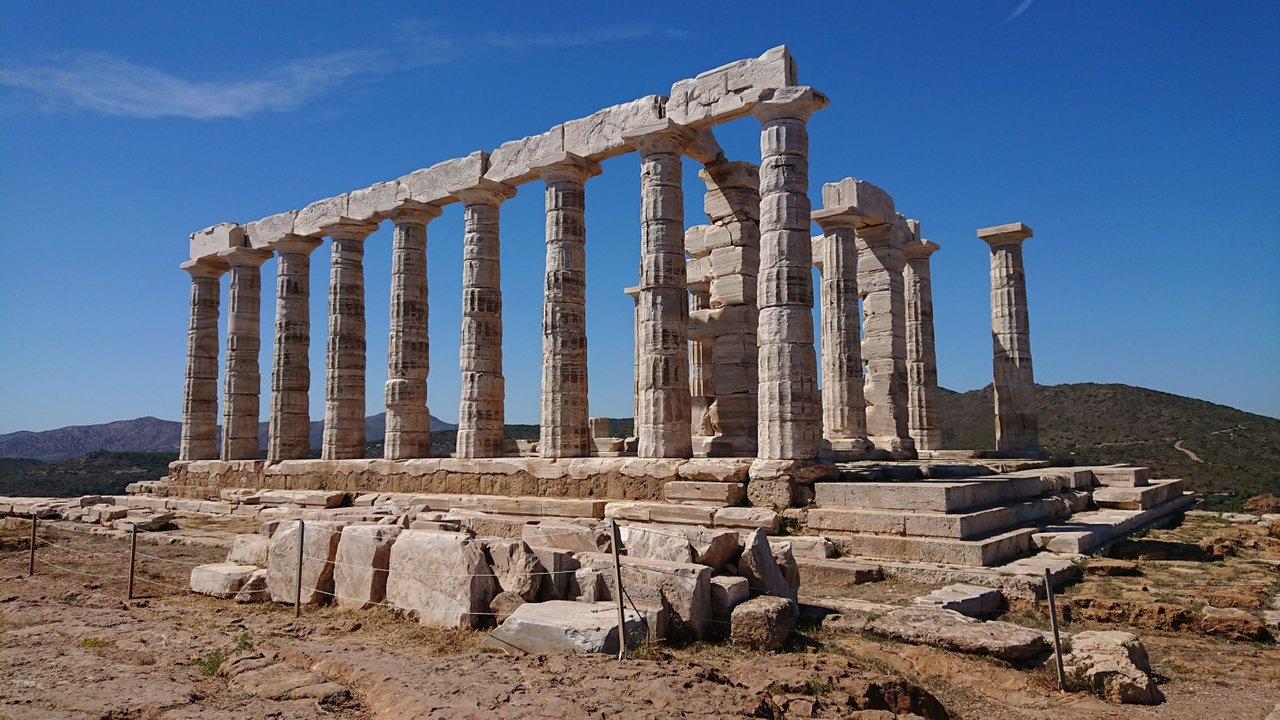
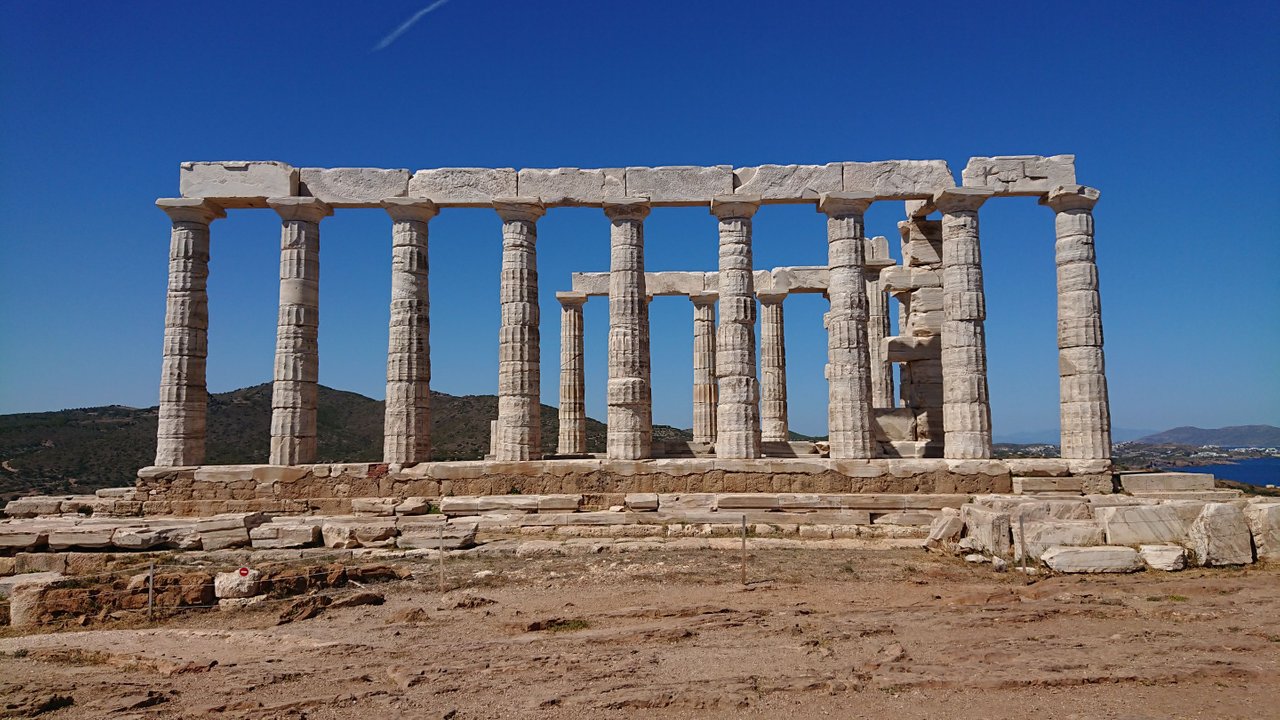
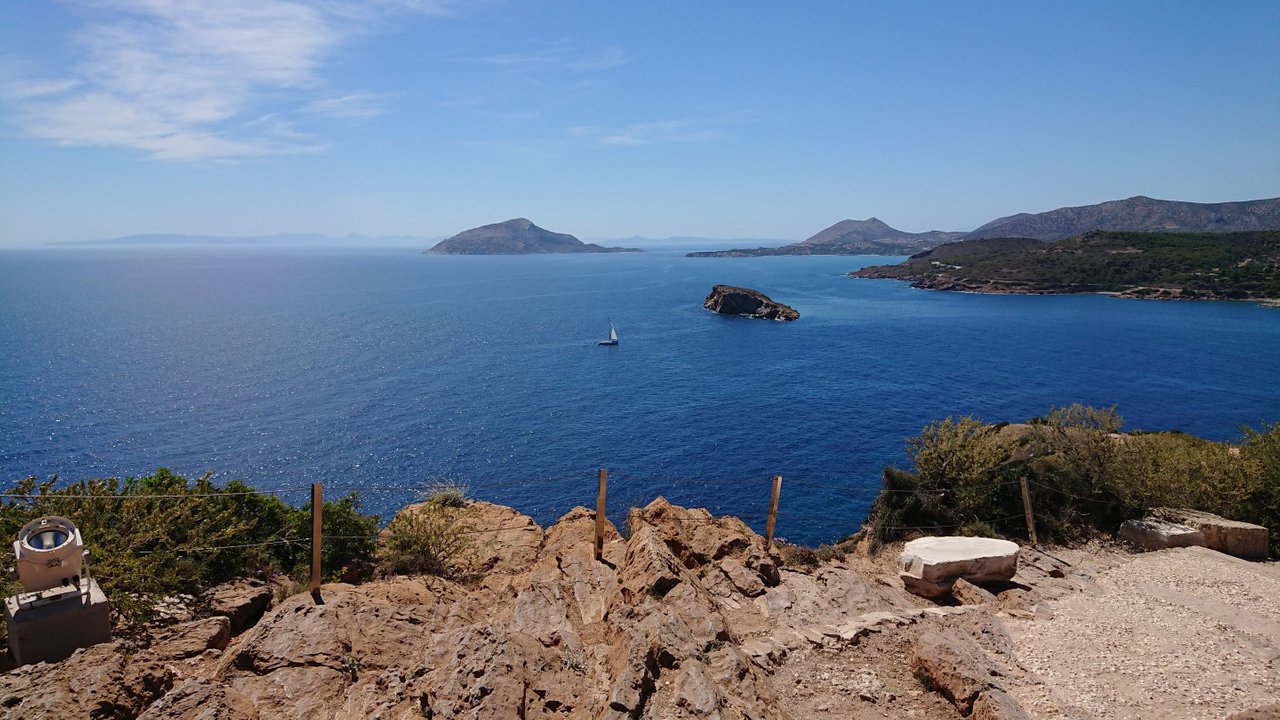
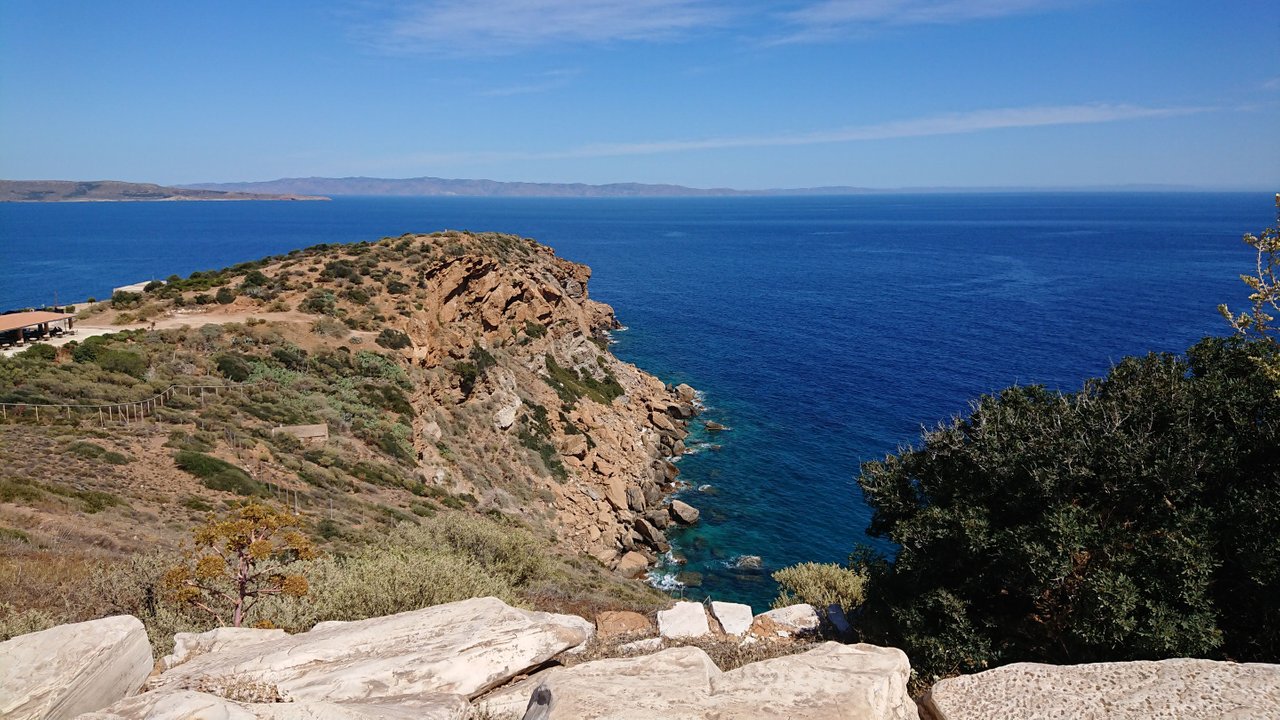
However, the forest of the local park is hard to beat. The scent of the pine trees, their green contrasting the blue sky and the sound of the wind caressing them will keep your senses beyond satisfied. It manages to impress even me as a local every single time I am around and it's been a very long time since I've lost counting.
Once you visit it you will also lose counting marvellous view points like the following:
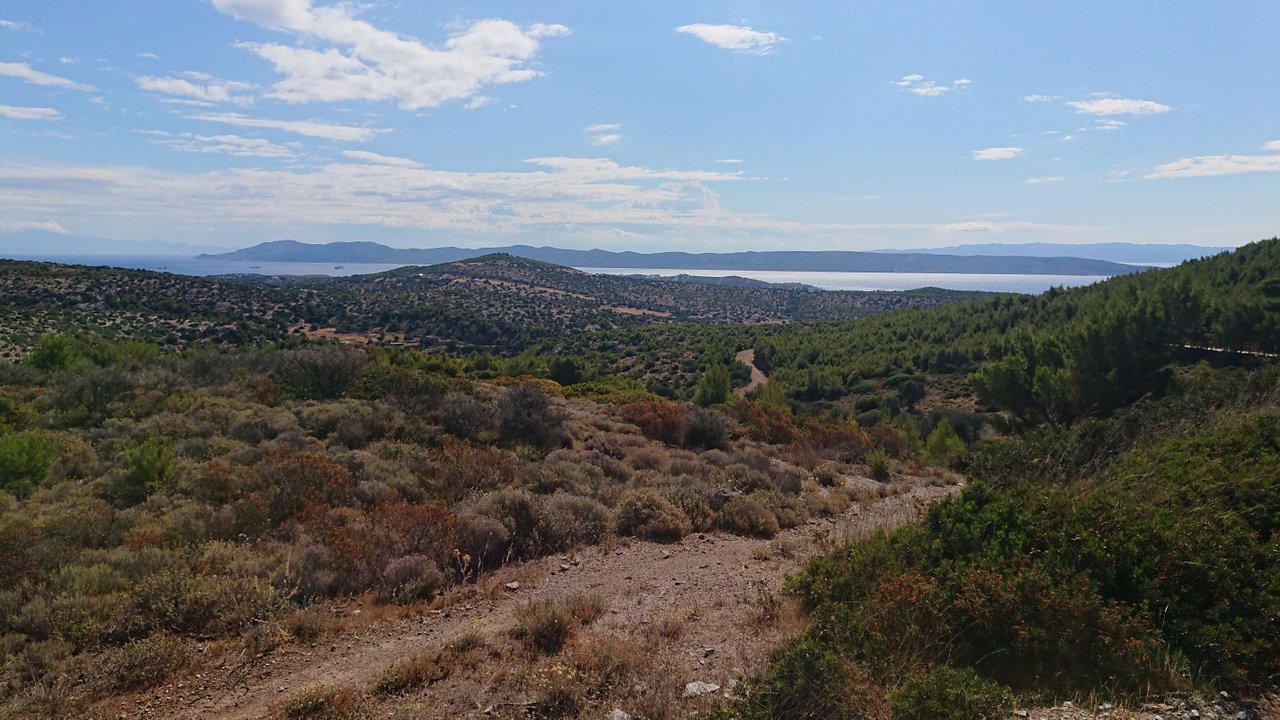
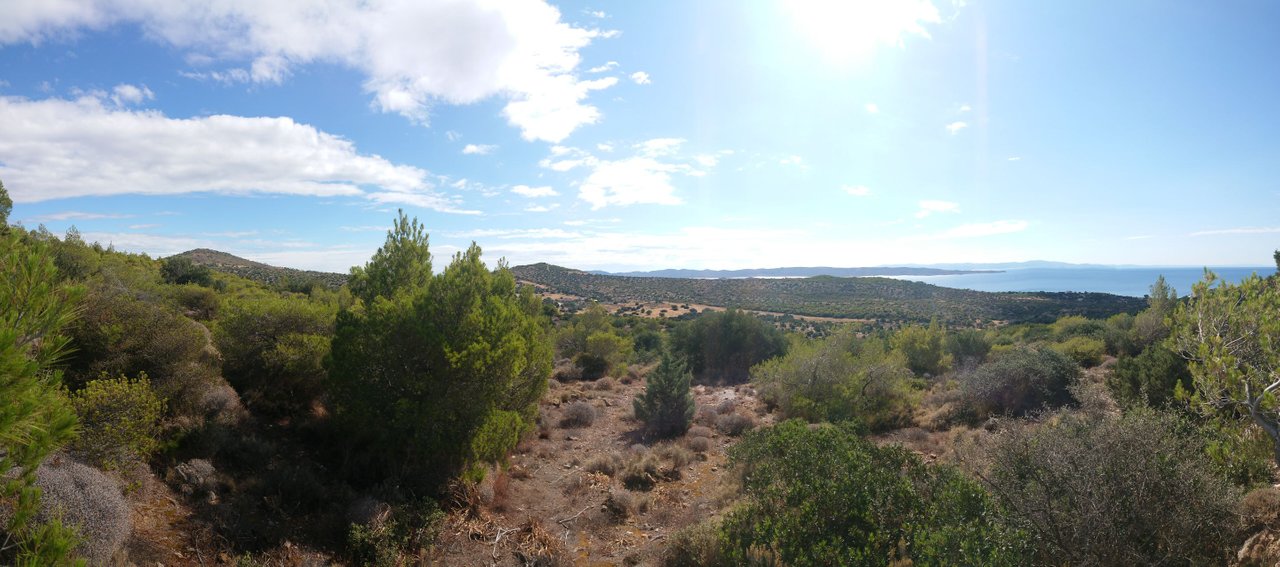
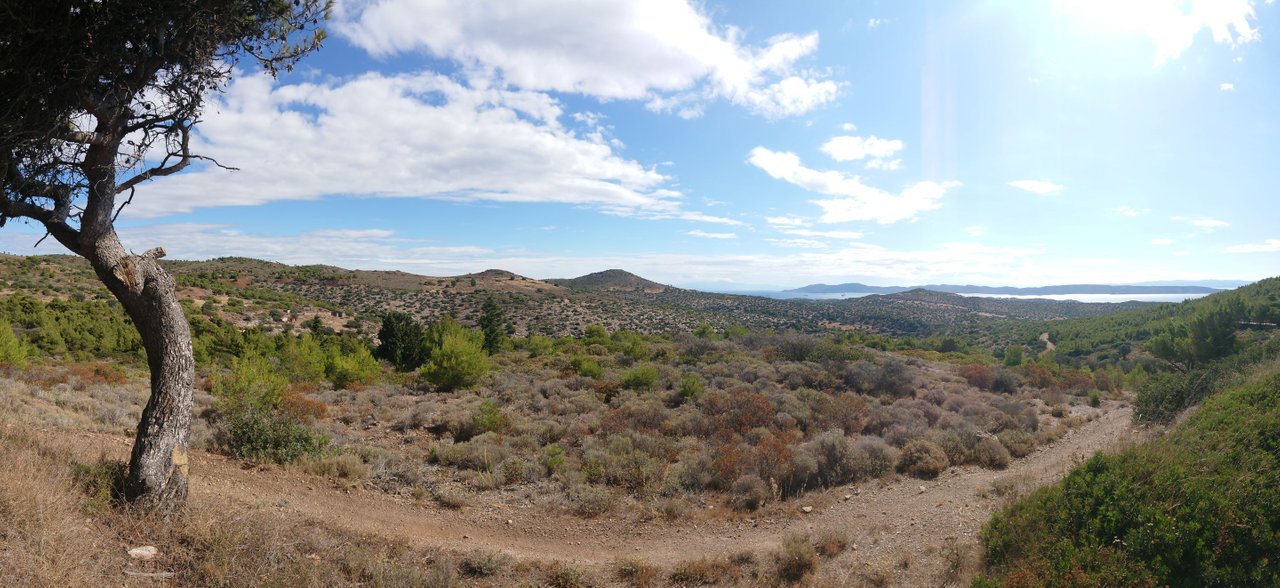
There's parts of the route going up that offer you sea view from both sides:
| Left view: | Right view: |
|---|
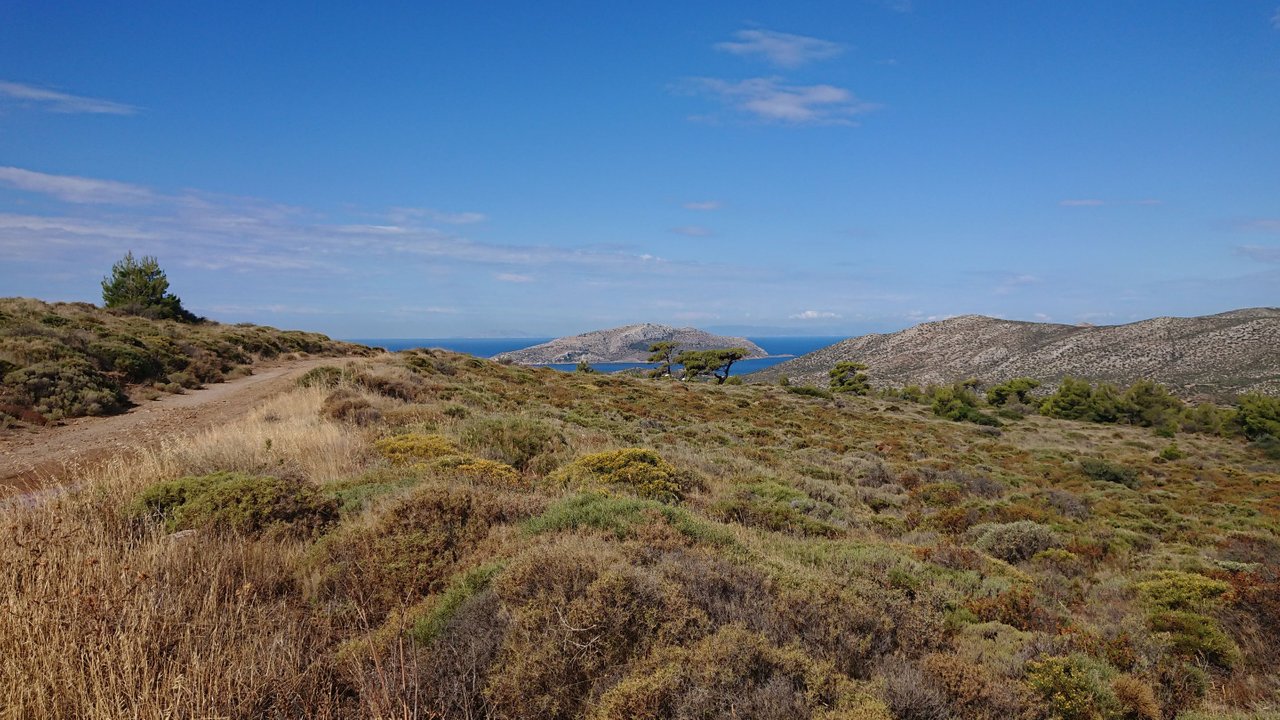 | 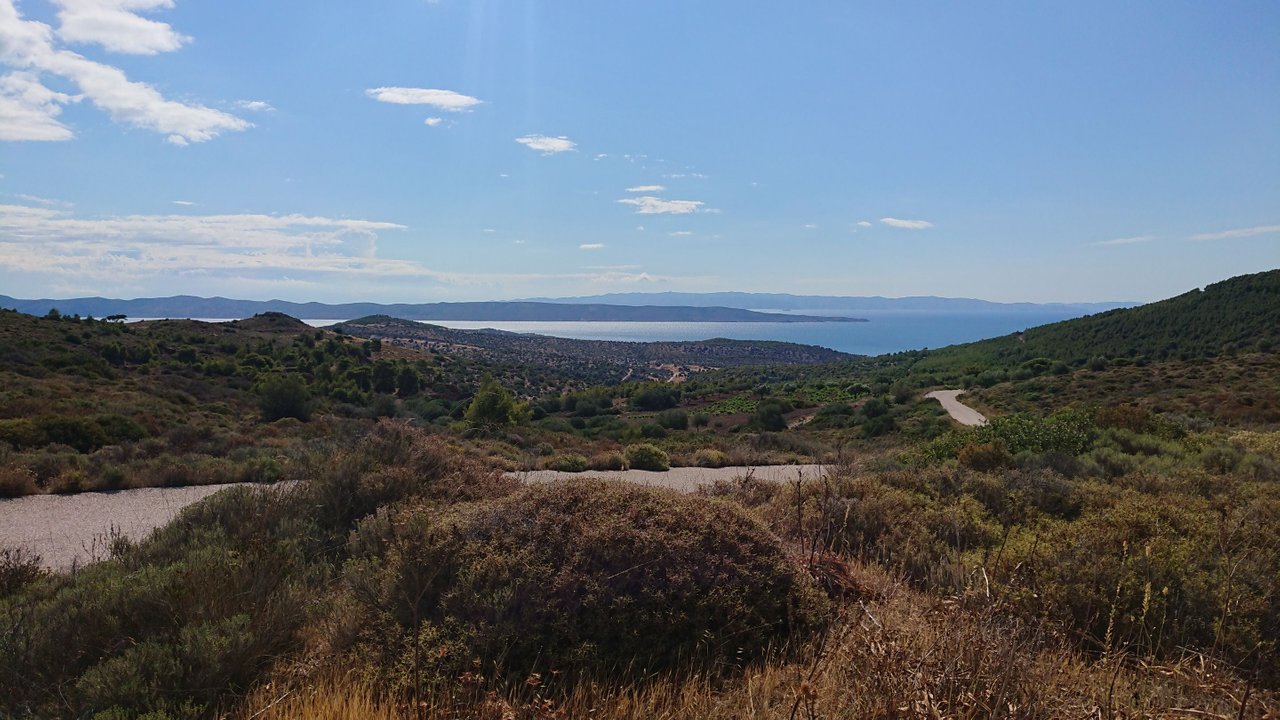 |
I leave the car under the shade of pine trees at the church of Ag. Triada and continue cycling on gravel routes (totally off road at times).
Let me do a little history flashback as an intro for the ruins you will see later:
The whole area used to be very rich in silver with the oldest silver mine dating back in 3000 B.C. One of the reasons behind Athens's victorious fights against Persians 2500 years ago was this mineral wealth. Sliver mines were deserted after the beginning of the Roman period but centuries later in the mid 19th century signore Giovanni Serpieri from Rimini saw potentials on silver that the newer than ancient technology could take advantage from. Old mines were reactivated but many new ones were created making the mountain look like Swiss cheese and the local economy go sky rocketing (till they were all closed for good around a century later).
In the next pictures you can see what is left today from those 19th century buildings:
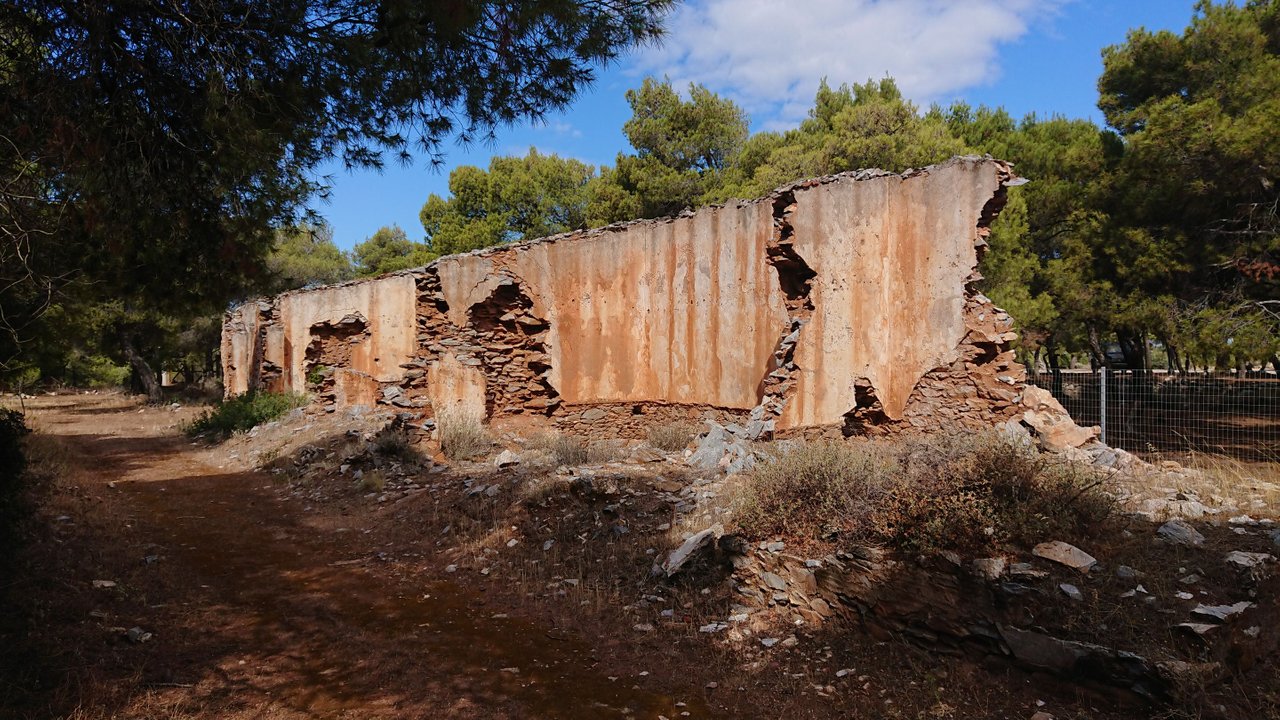
Probably workers houses judging by the size of those rooms - have a closer look to their small fireplace and chimney:
Another abandoned stone house is now totally covered by a pine tree which back in the day that house was built I doubt it could even offer any decent shade (if it existed at all in the first place):
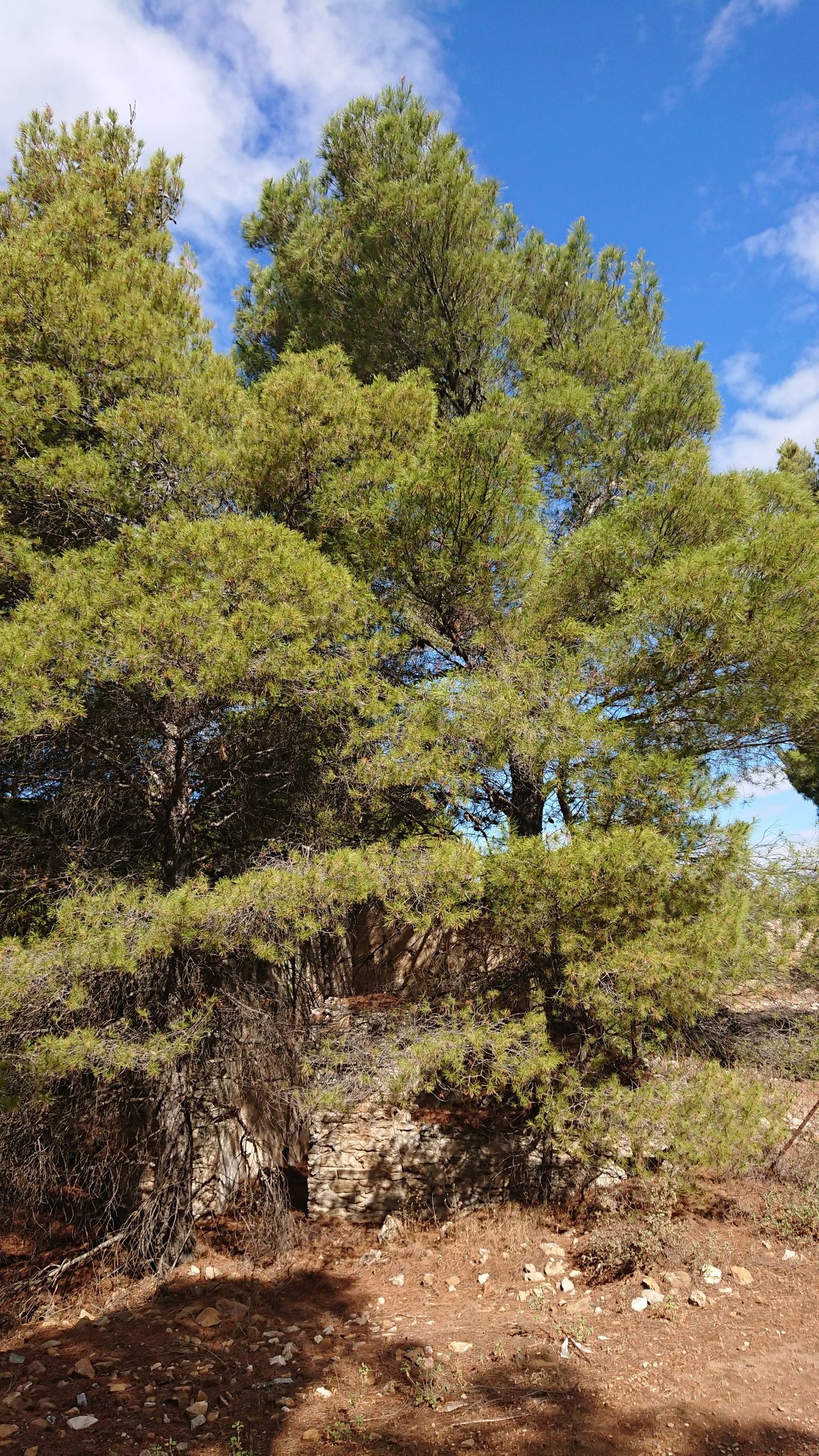
A few meters later the black scars of the recent wild fire with piles of mineral waste and ruins of stone constructions make past and present meet in a rather odd way:
I told you something about Swiss cheese before and I hope you took it seriously cause (as my followers know) I do zero clickbaiting here:
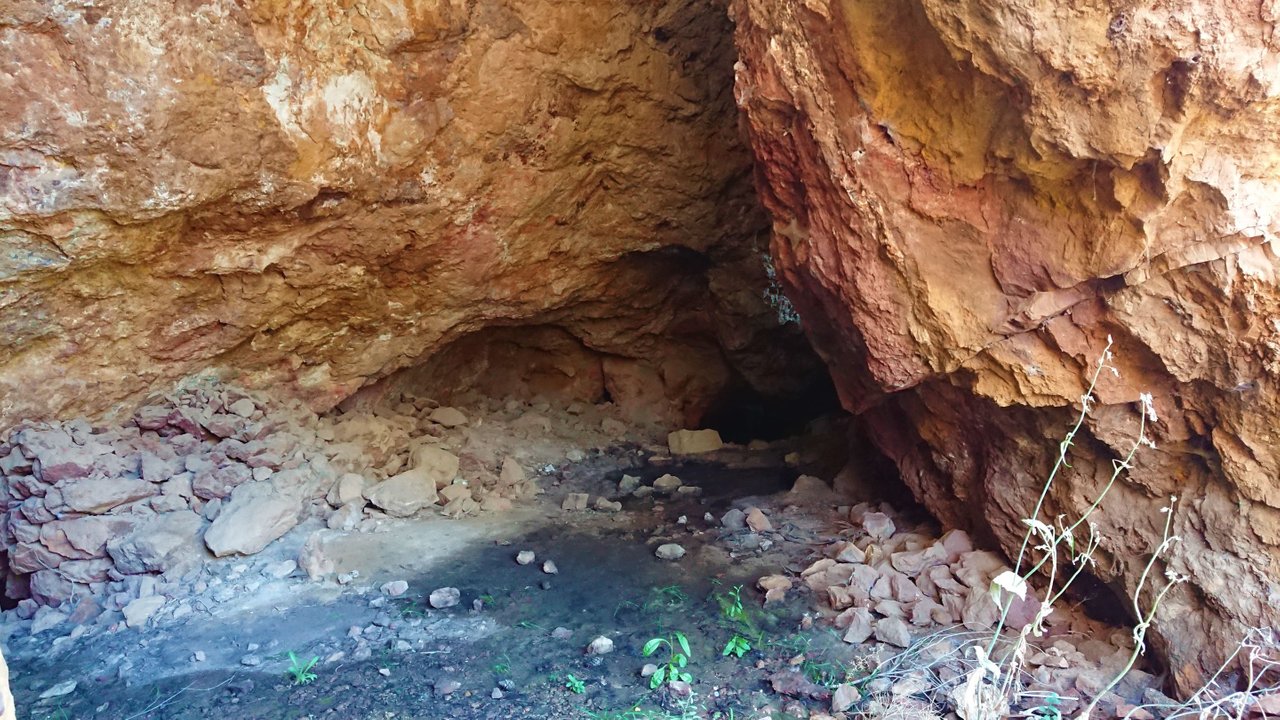
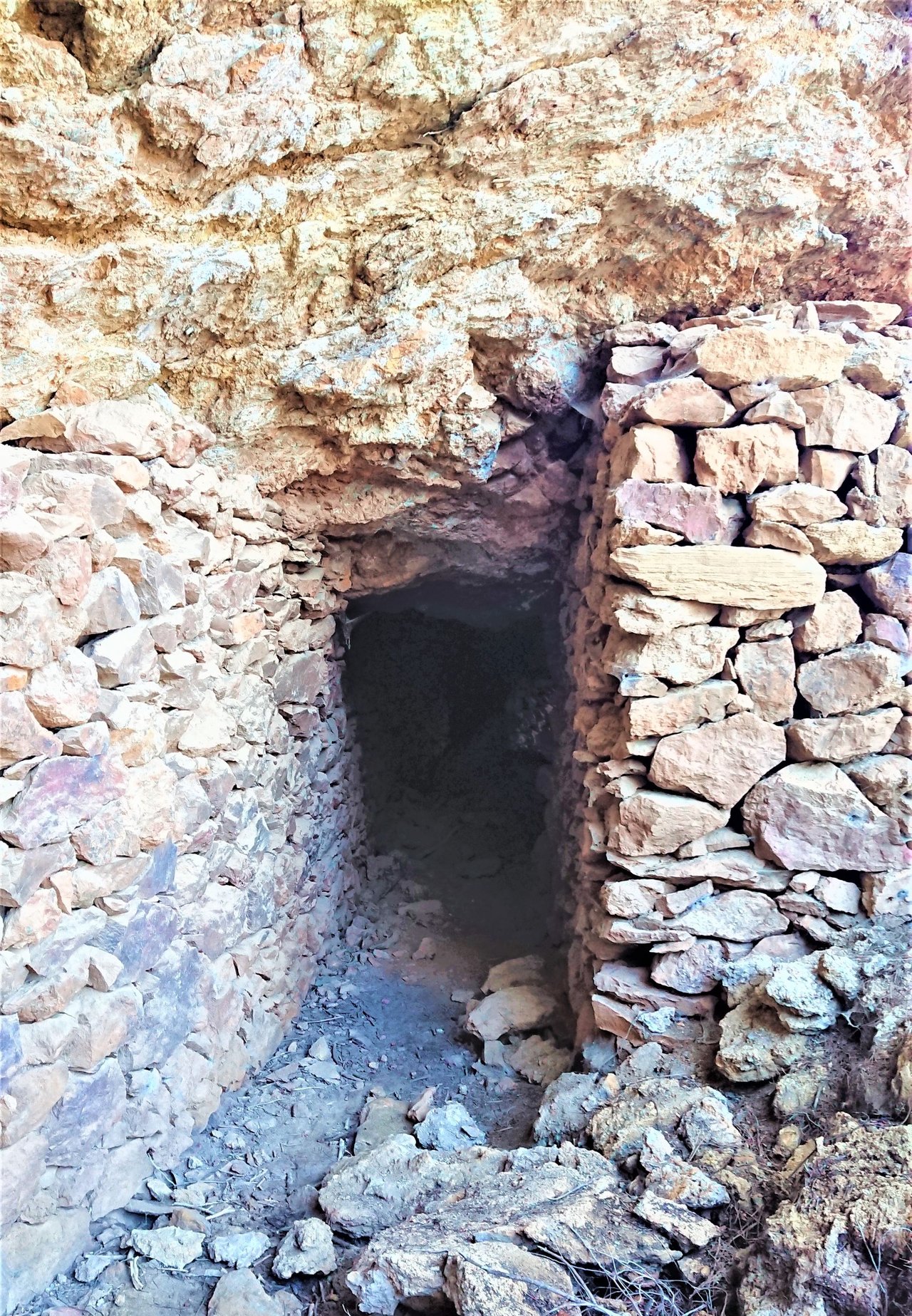
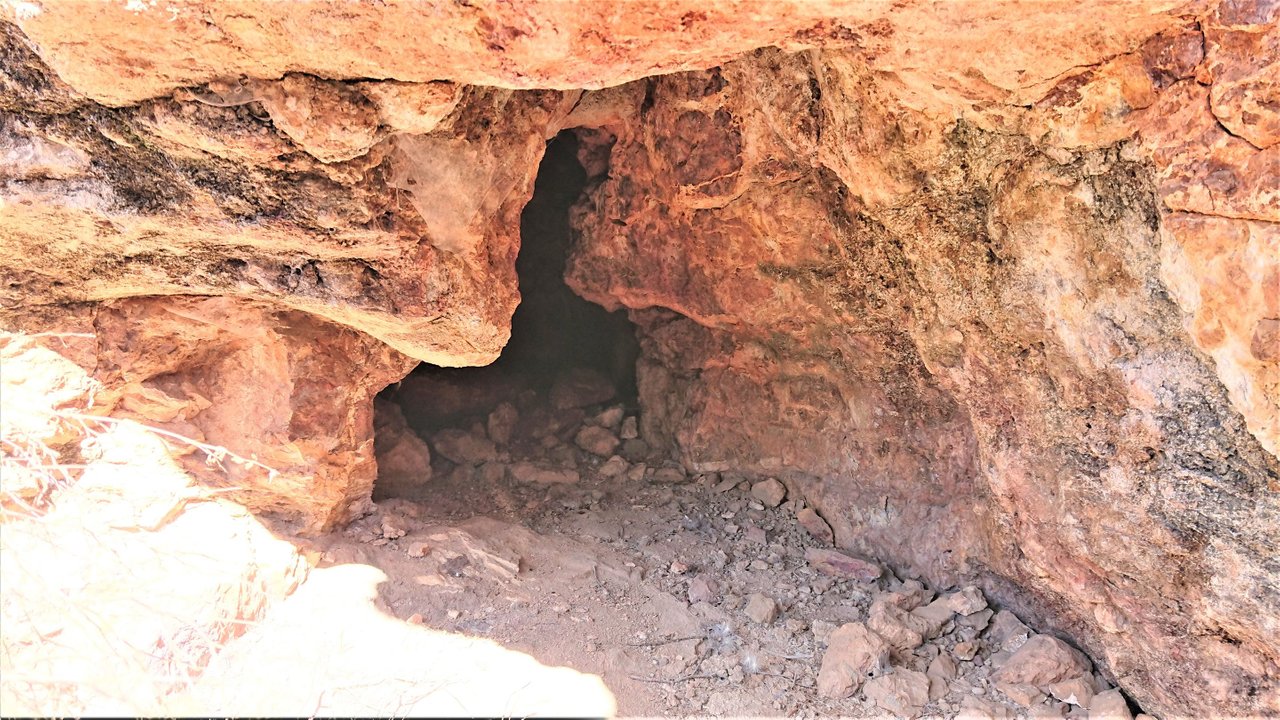
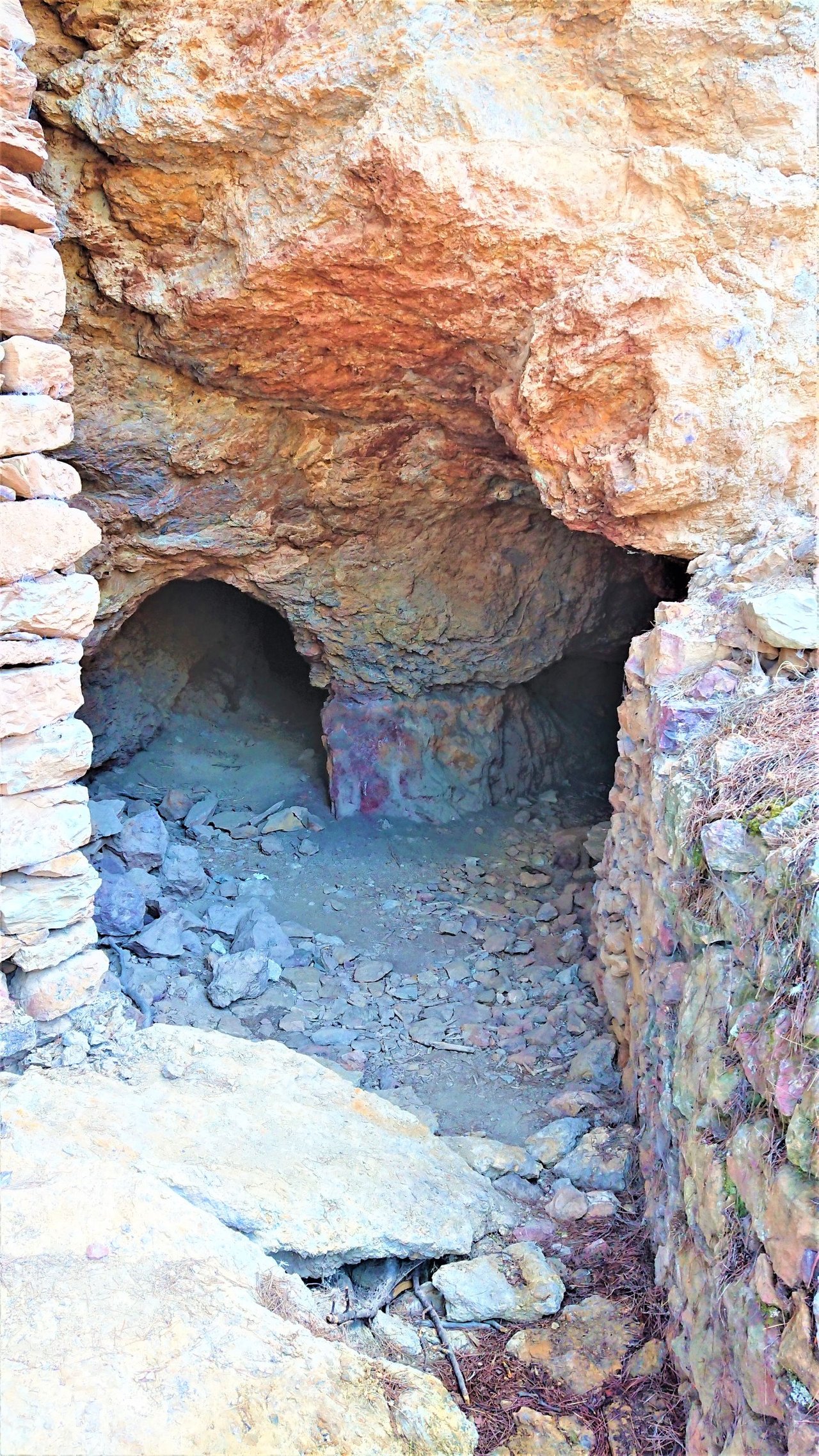
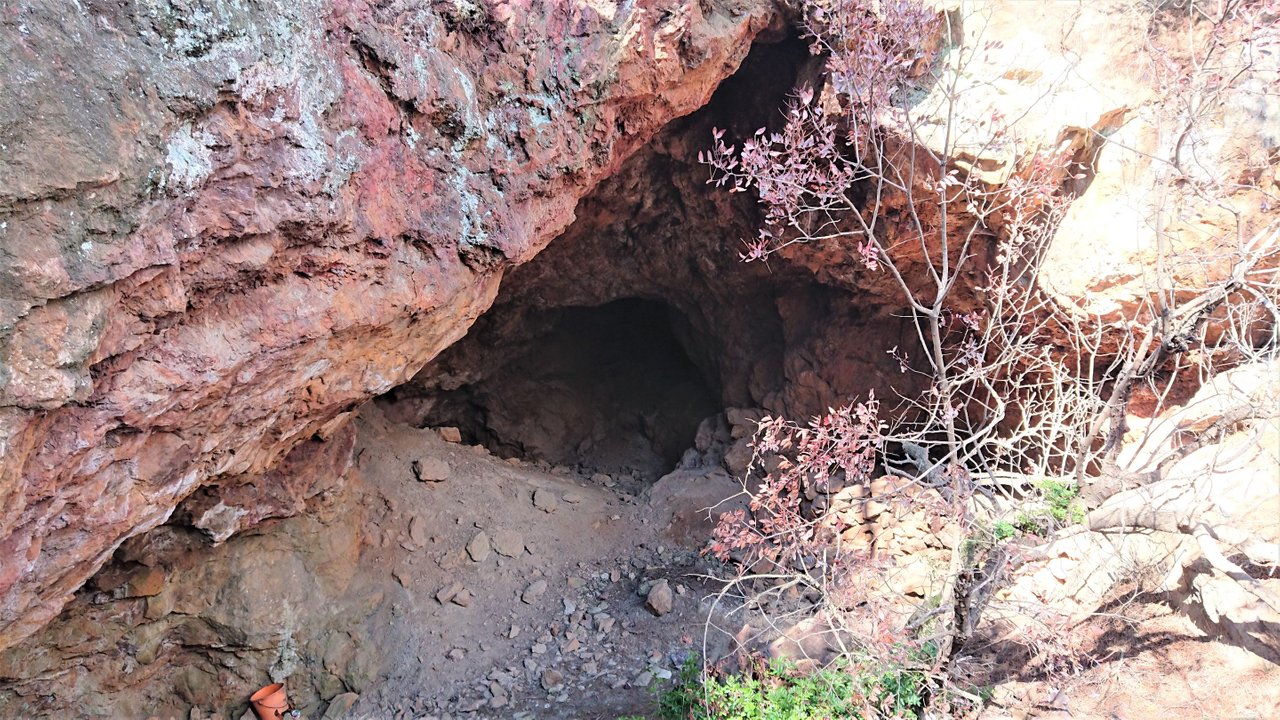
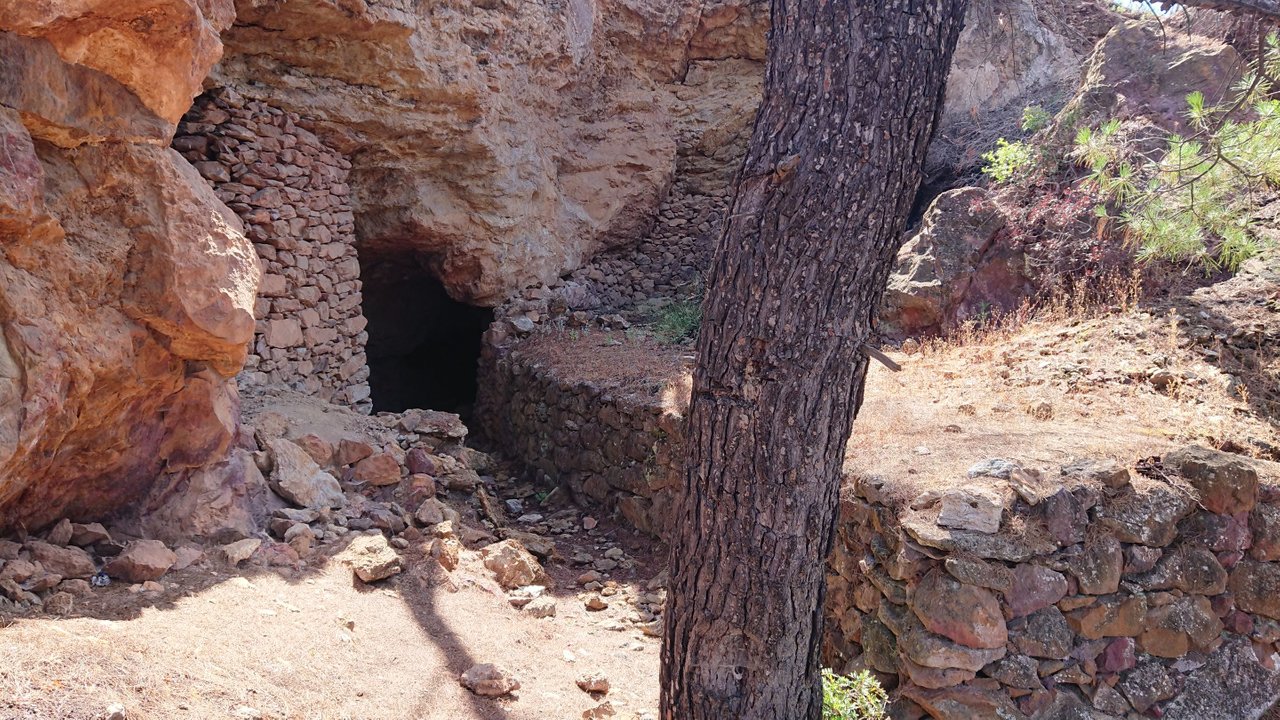
Sometimes it feels to me as if I am in the Far West during the Gold Rush era but then I just look at the sea and I know it's Hellenic as it gets.
It feels like the rock is staring at me as I face this:
In this weird scenery I applaud this pine tree that not only survived the fire but brings "living on the edge" at another level:
I cycle off road to see the ruins from close. It's a sad view especially with all this black from the last fire and makes it even more sad for me since it reminds me how the latter started. I am not sure you'd like to know cause it's like Woody Allen in the most fuming version possible. Ok, you're curious I guess, let's make a parenthesis to give you this insight:
Stupidly enough, in the heart of this exceptional pine forest (keep the keywords "exceptional" and "pine" in mind, or better say "beautiful" and "flammable af") it was decided to build an ammunition factory (not sure which year but many decades ago). Does that sound stupid enough? Maybe not for some morons who decided to take this to another level: in the heart of the previous summer they thought it was a good idea to test guns, probably without any special reason and definitely without safety measures. 0.6 square km of burned forest later the fire was over making this odd combo: The beautiful sky, the ruins and bits of black that still, a year later, give their odour:
On my right hand is one more neglected stone house,
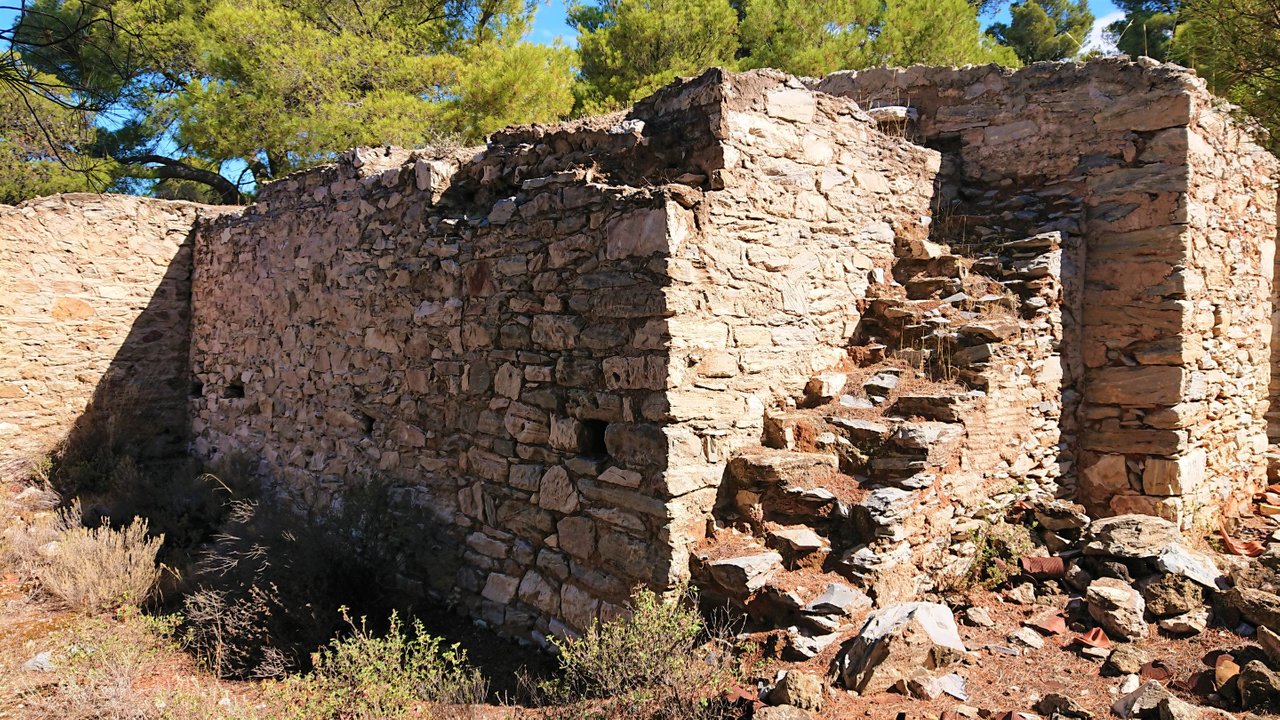
which by the looks of those gross attempts of repair it might be better of without any at all:
I get closer to my "target" but the scene remains odd:
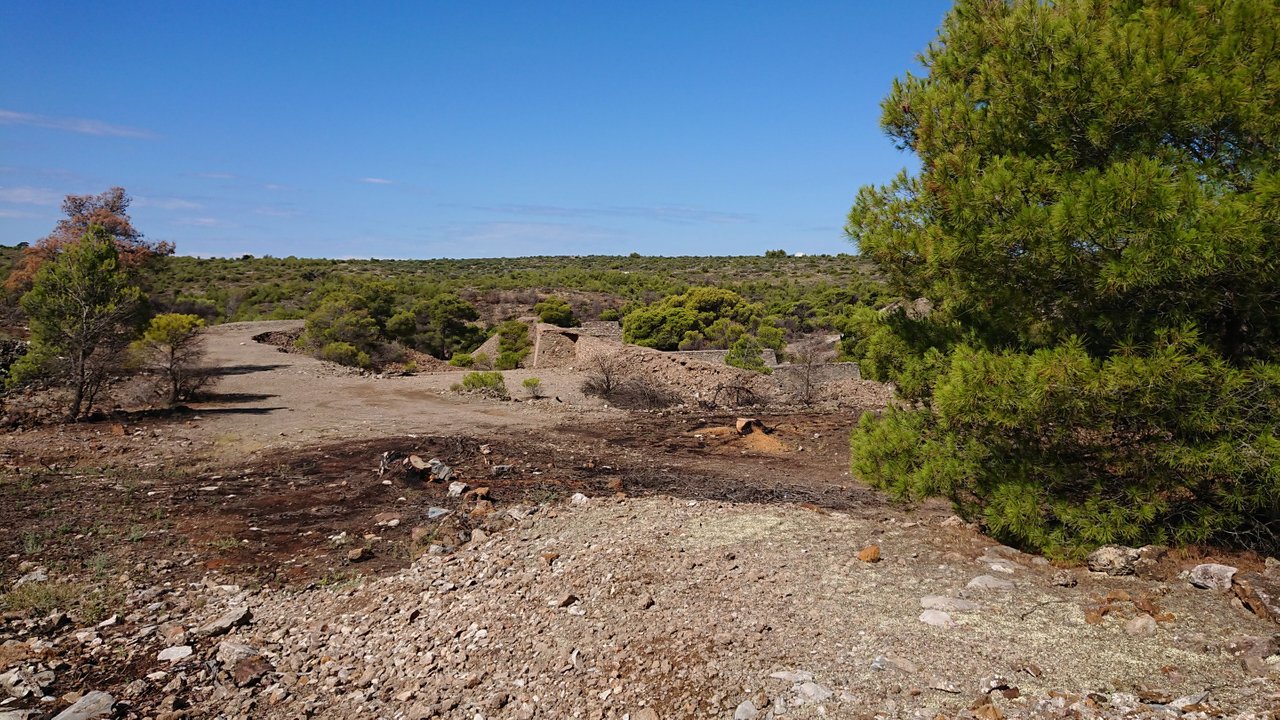
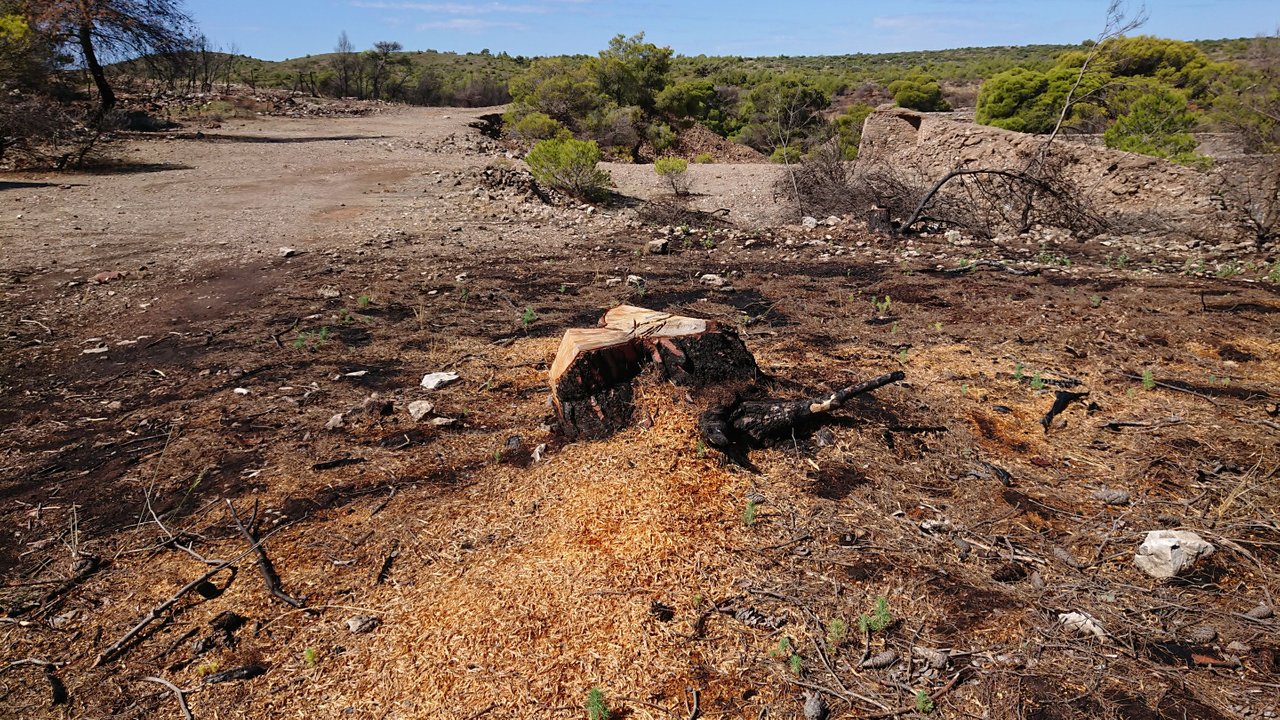
However, I like how trees pop up on every single chance given, beautifying the ruins and the fire's aftermath:
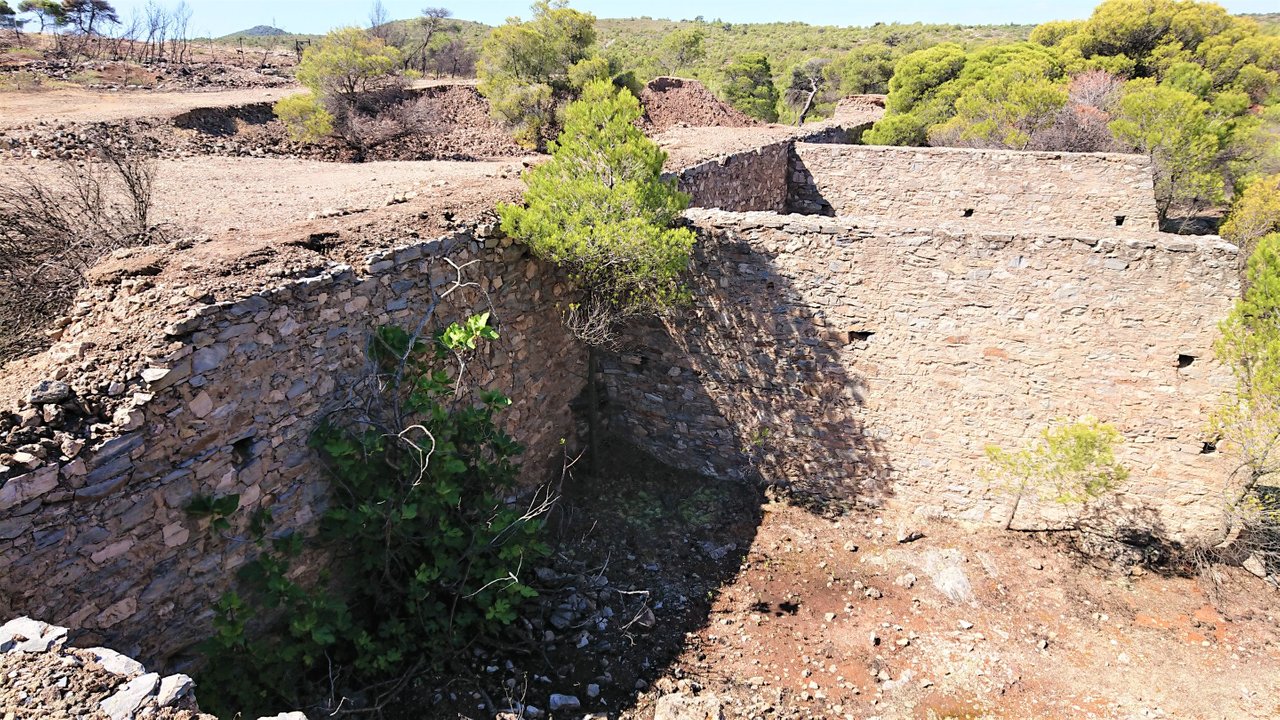
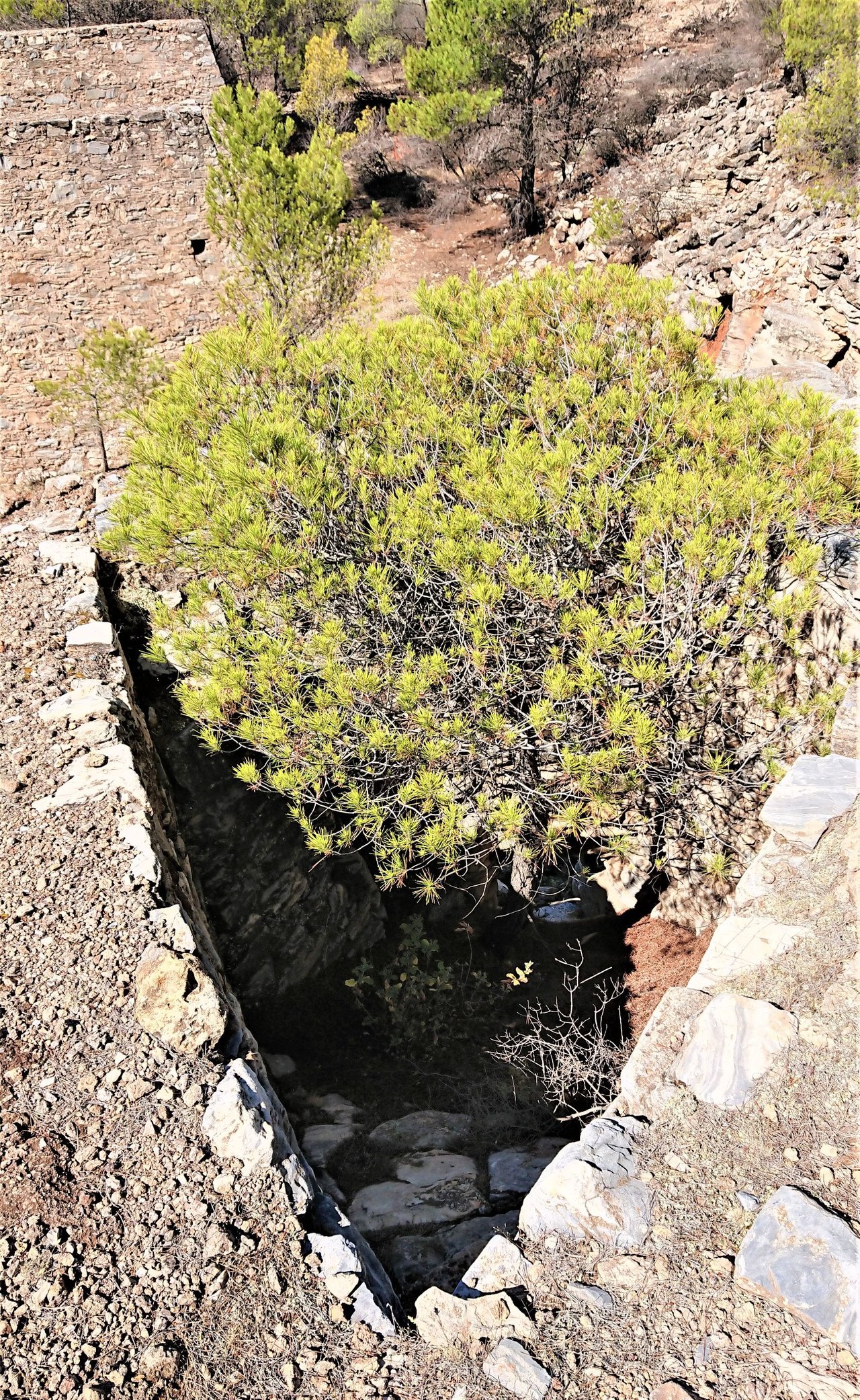
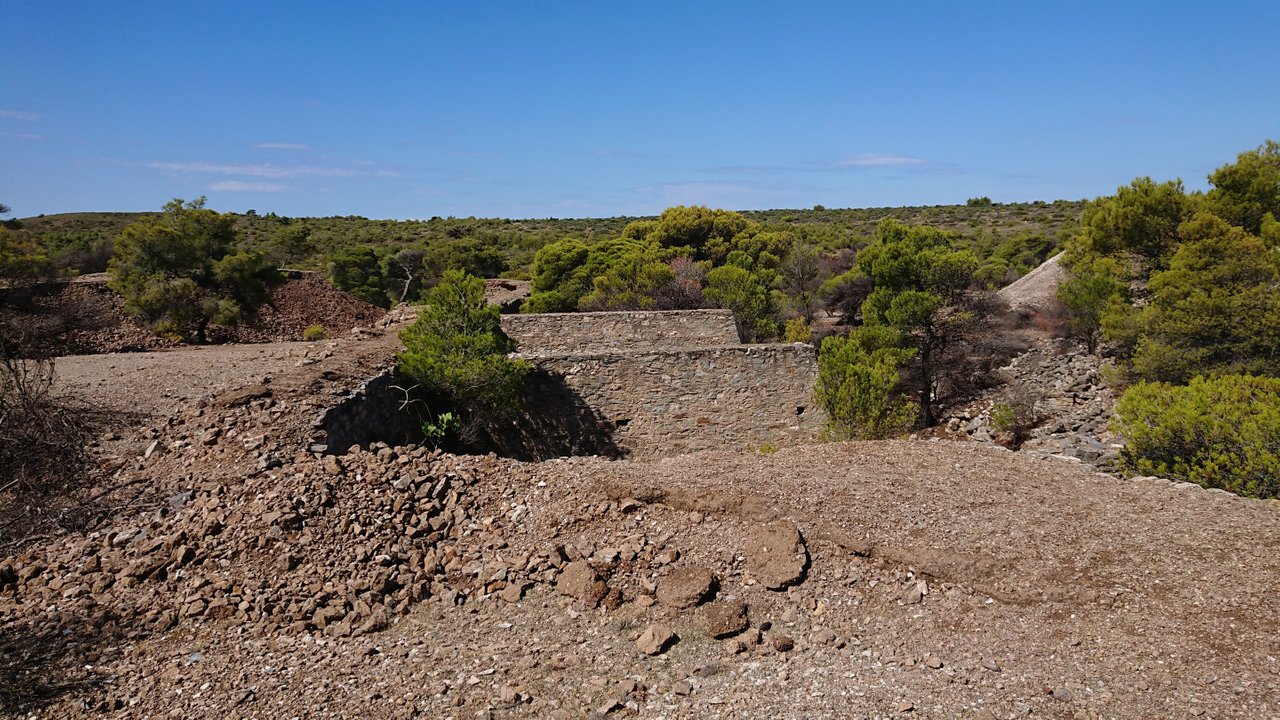
At this point it's getting hot so...there goes my shirt on the handlebar 🙂
I can't really figure out what was the use of this following one but it goes back to the 19th century for sure, could have been a warehouse:
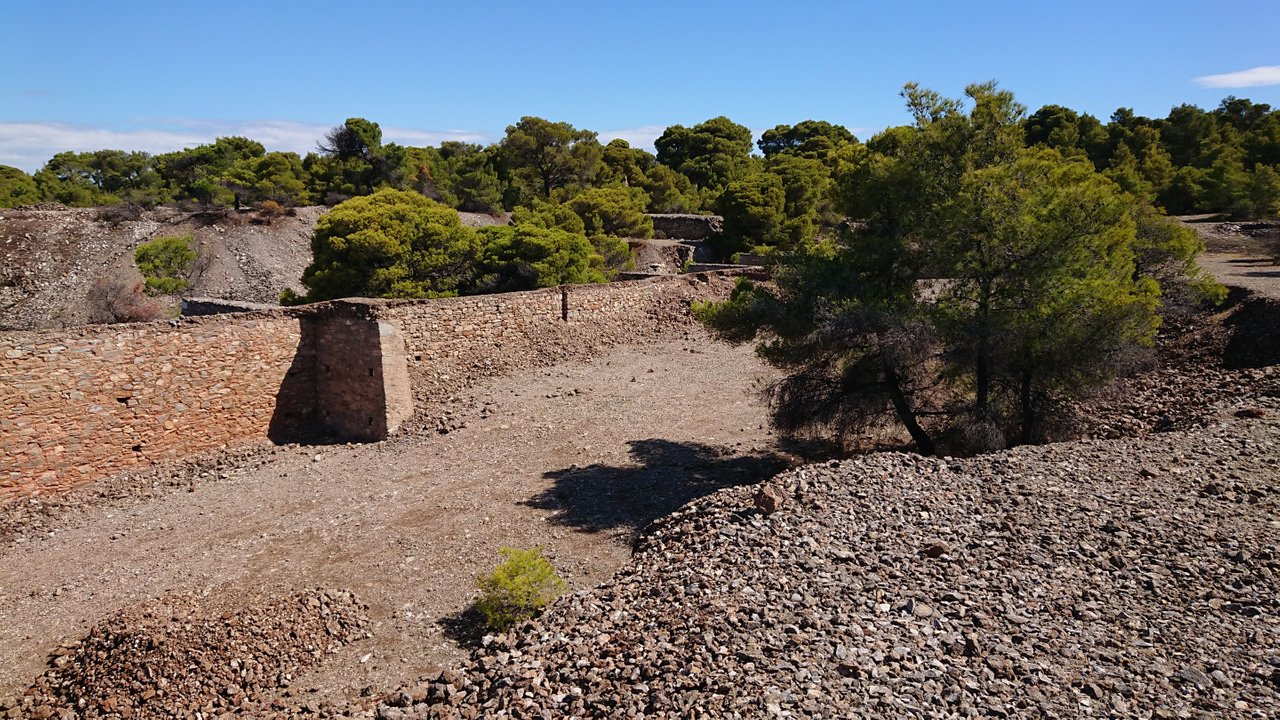
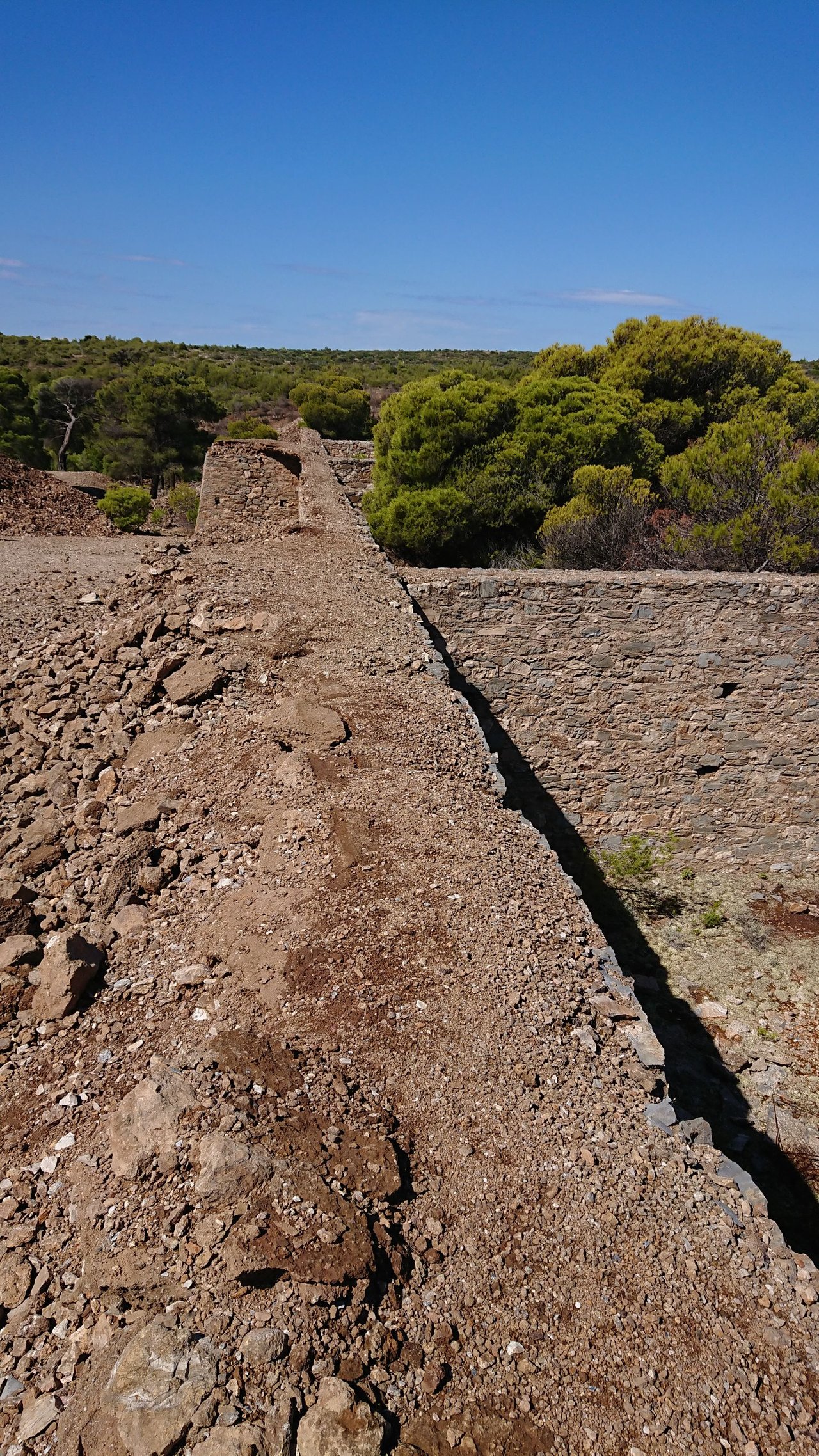
I continue cycling closer to my target when I find another impressive survivor tree:
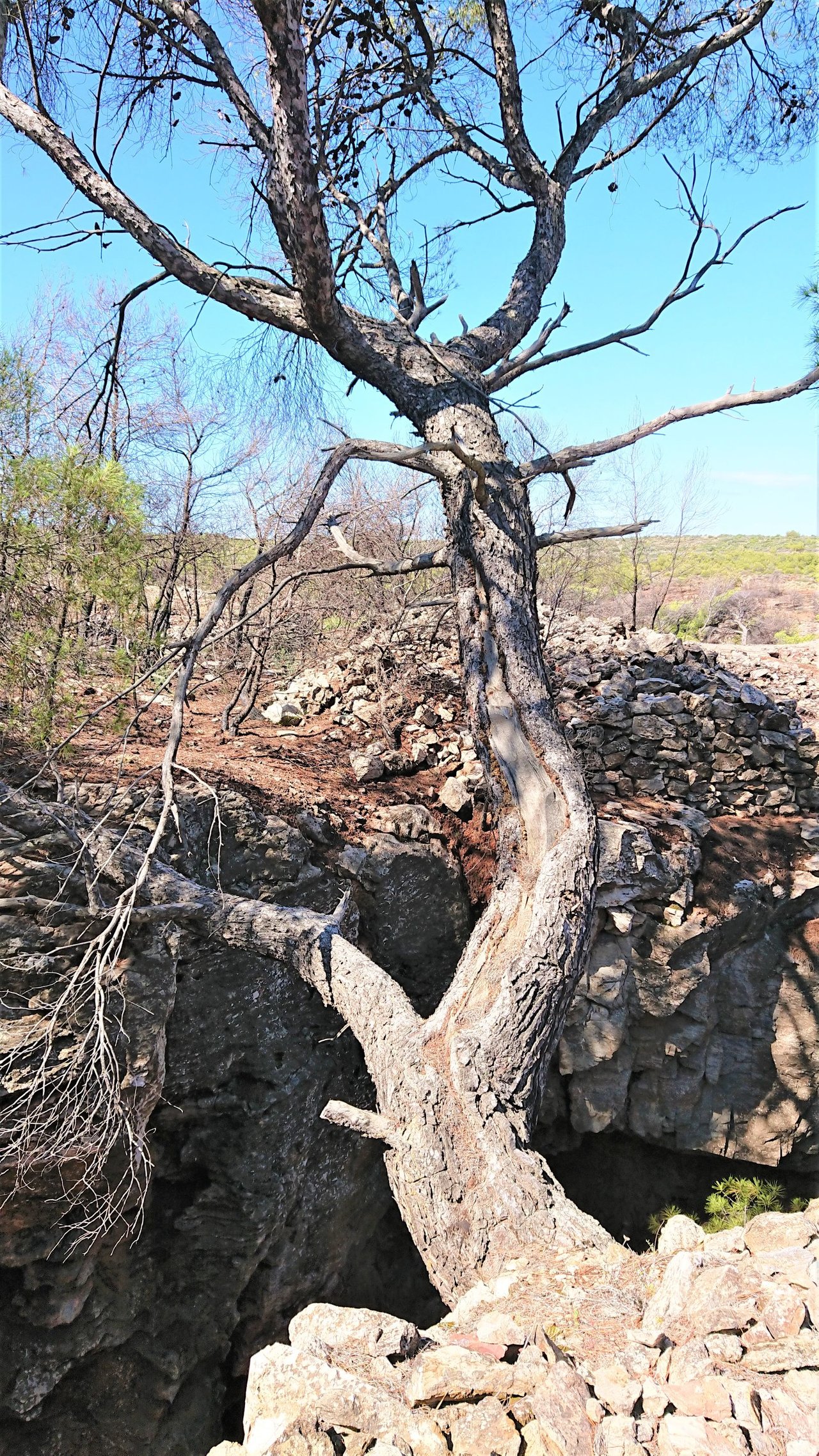
I take this weird way down to finally meet my target cycling and walking as silent as those loose stones allow me:
I'm happy to finally see what I was looking for: The first bits of that Ancient Mineral Workshop:
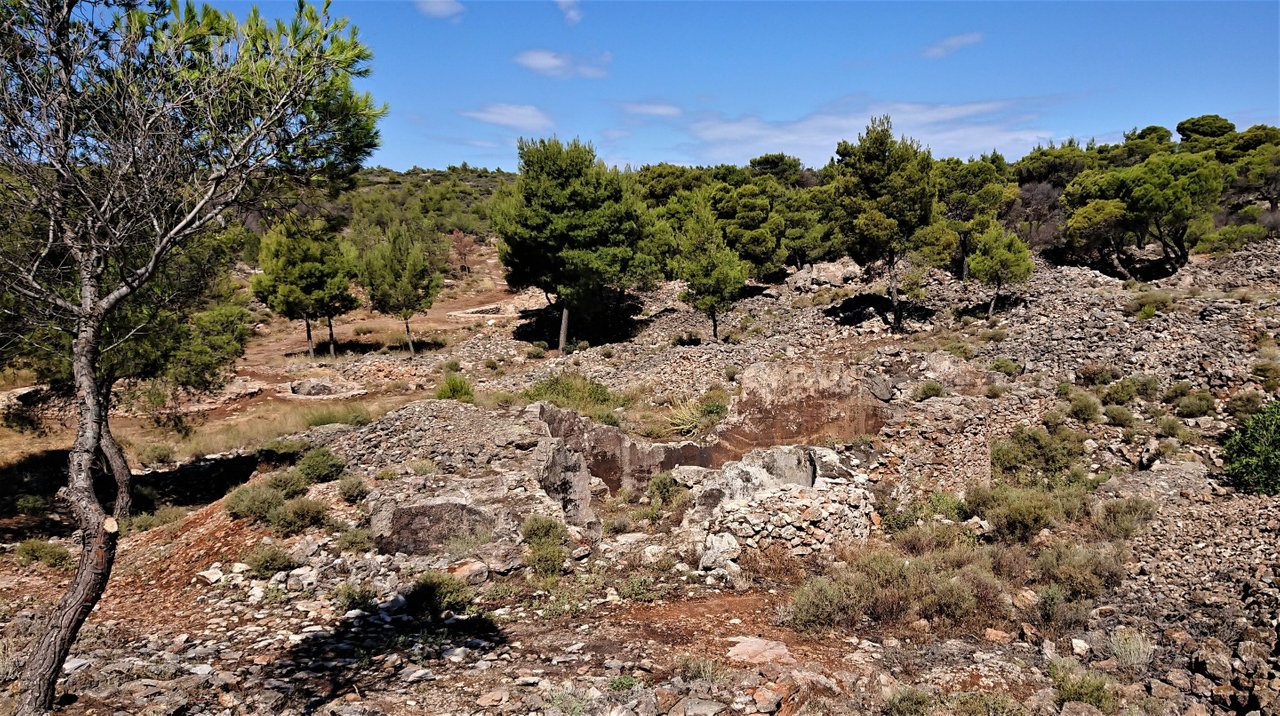
I'm also happy to be able to cycle around in this gravel path defined by stones while there's no one around (I heard signs of life from a nearby container so they might had a lunch break):
The next bits I meet are in better condition and help explaining what people back in the day used to do there:
What you see above is very similar to the ones that will follow. This area is full of such stone tanks built in pairs. One was used as a clean water tank and the other as a mineral laundry. Washing the minerals as they come out of the mine was the first main stage of the procedure as later they had to melt the washed stuff in order to get the silver it contained.
Here's a closer look to the above:
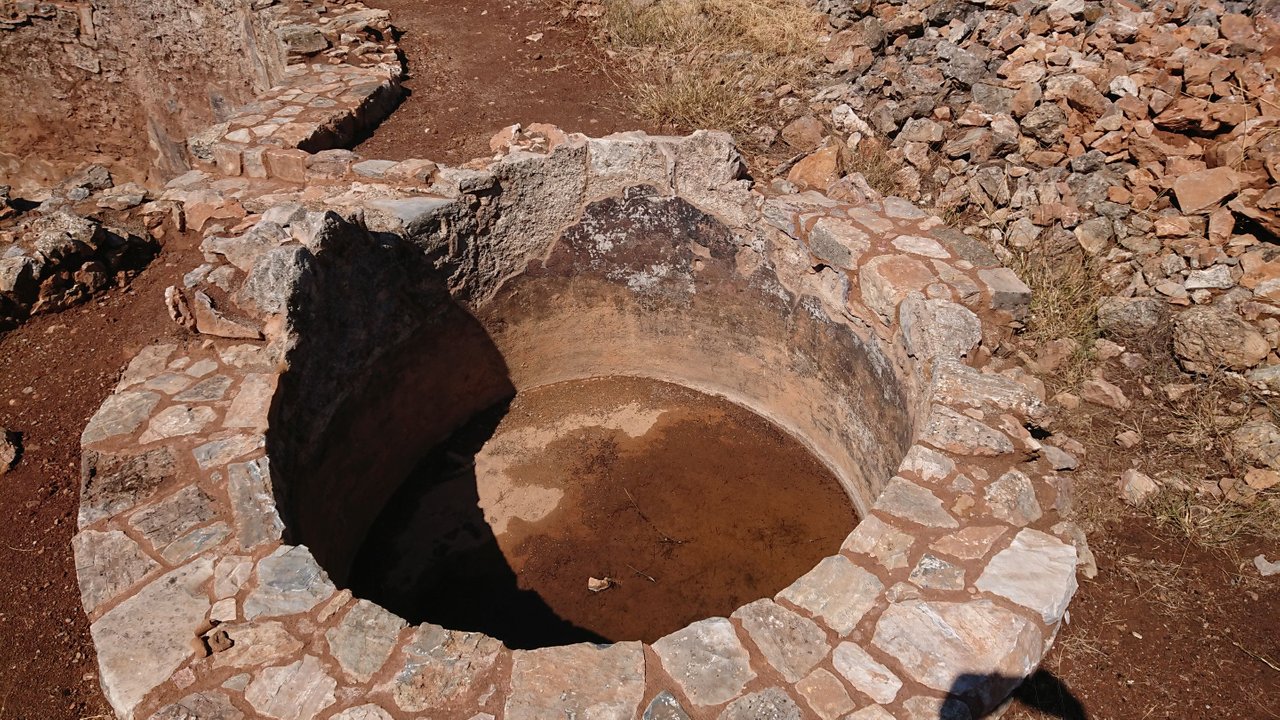
The place I'm in looks like a whole village of mineral laundries, the largest complex of that kind I have ever seen and makes me super excited already especially knowing that when the site will be ready to open its doors I will never be able to cycle around it solo like this again. Wow! I start picturing those laundries which are only a few steps away from each other:
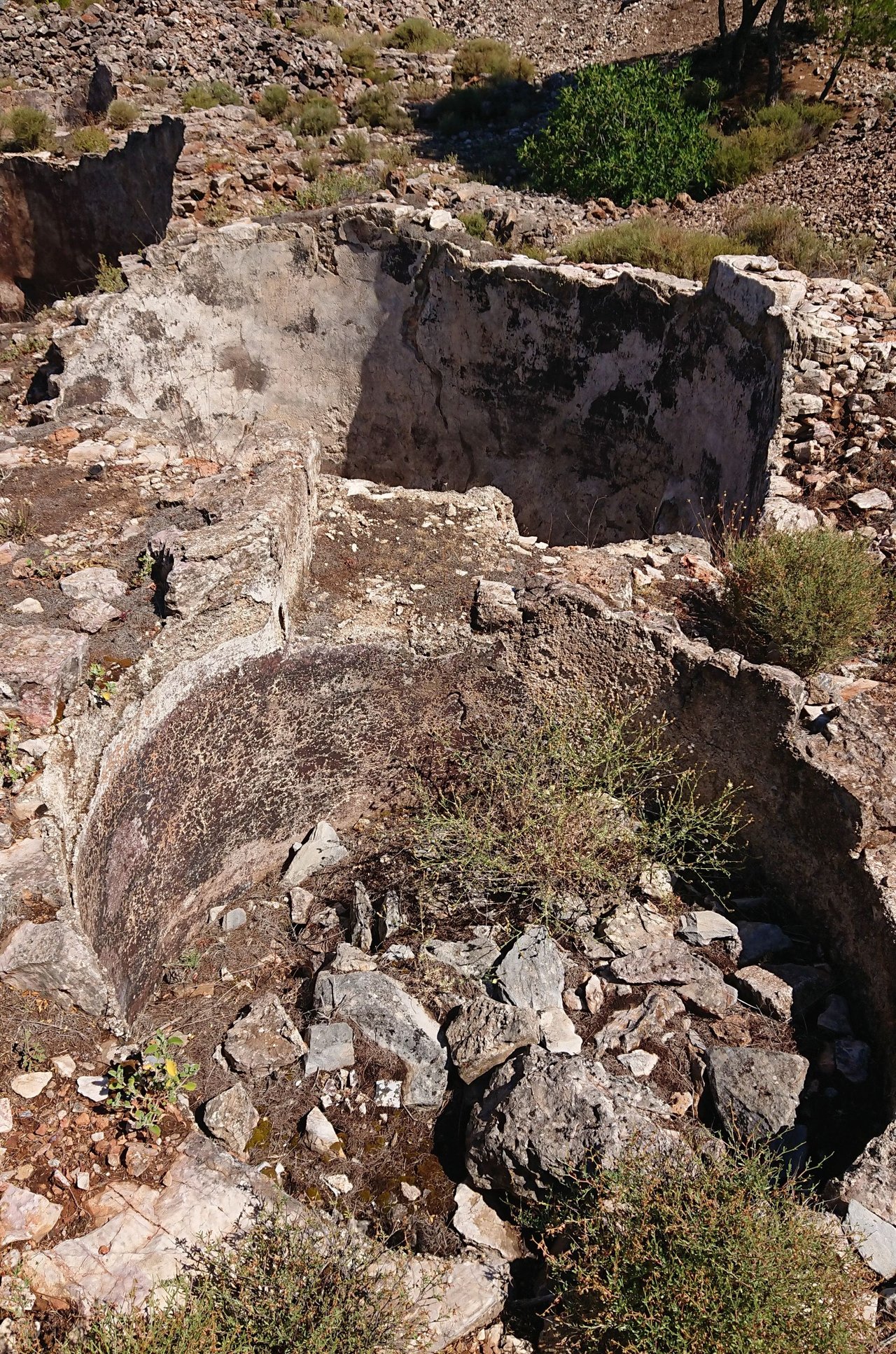
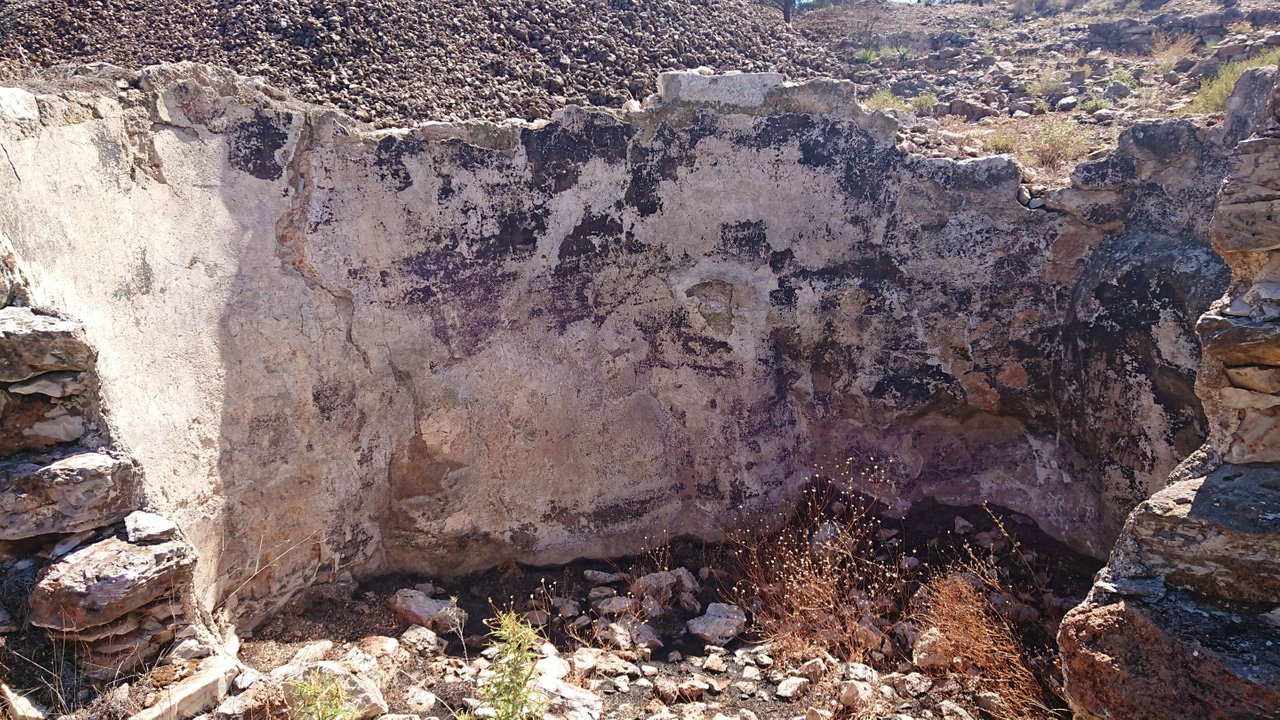
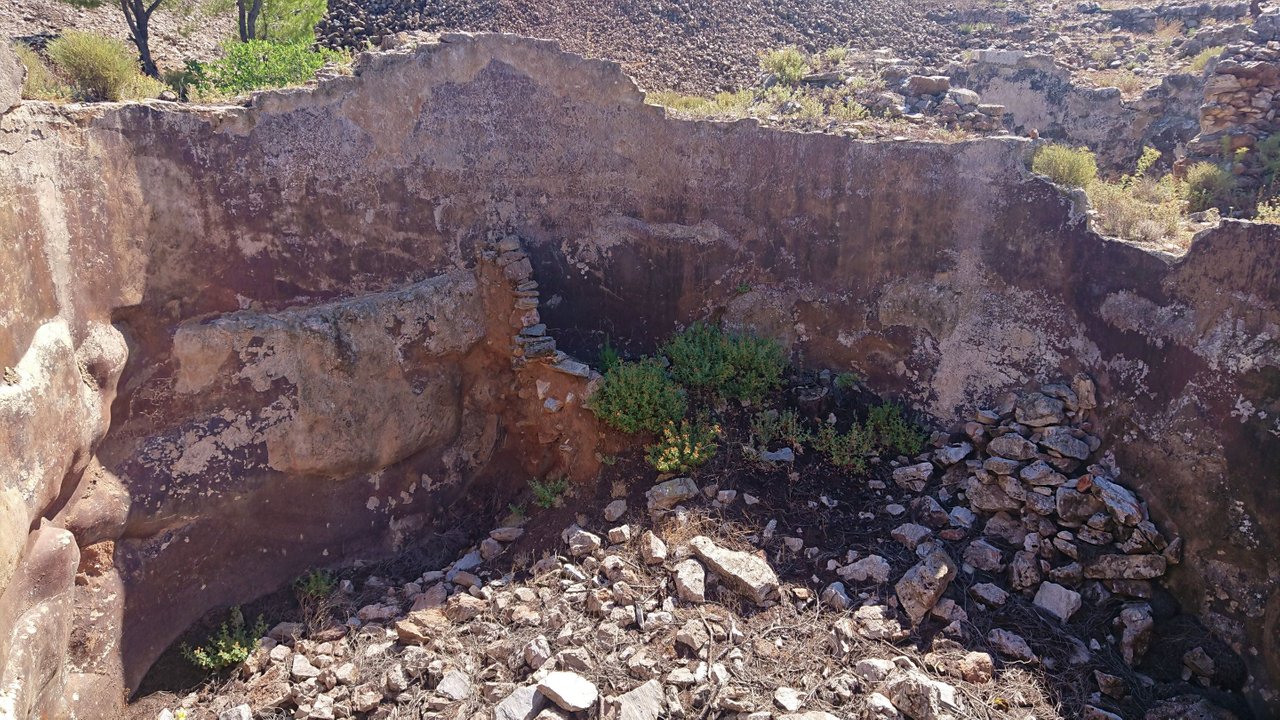
In the same "neighbourhood" I find one with a pole in the middle:
Greeks have invented a lot of things but I don't think pole dancing is one of them so I can only guess that they might need it to place minerals on top to let the dirt drain:
This one is actually among the longest and most well preserved ones so I took one more picture though doesn't really capture the whole thing as it deserves:
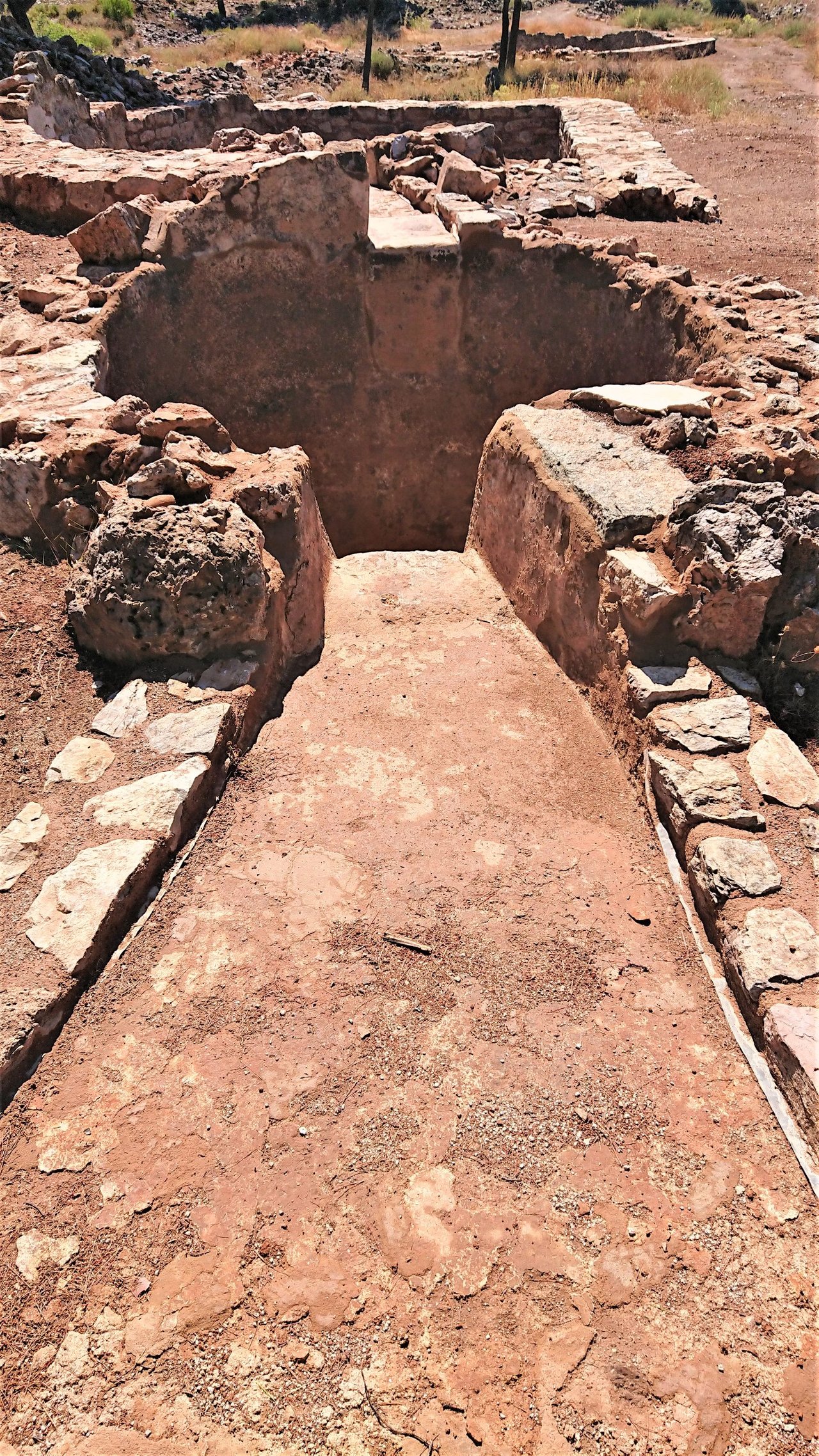
In this next picture you see another one, luckily in the absence of workers who left their chairs empty while I am around:
I cycle uphill North to see what else is there and I reach the end of the site where I find this cute circular stone construction where pine trees gladly enjoy the sun and the view in (almost) total absence of human activity:
I cycle back South East to meet another pair of those laundry tanks, this time escorted by this rectangular stone wall:
I can't stop thinking how nice it is today to not be a slave working here but a visitor who sneaked in to enjoy the site in total absence of crowds:
As I continue down to the heart of the site those constructions become more dense and also look a bit more sophisticated to me though they are far from the beauty of their youth:
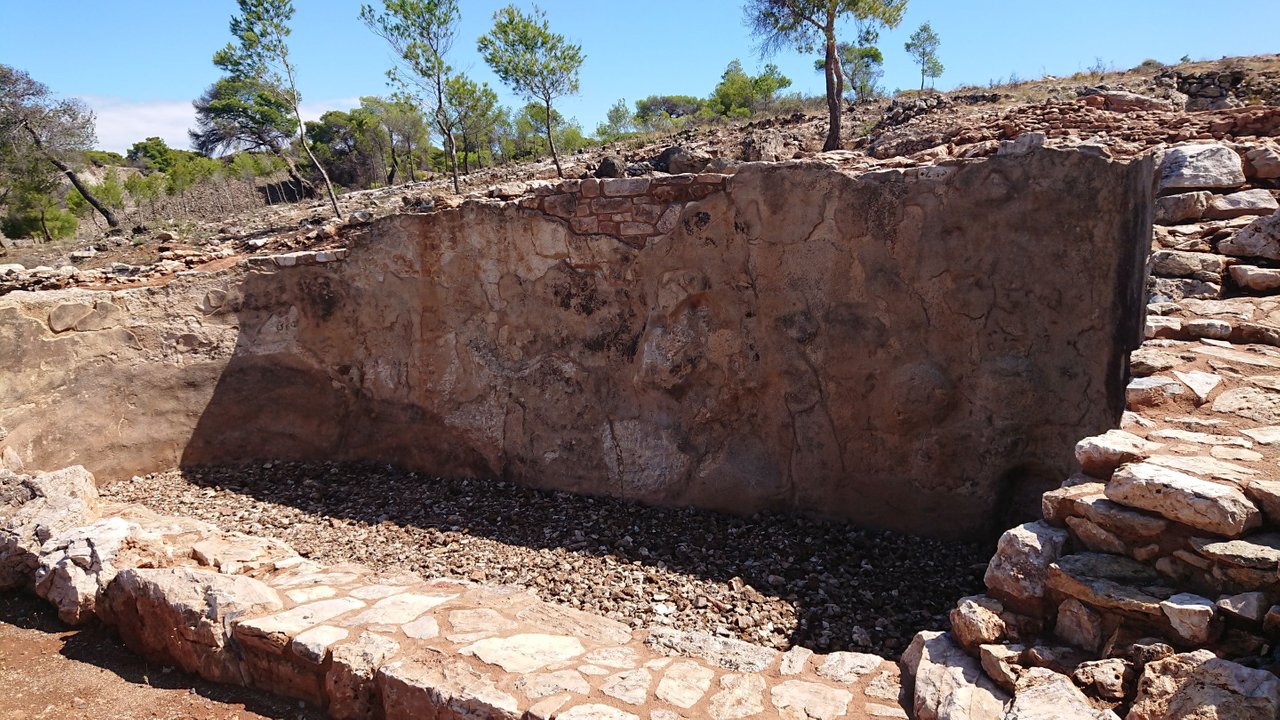
Always in no scarcity of nice views:
Here is a bit of overview of the mid South part of this site:
I continue my way cycling on this lovely gravel route,
which later looks like part of a mountain bike rally with those tight bends:
Now that really intrigues me to enjoy this ancient beauty in a more racing pace than the silent mode I'm on but I am far from attracted to make my presence noticeable at the moment. I am not feeling so sorry though cause at the right end of the picture you just saw above I find the largest laundry in elliptical shape, 17 meters long:
Right by its side I find this next much smaller tank but its not paired to the previous big one:
I am in the heart of this "mineral laundry village" and you can see the obvious signs of the unfinished restoration project:
You can also see that on my right hand is a fence which unfortunately prevents me from accessing a good part of the site which is even better than the one I am experiencing already. To access this section you first have to contact the ministry of culture and fix an appointment. If I do it one day you'll be able to see that too. Until then let's see what else is accessible here:
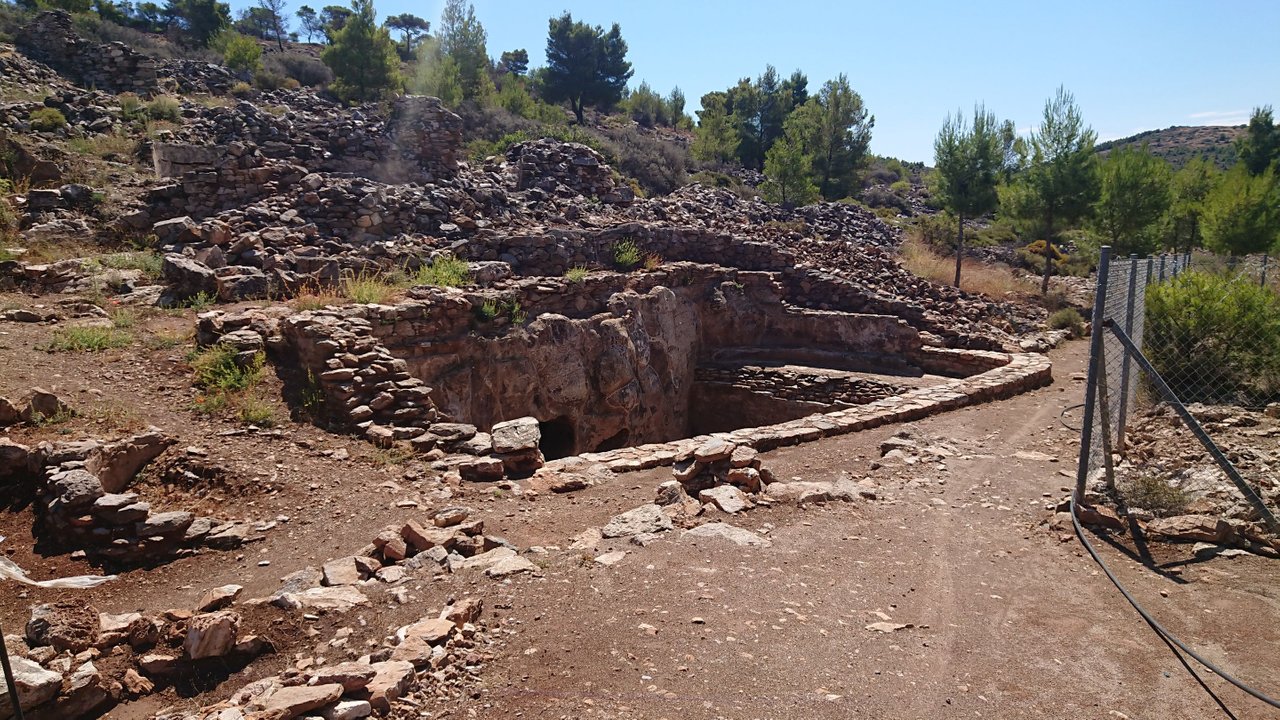
Did you see a hole in the one above? This one:
It looks to me like...
...it's about to speak 🙂
Not a bad harvest today, after the eyes of a rock it was time for the mouth of another one. Here's a couple more to get a better idea of that spot:
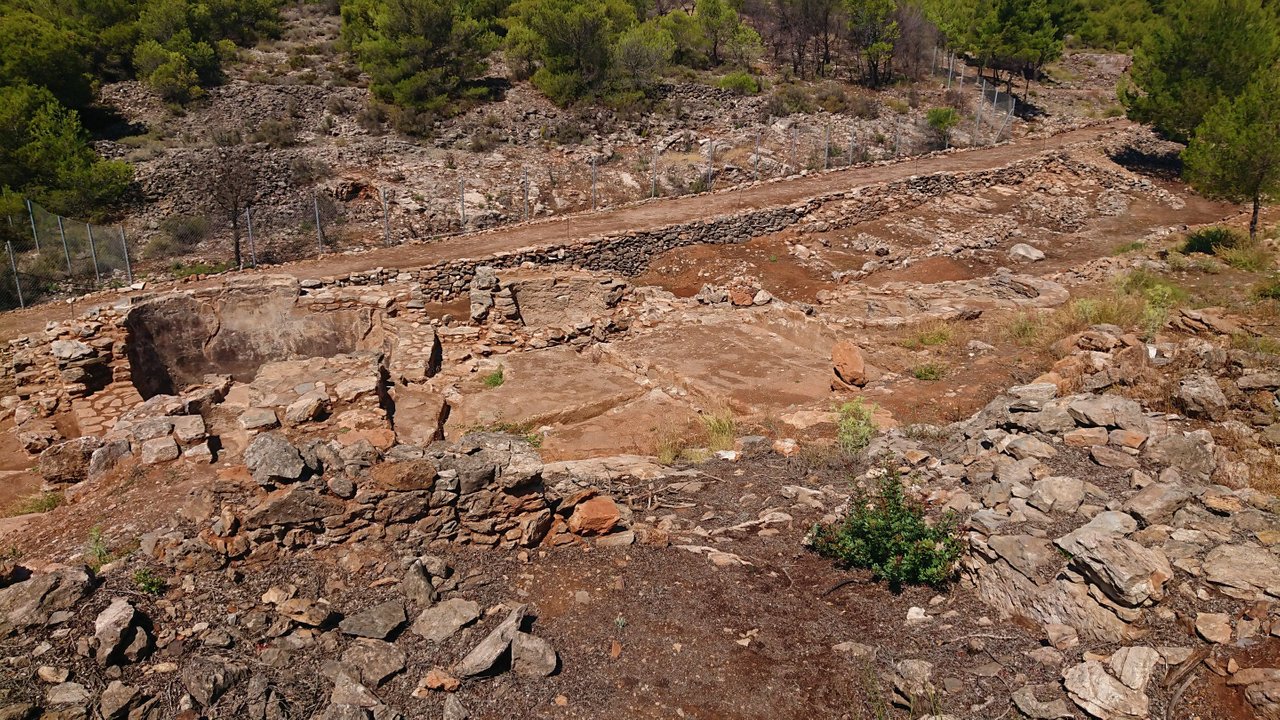
Unfortunately, as I explained before, I can't access this area:
Time to make my way back since this is the South end of what I can see for the moment.
It's a (not so) long way to the top if you wanna see them all:
Lonely trees mourning their burned friends while the blue sky contrasts them:
One more for the "Swiss cheese rock" folder:
If this tree isn't a survivor we'd better not use this word for anything else:
I cycle back to my car but not before I picture the view once more:
Thank you tree and your mates for keeping my car not too hot:
Before taking the road back home I want to give you one more overview of this beauty I am lucky to experience here so I climb with my car to the top of a hill (OK, I also wanted to check that my 4x4 works after my DIY repairs) - see the results:
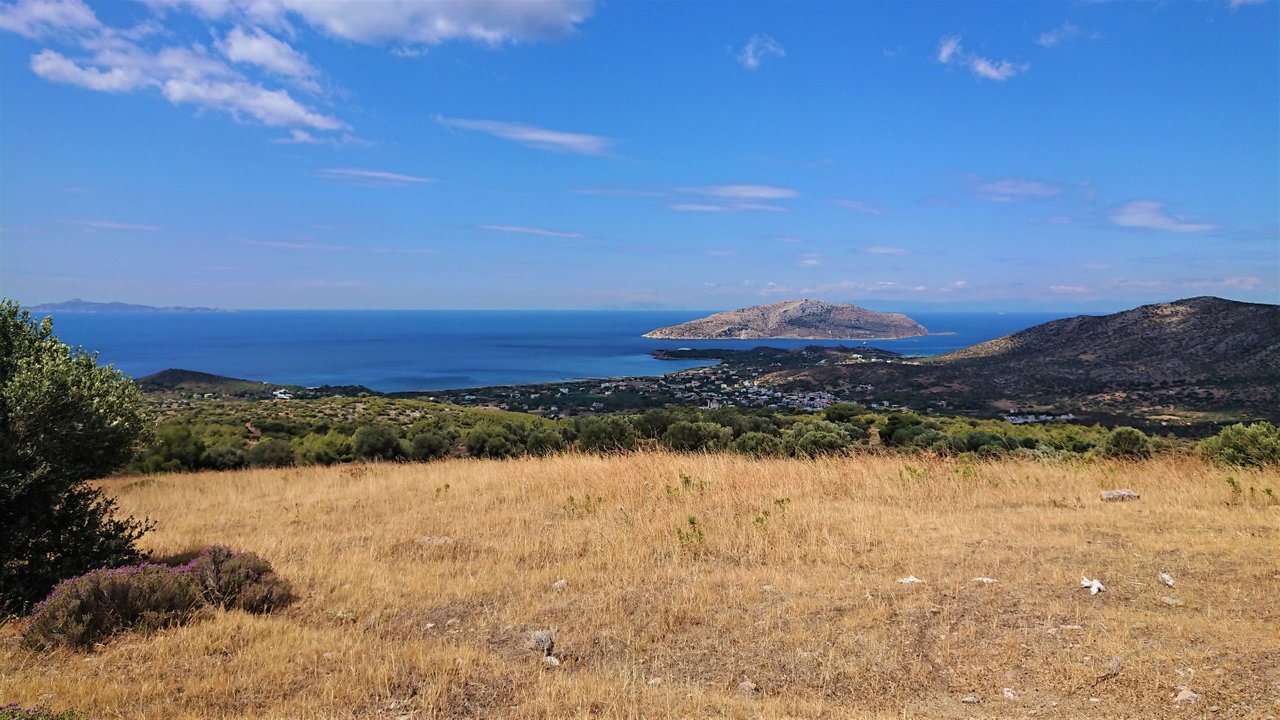
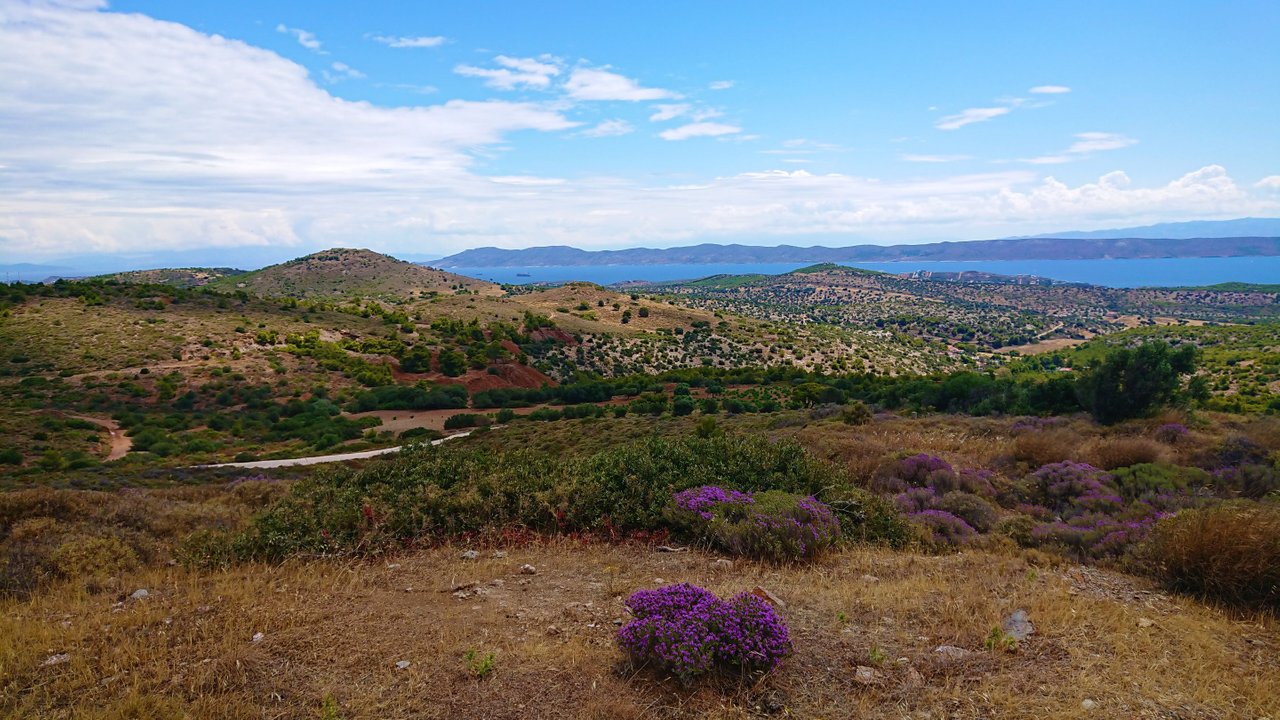
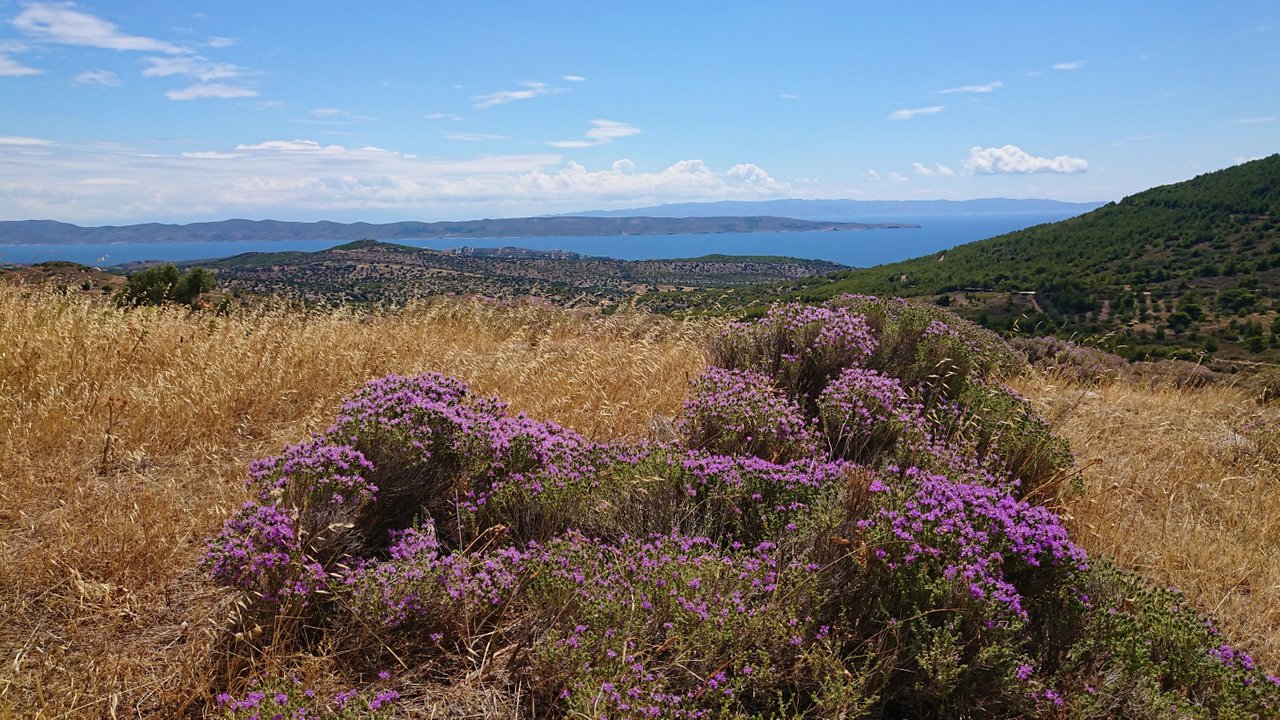
I hope you enjoyed reading this,
see you on the next one!
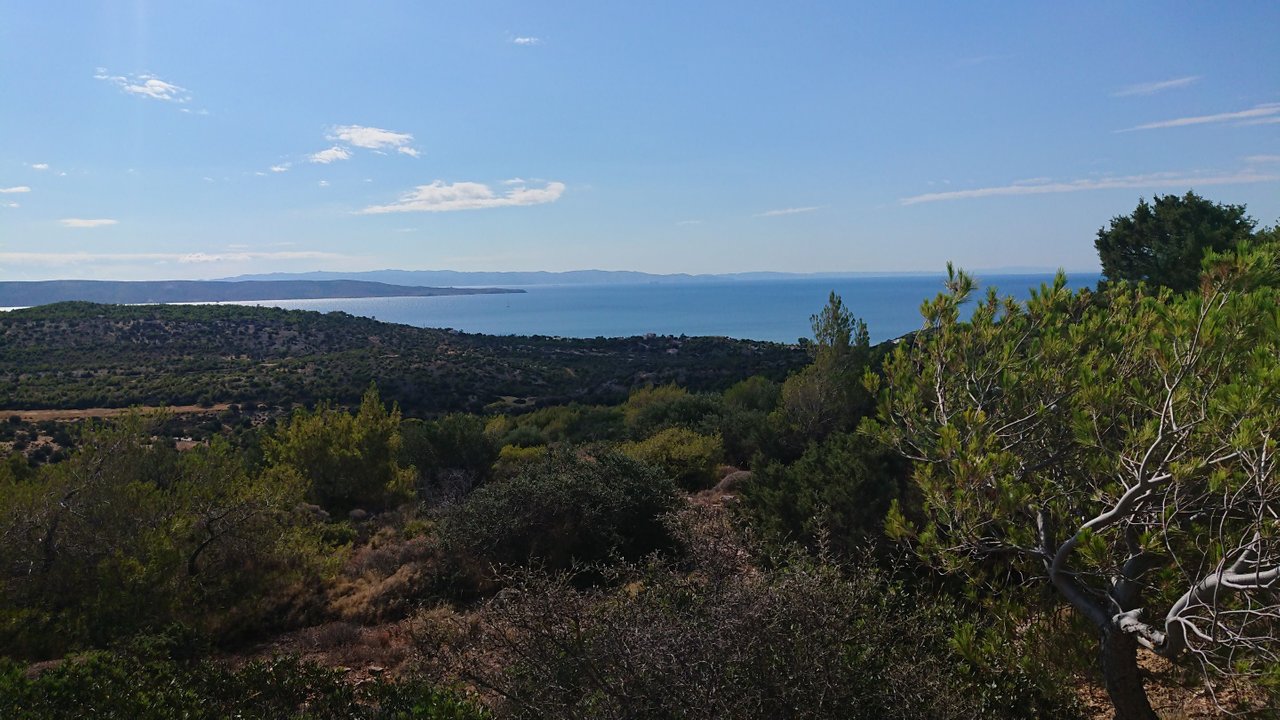


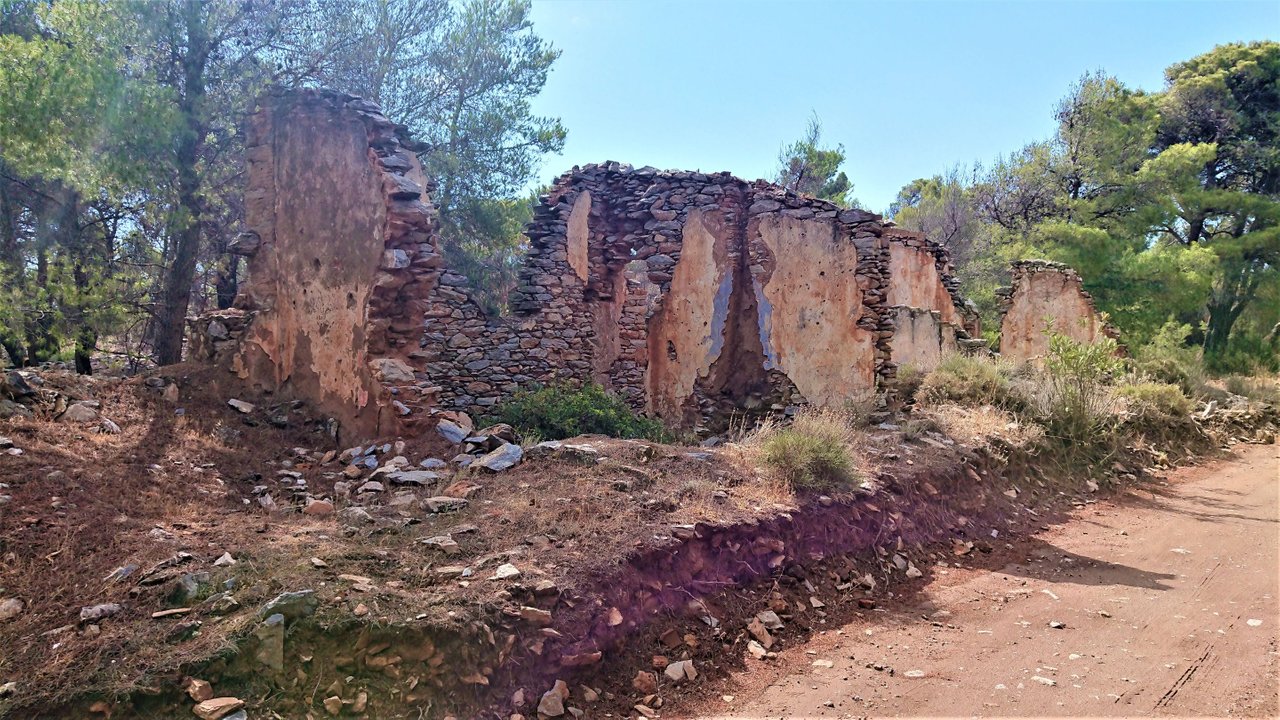
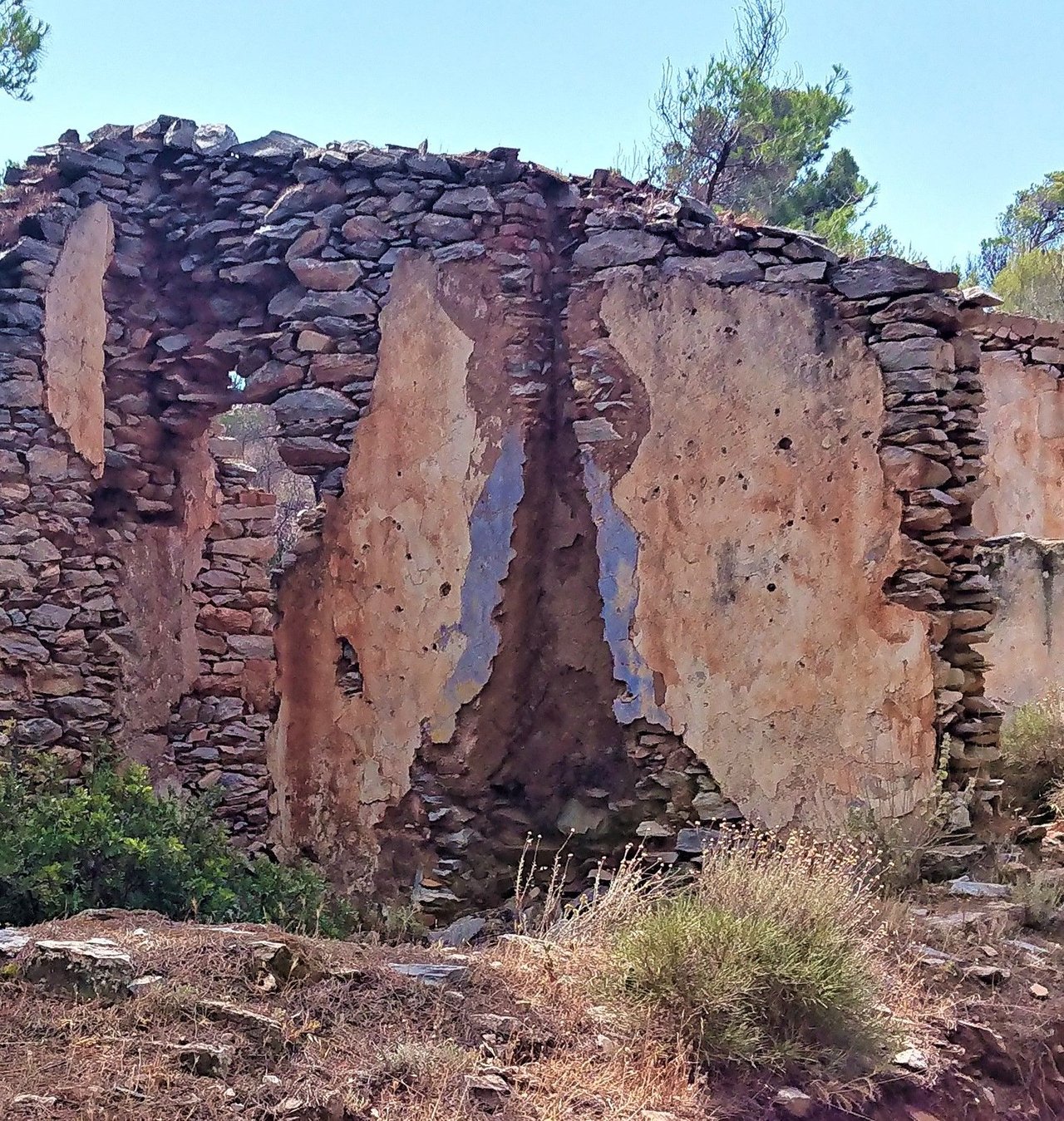
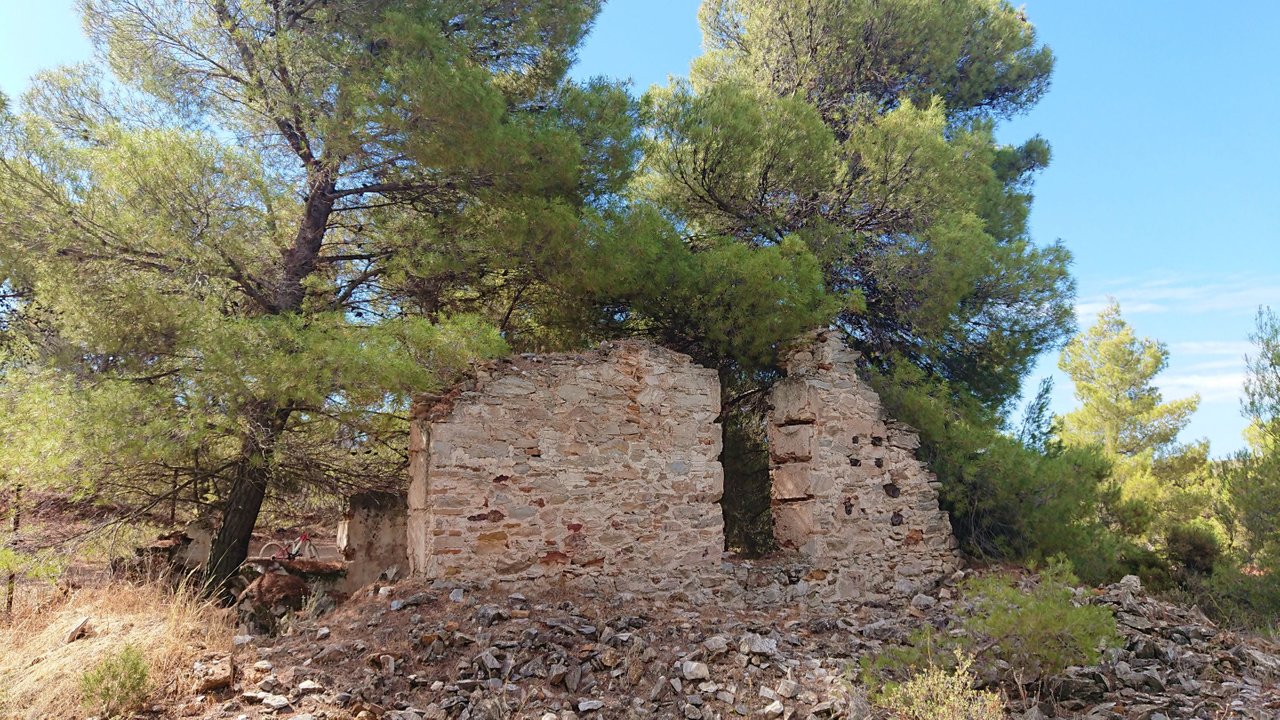
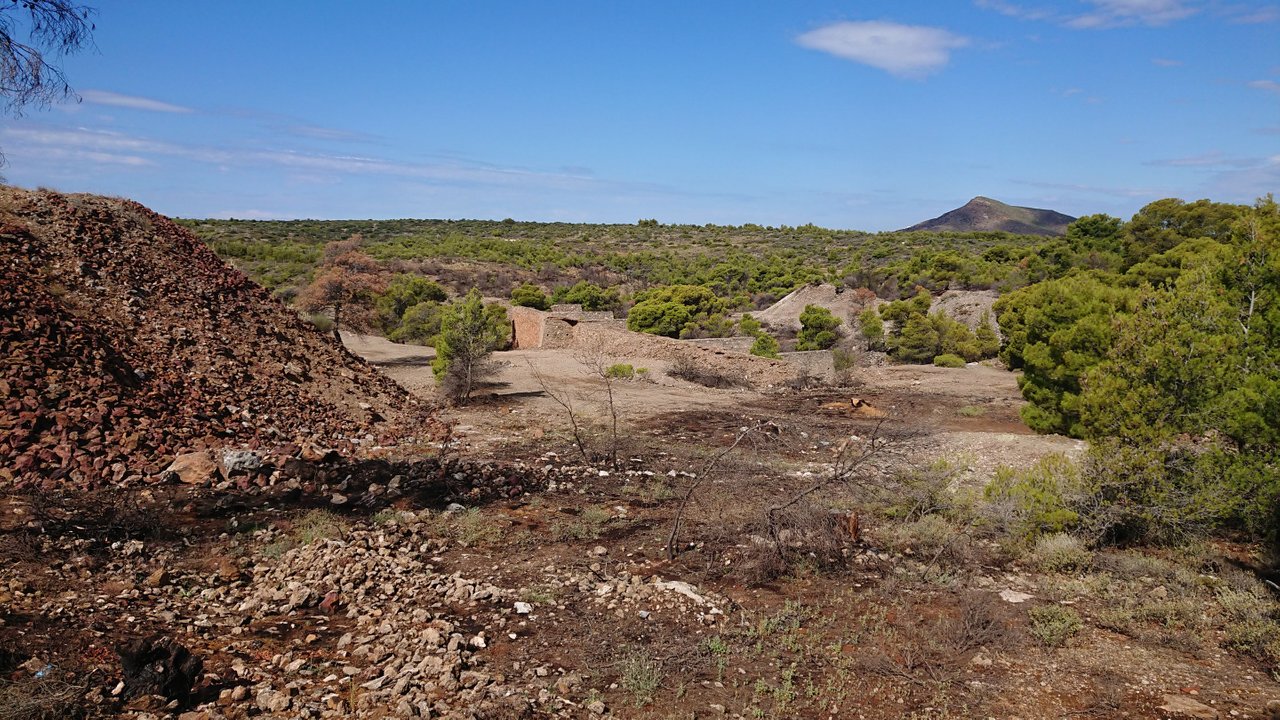
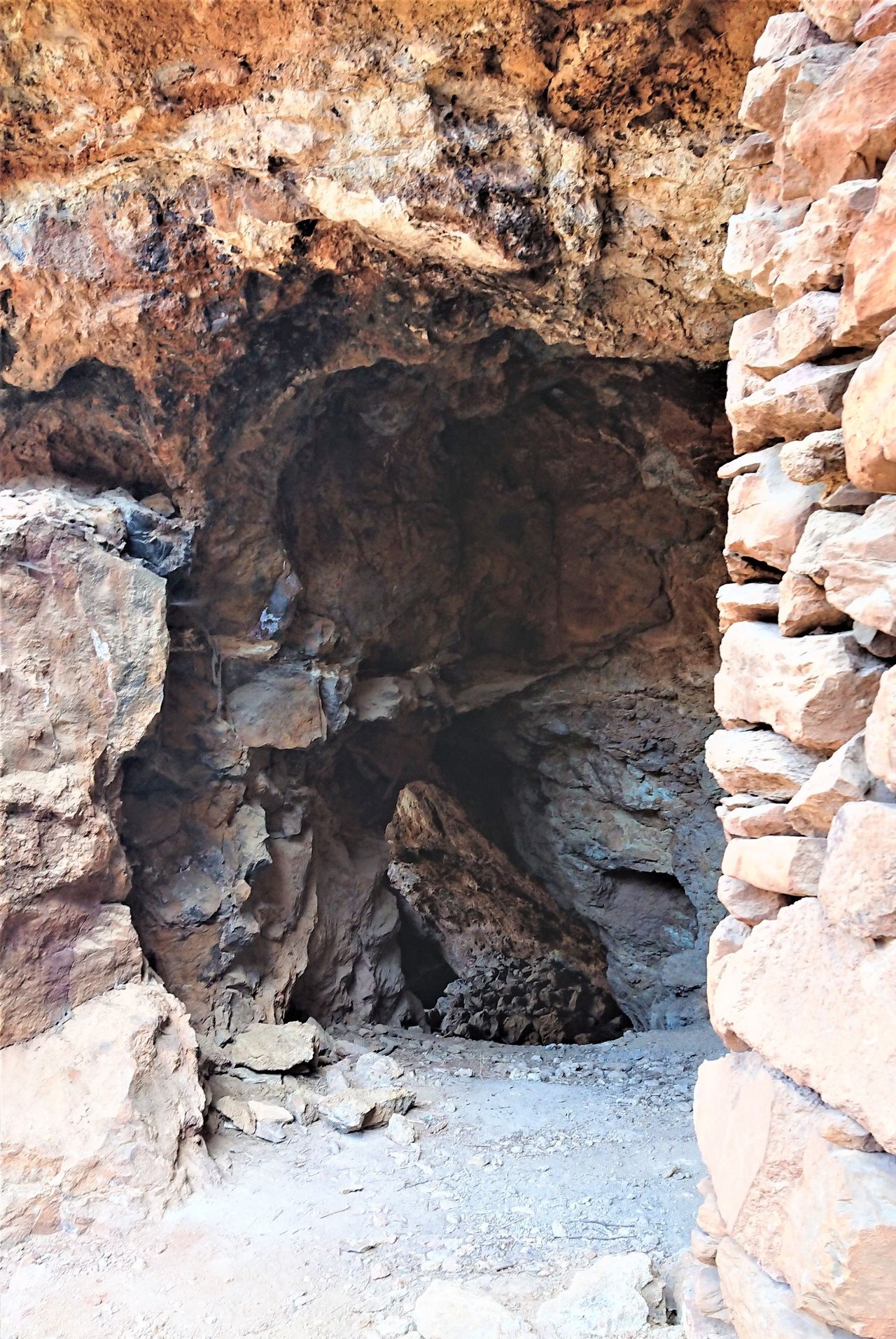
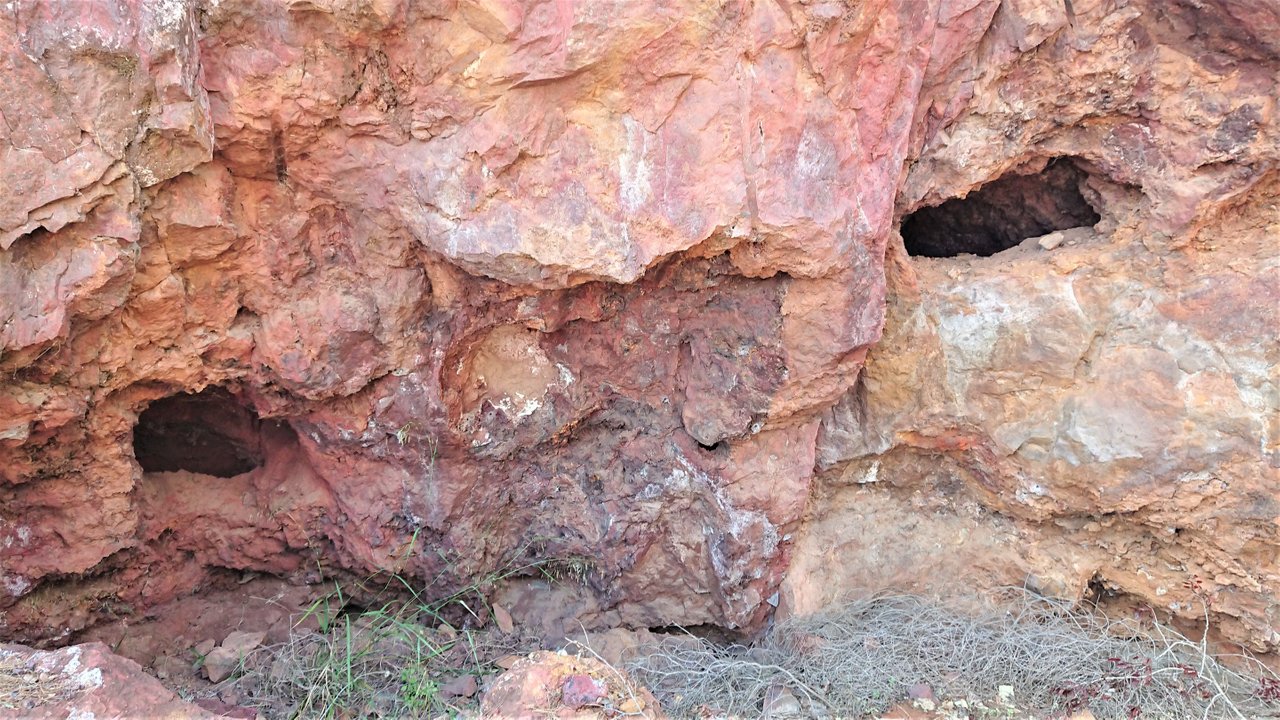
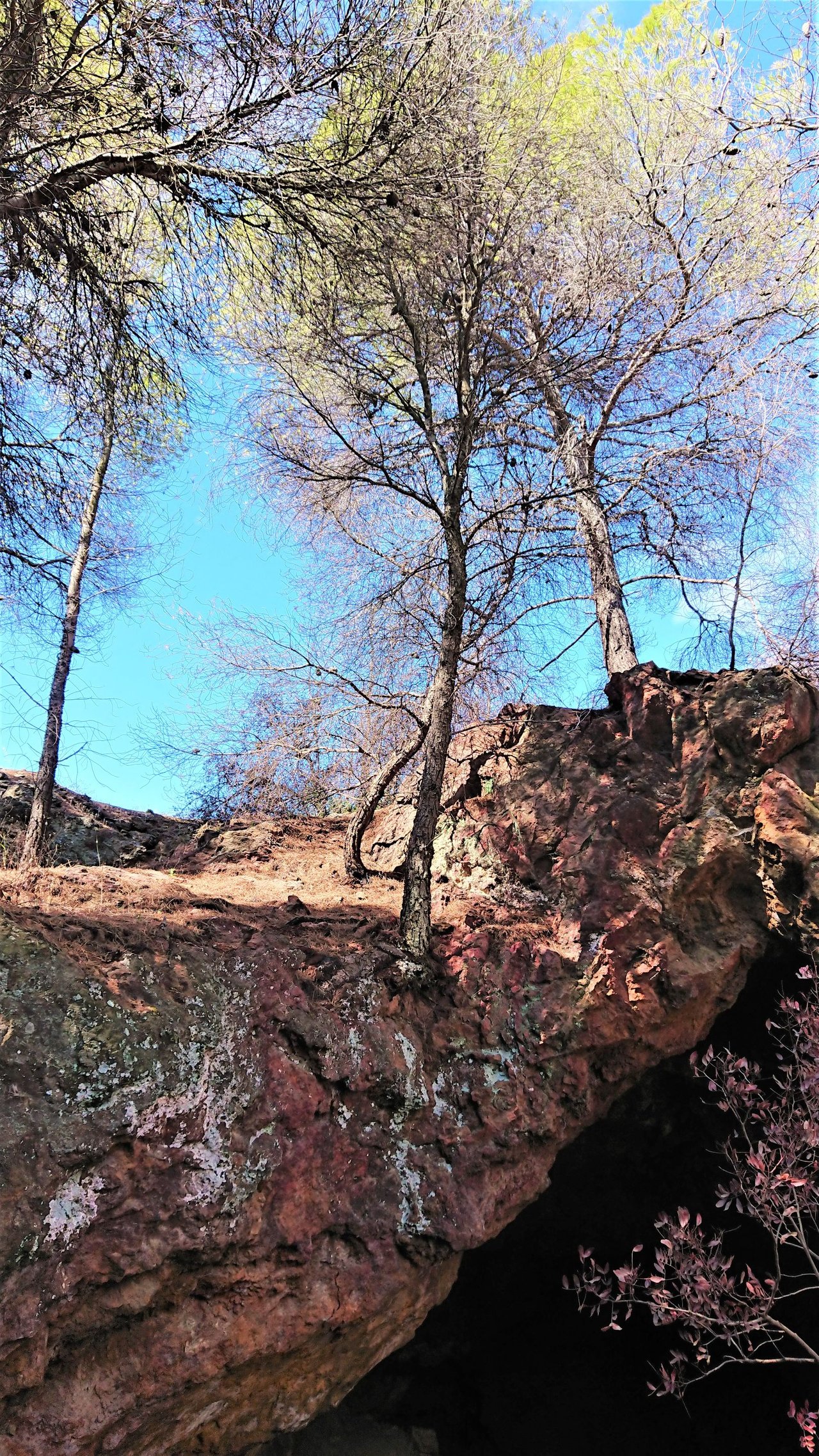
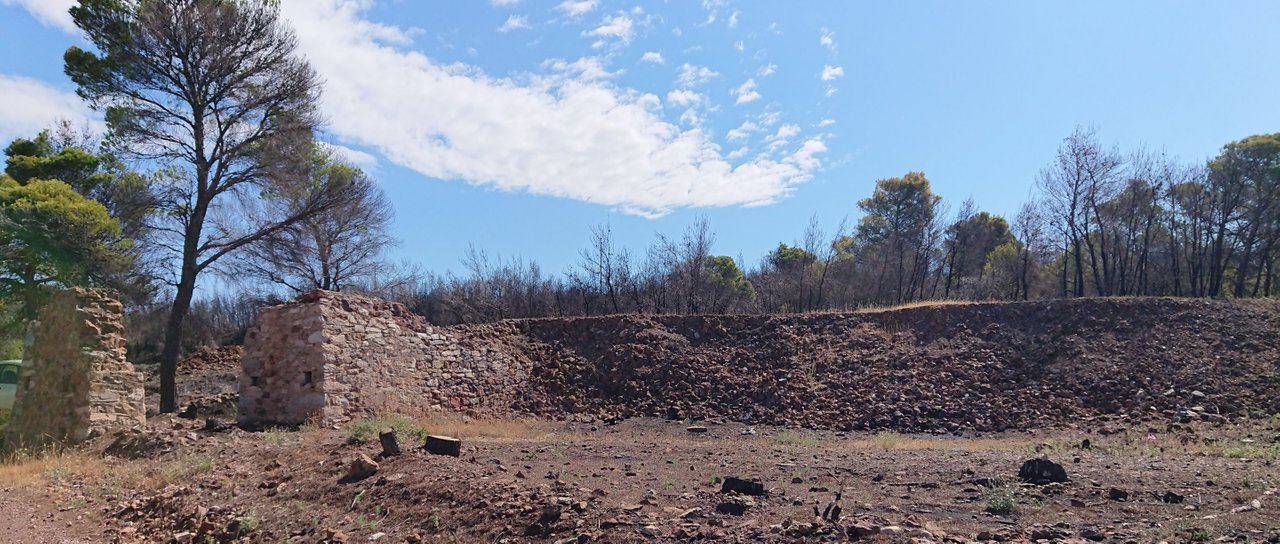
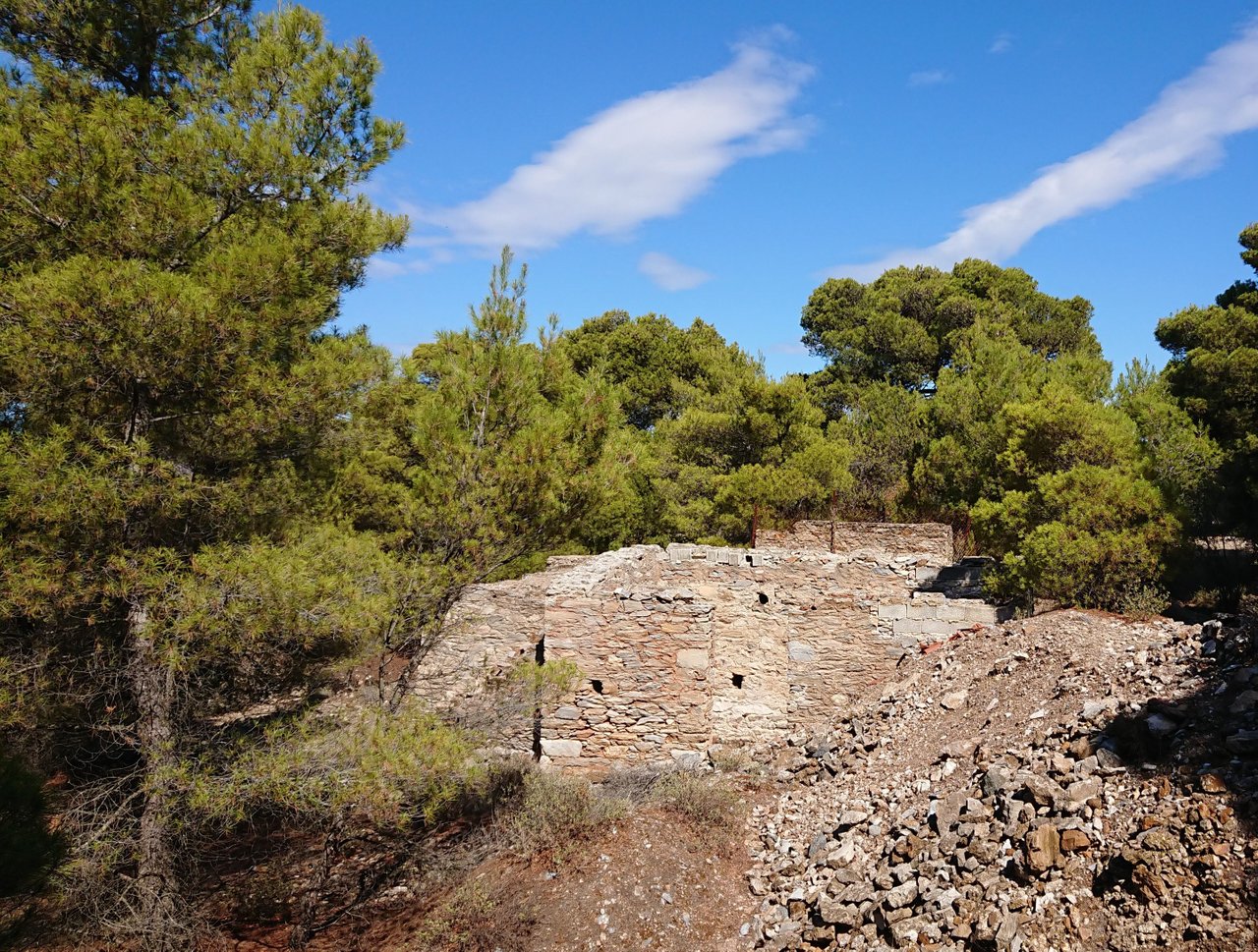
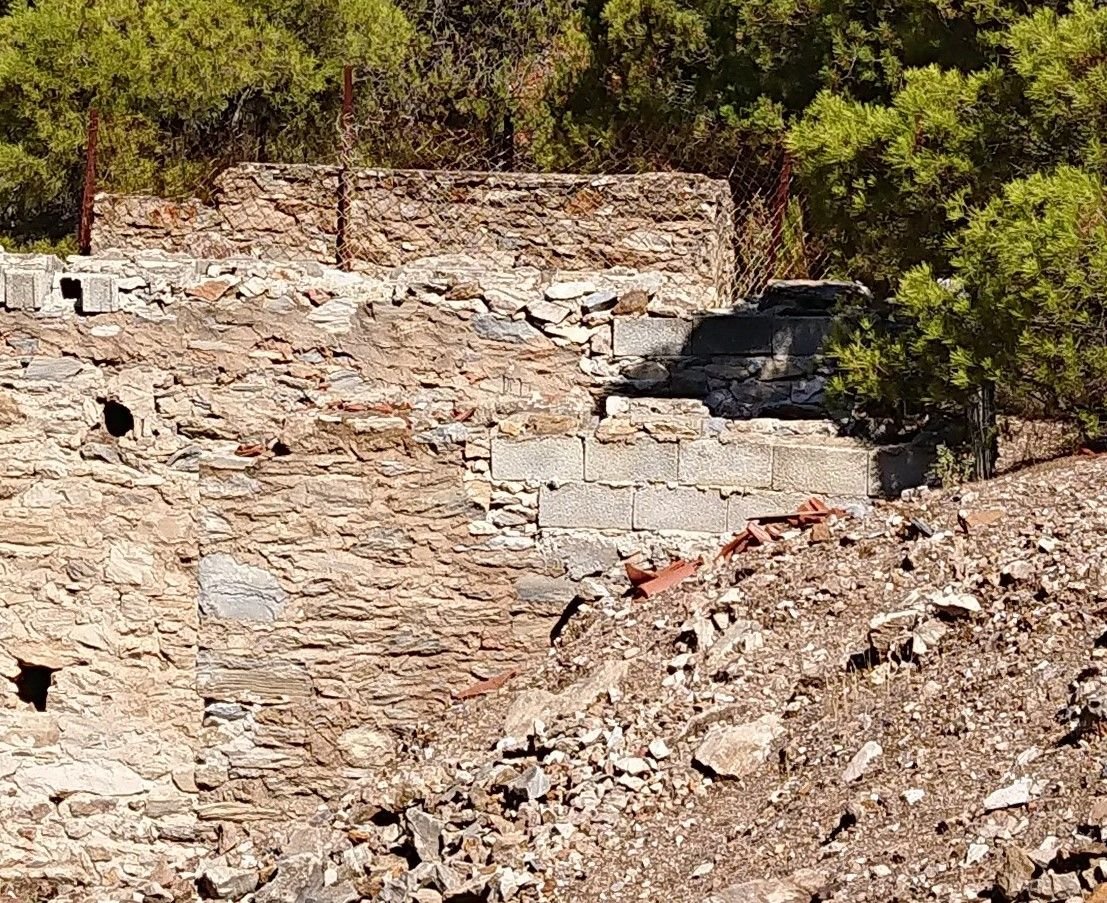
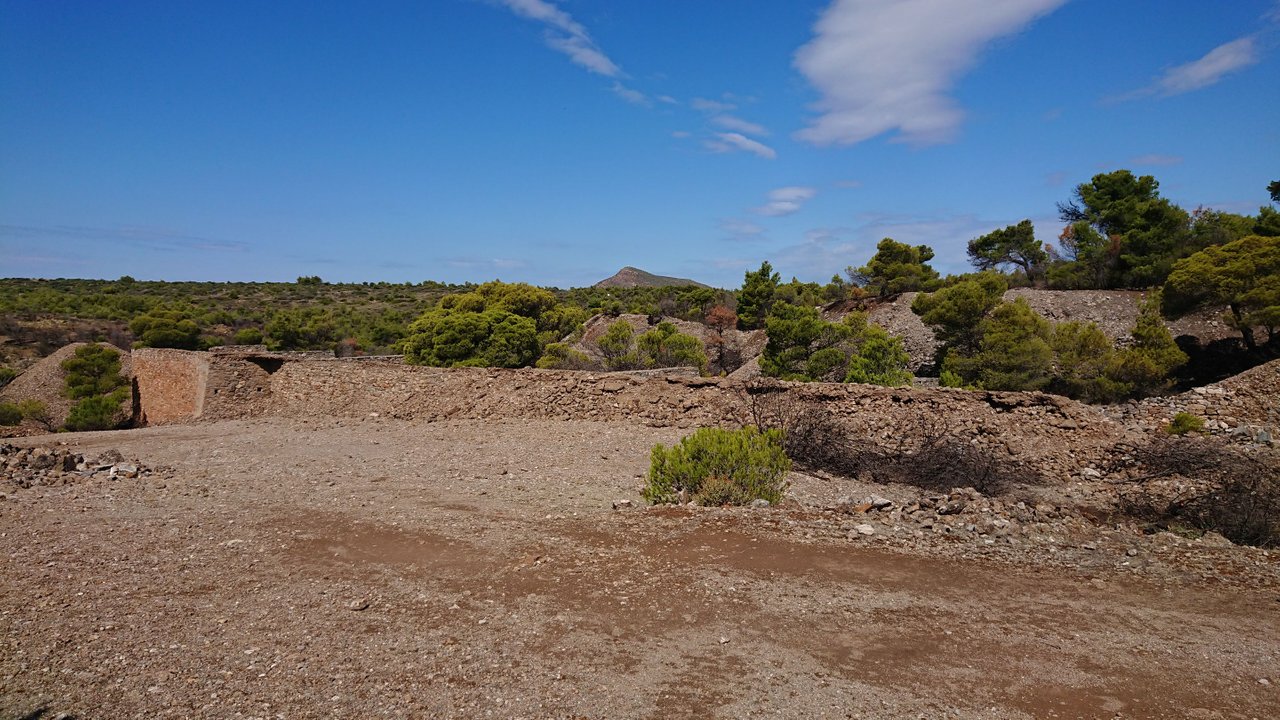
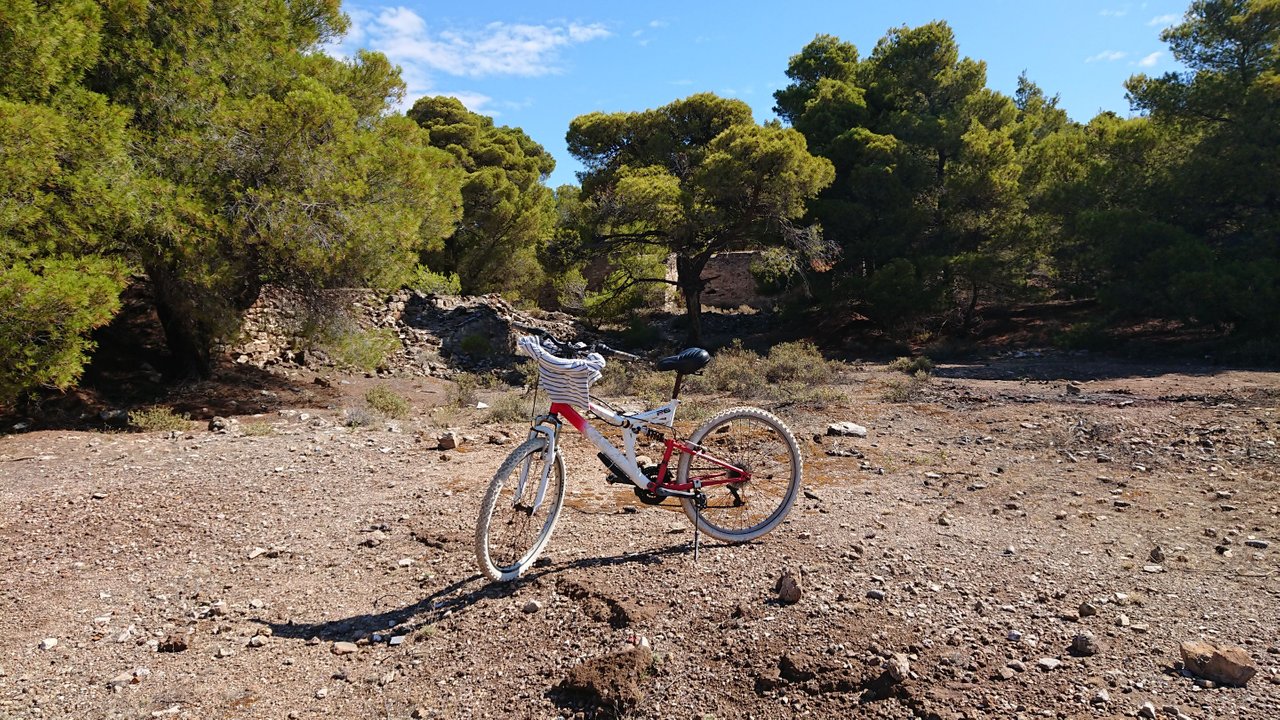
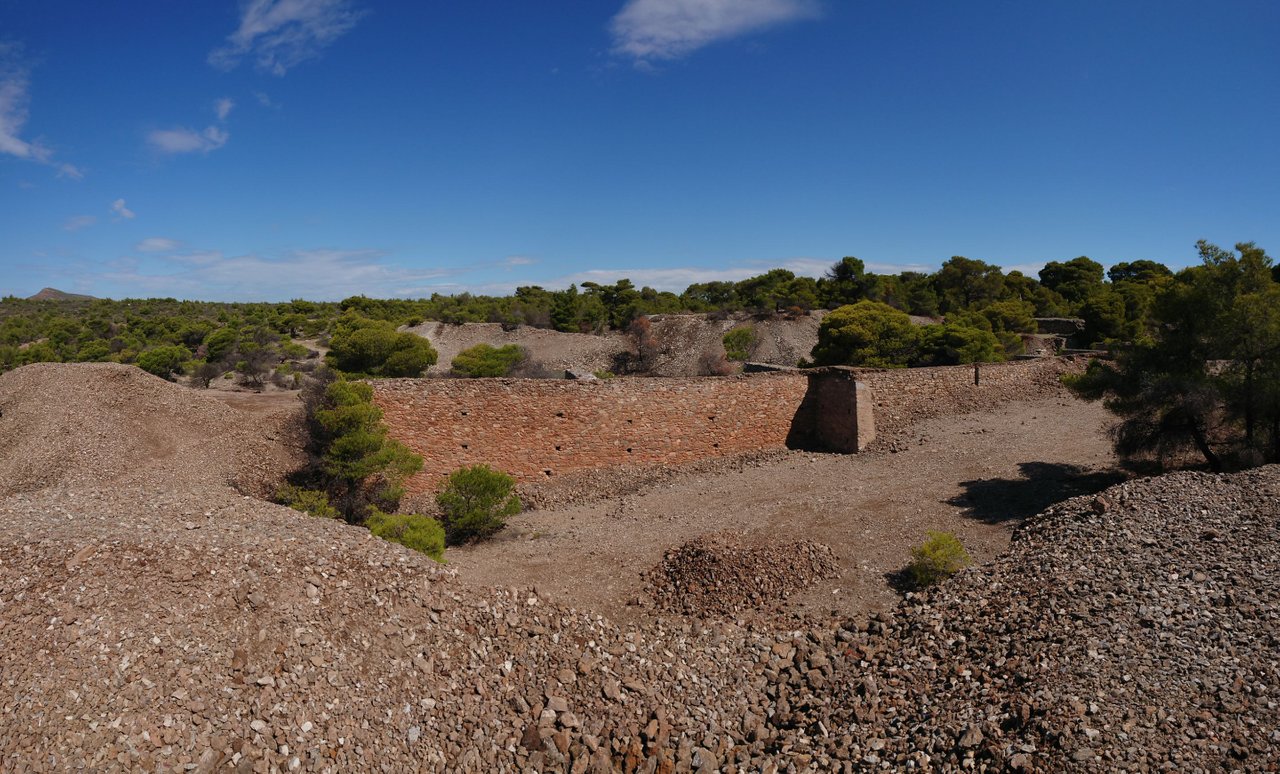
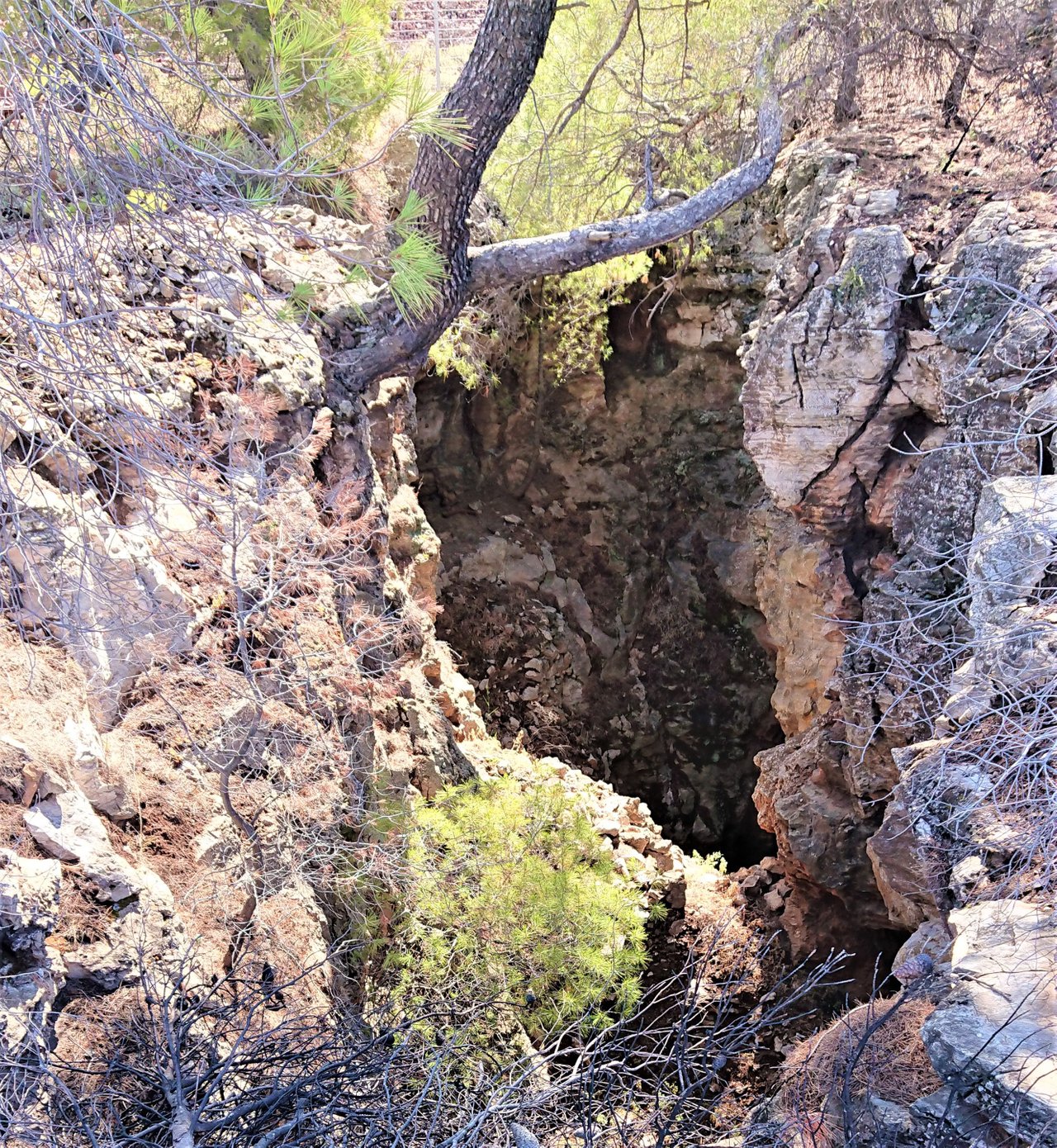
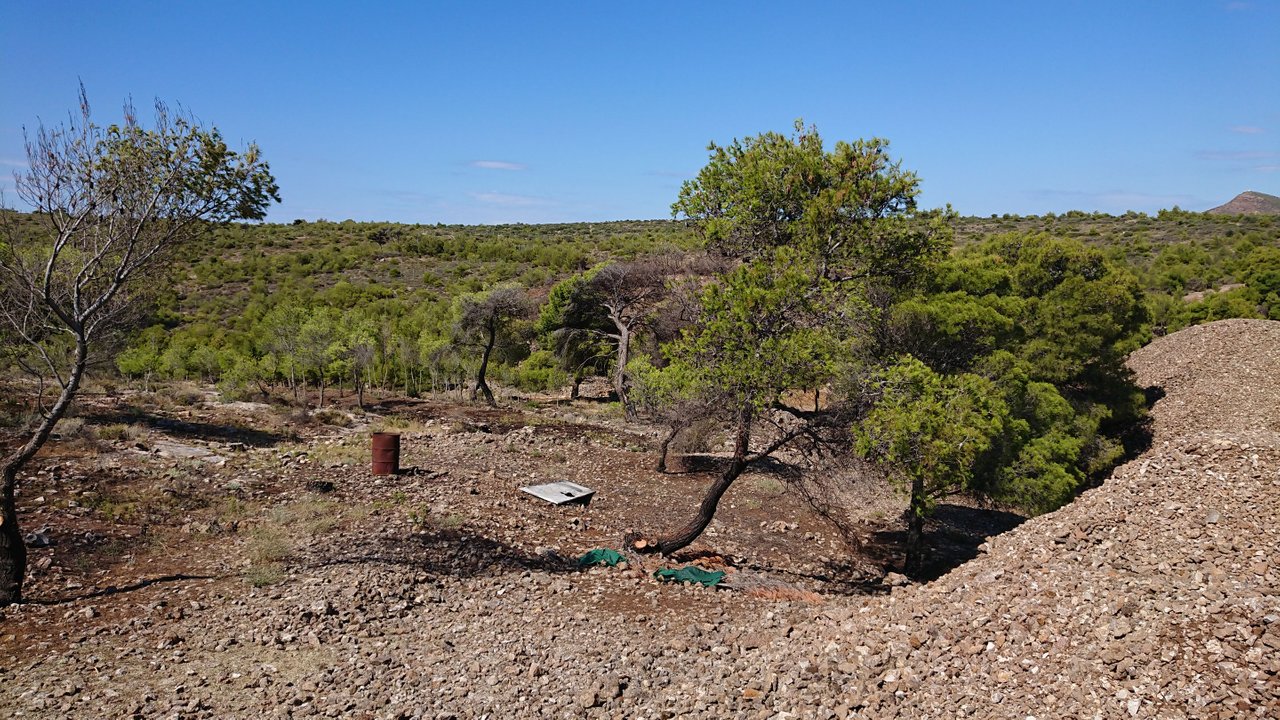
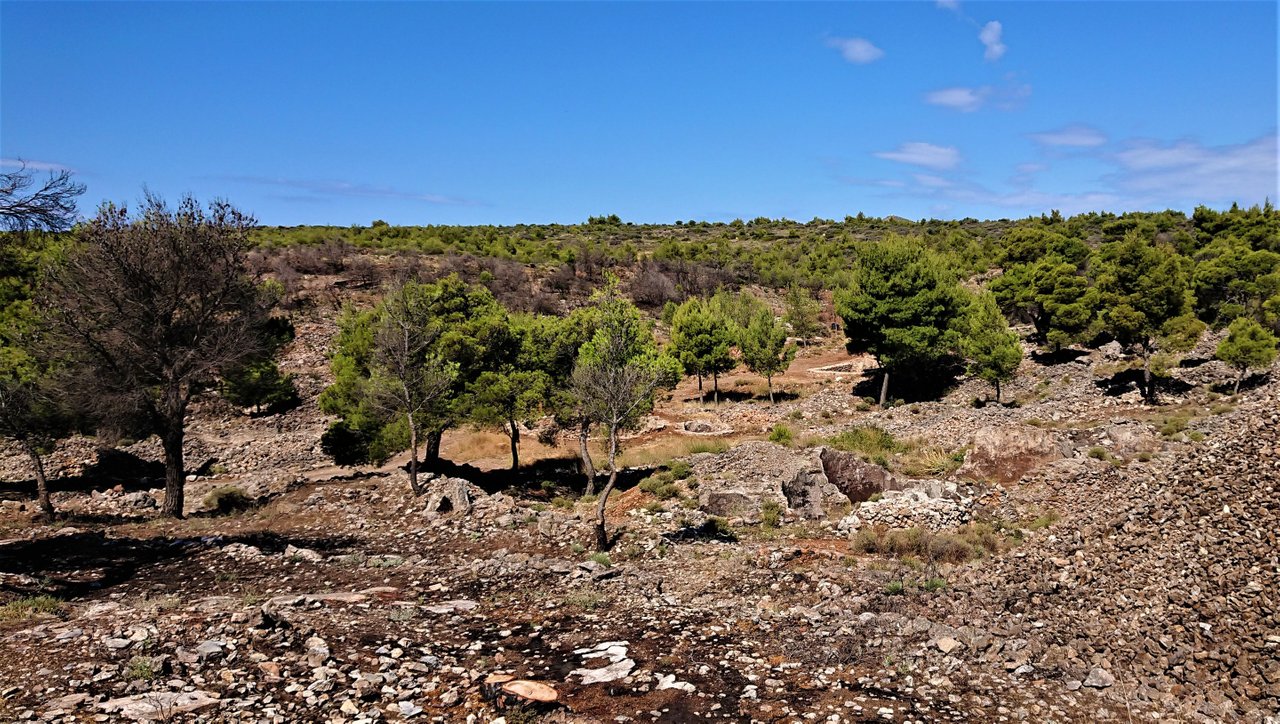
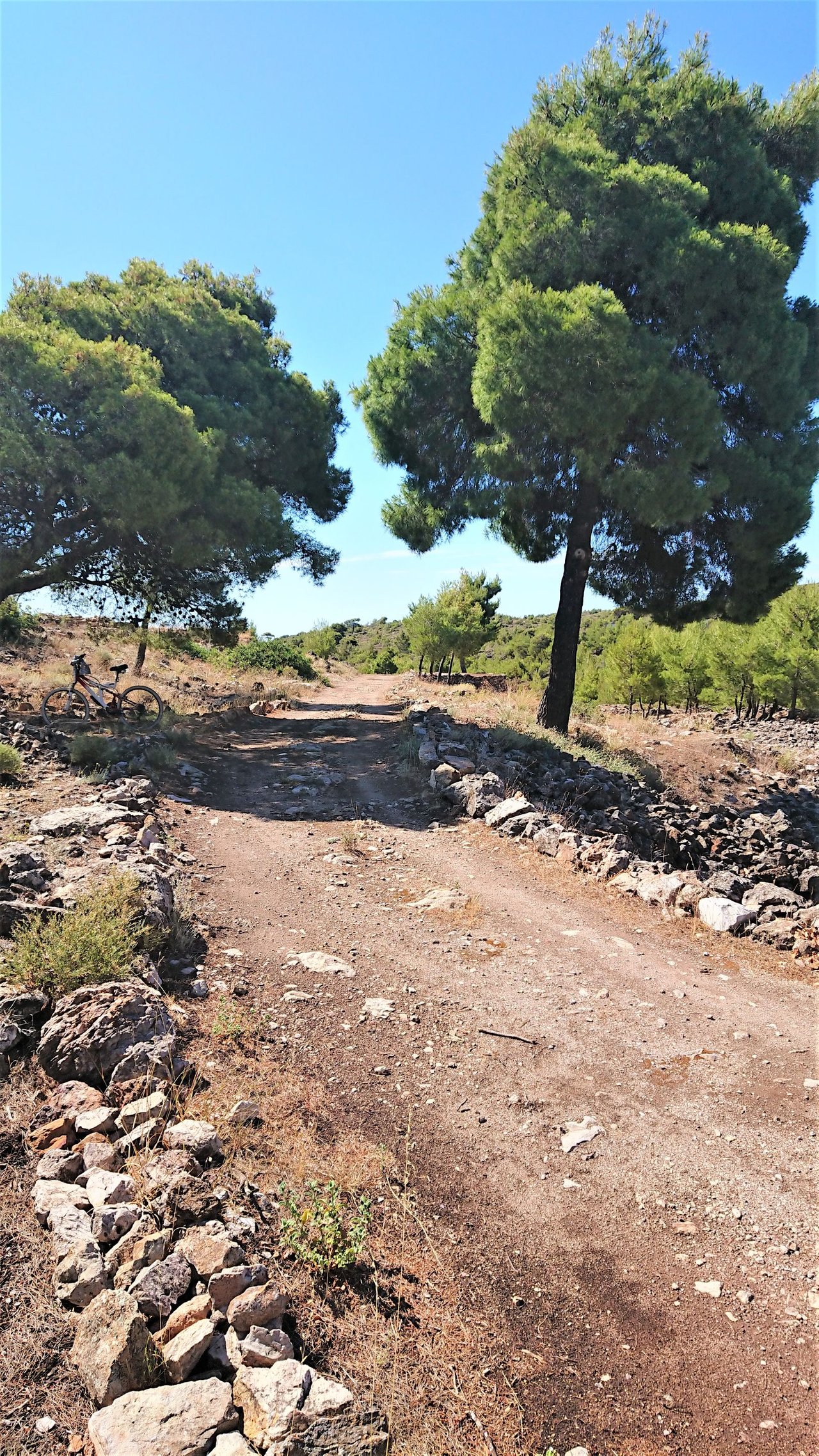
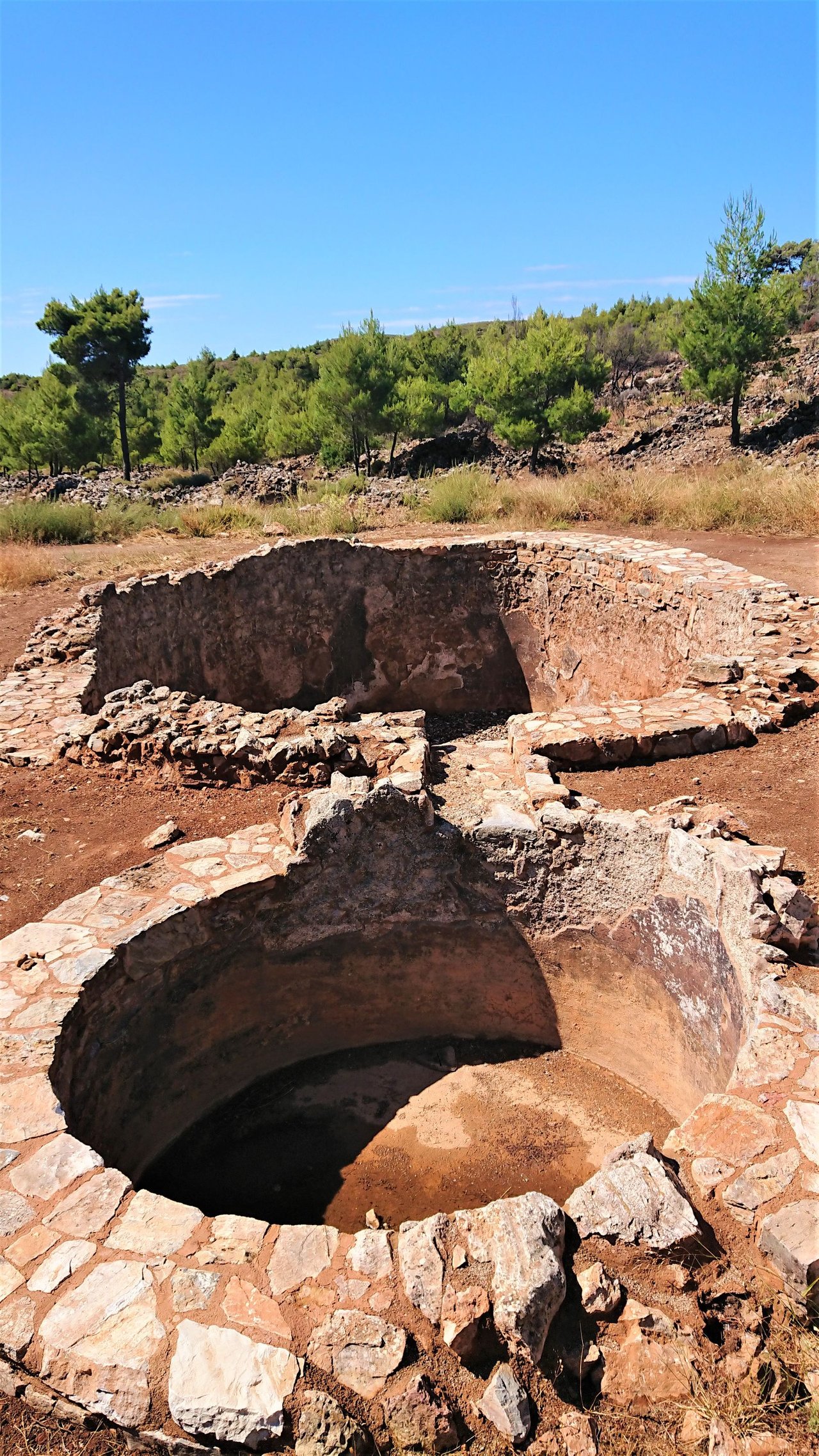
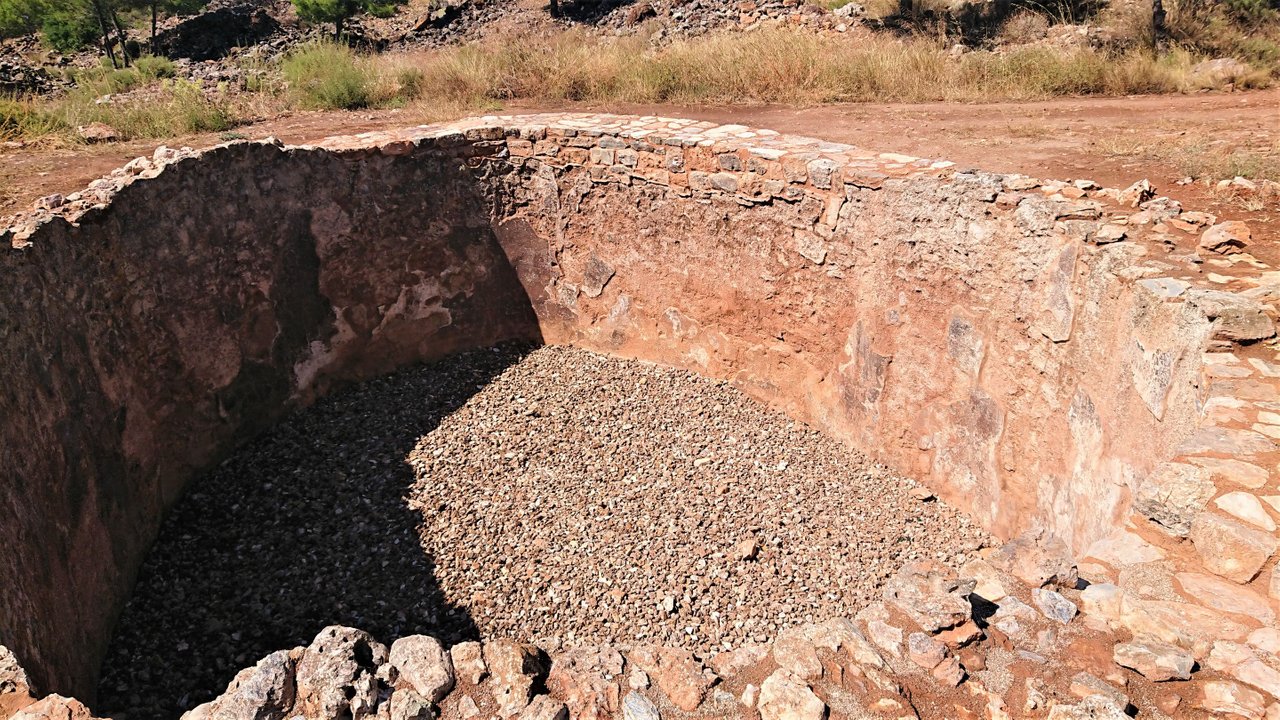
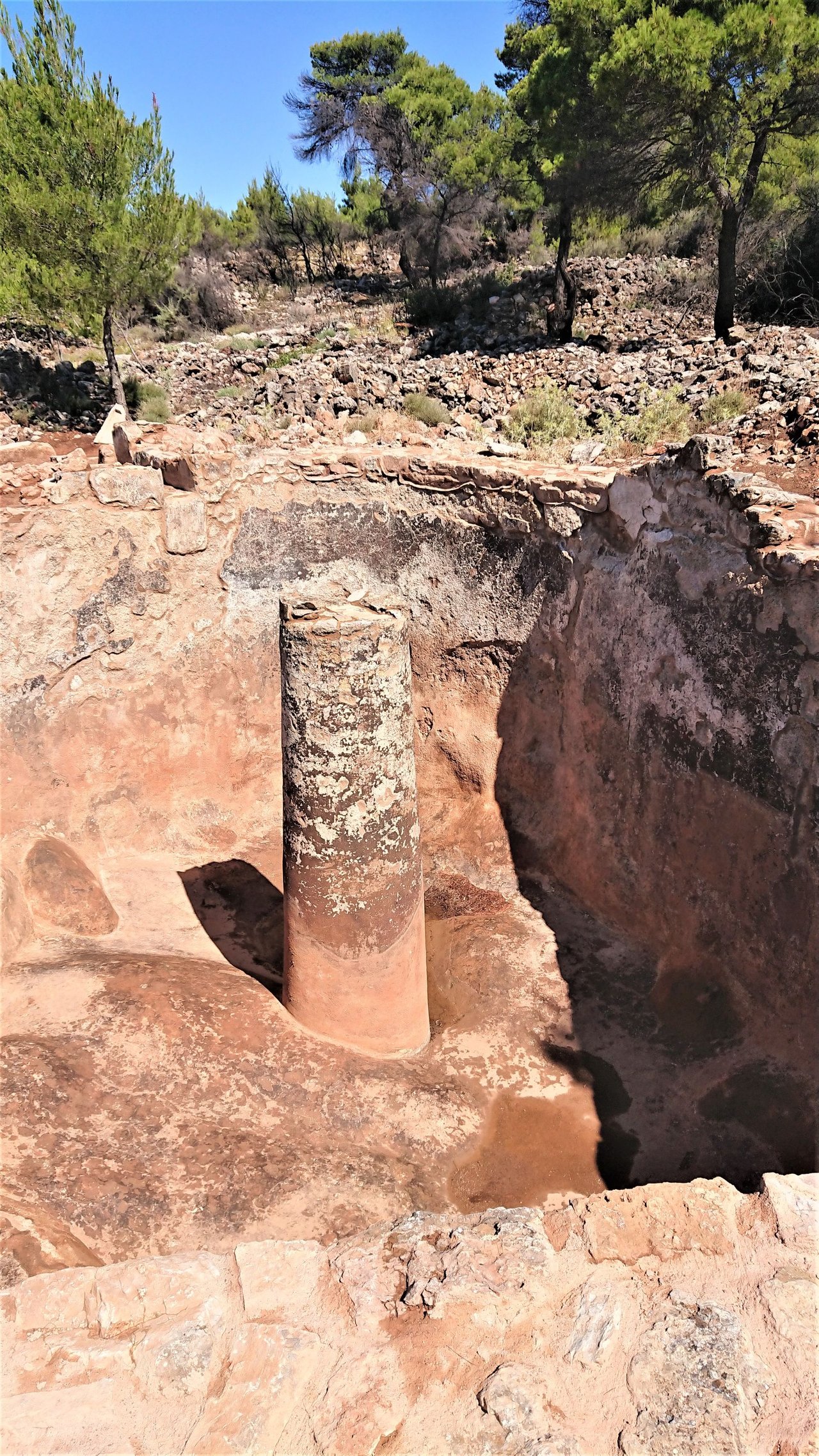
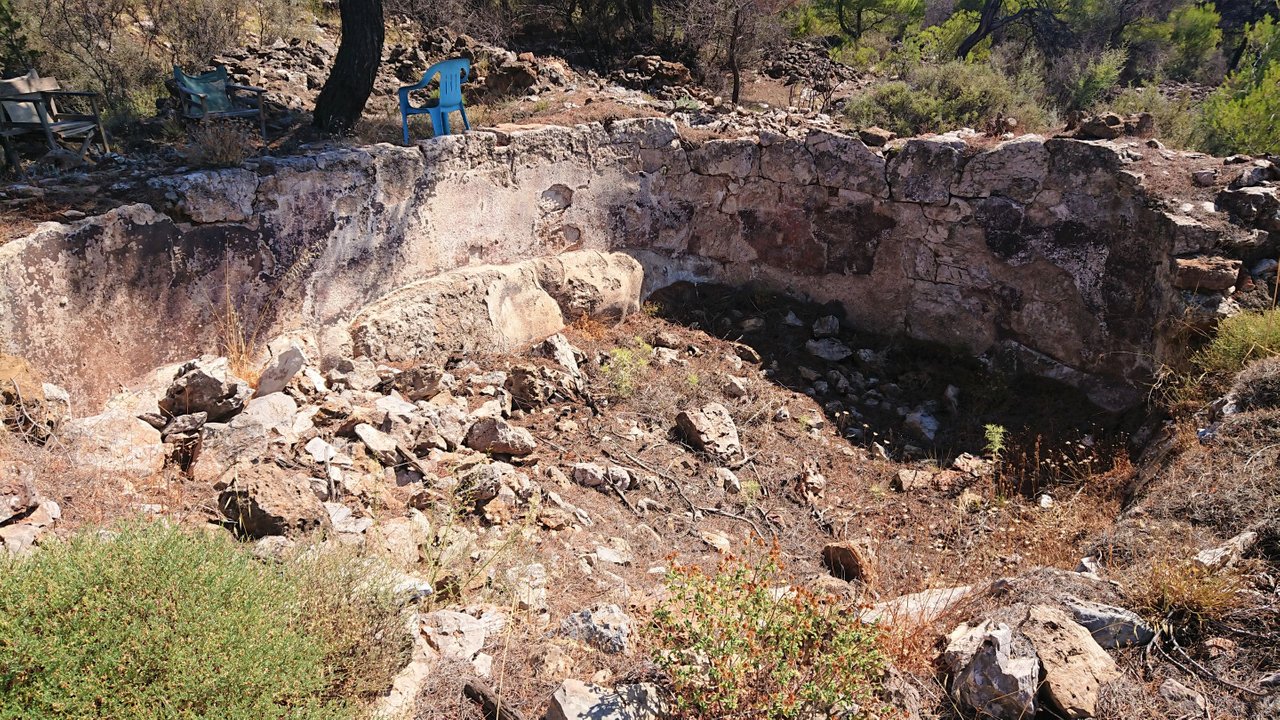
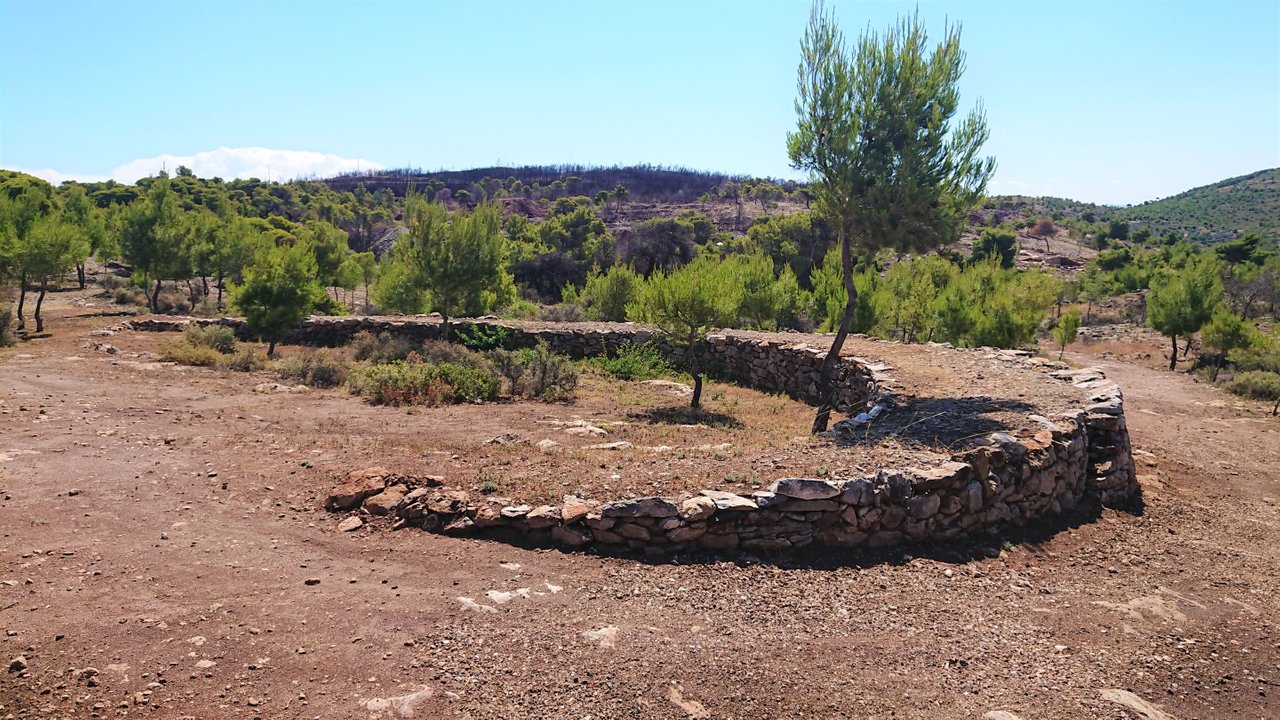
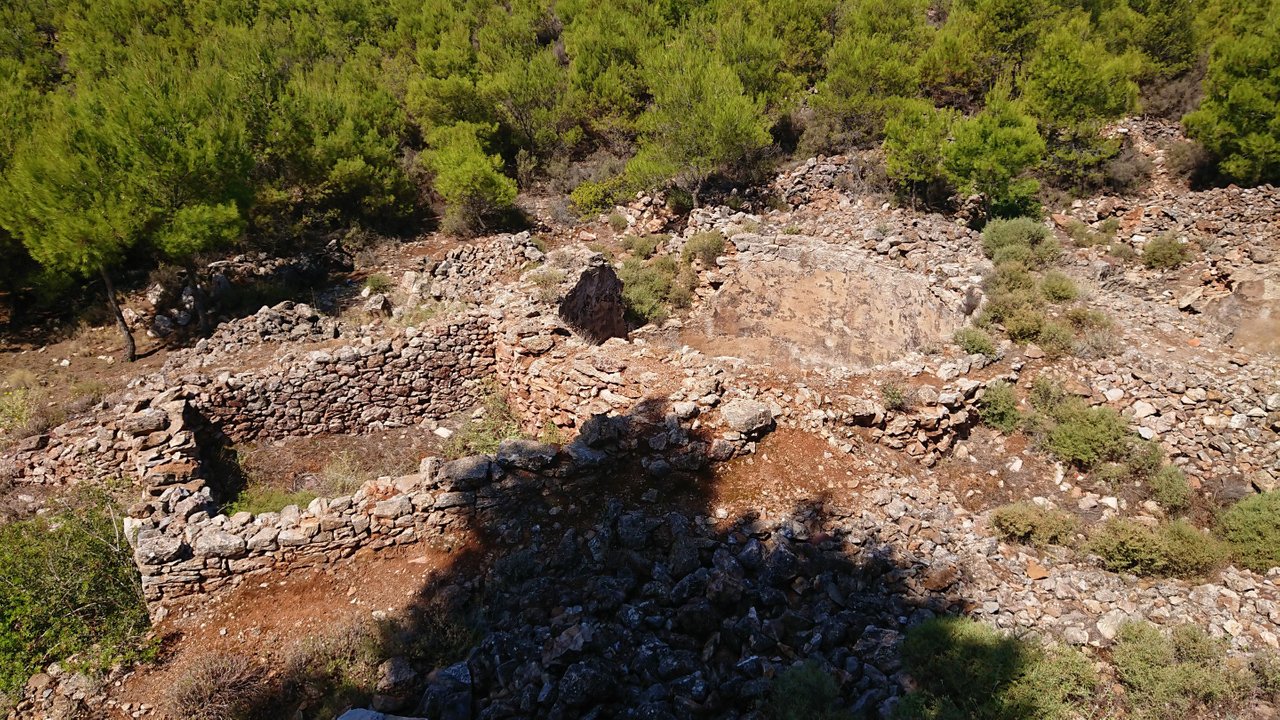
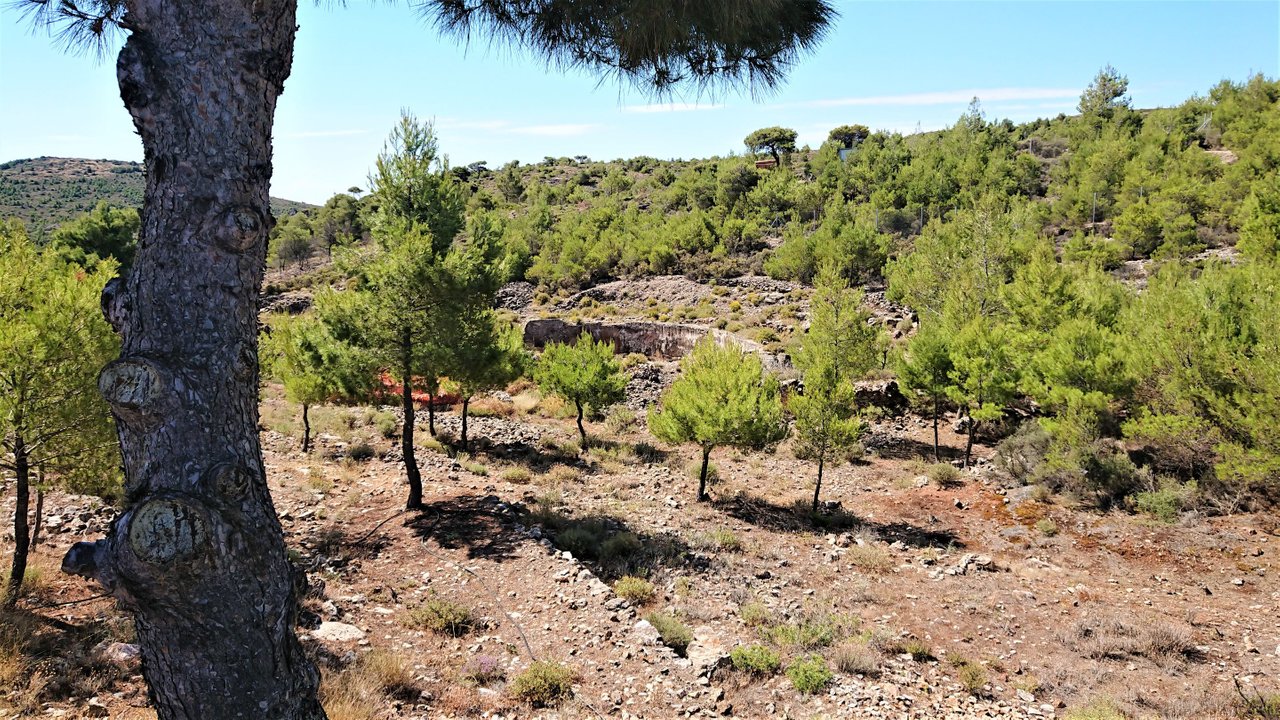
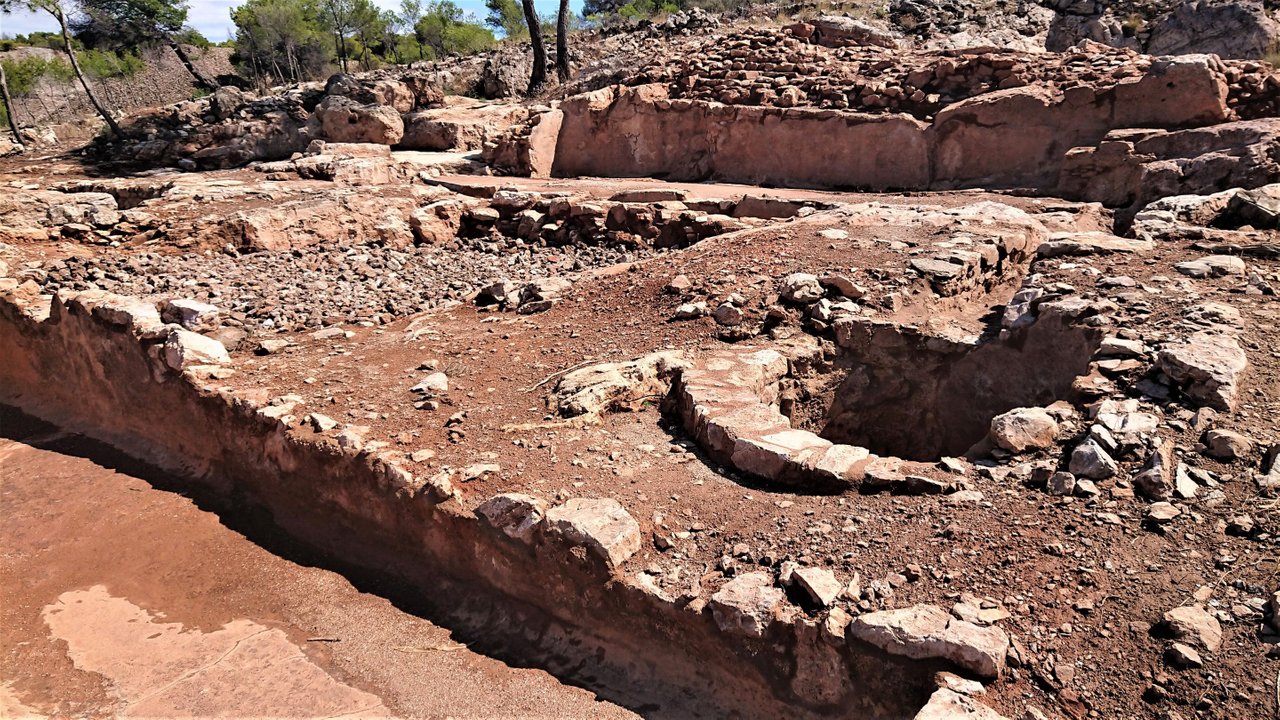
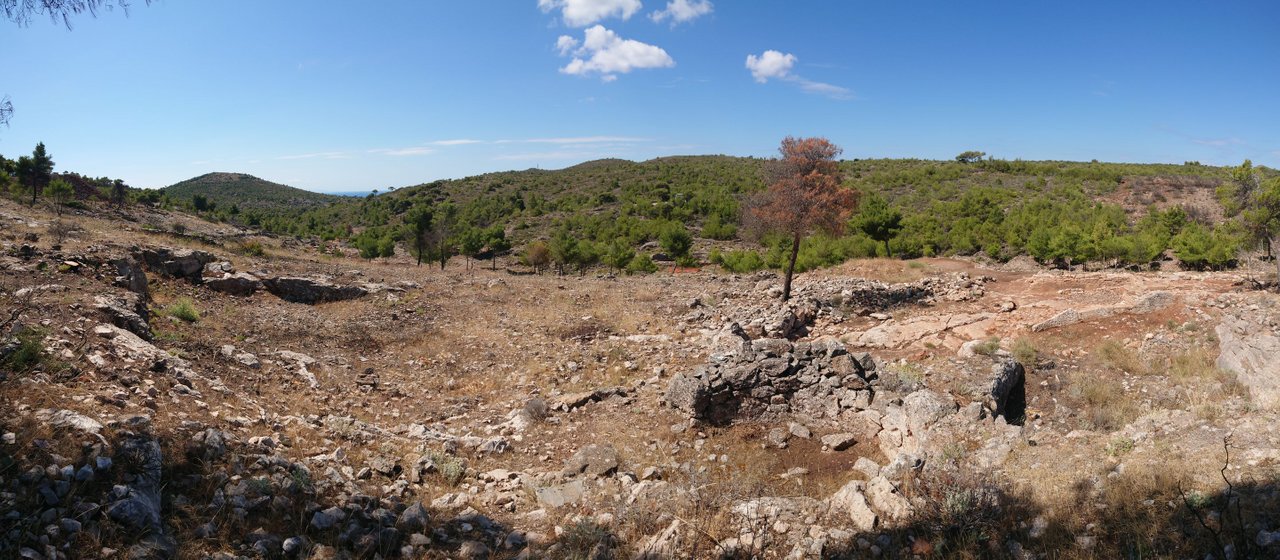
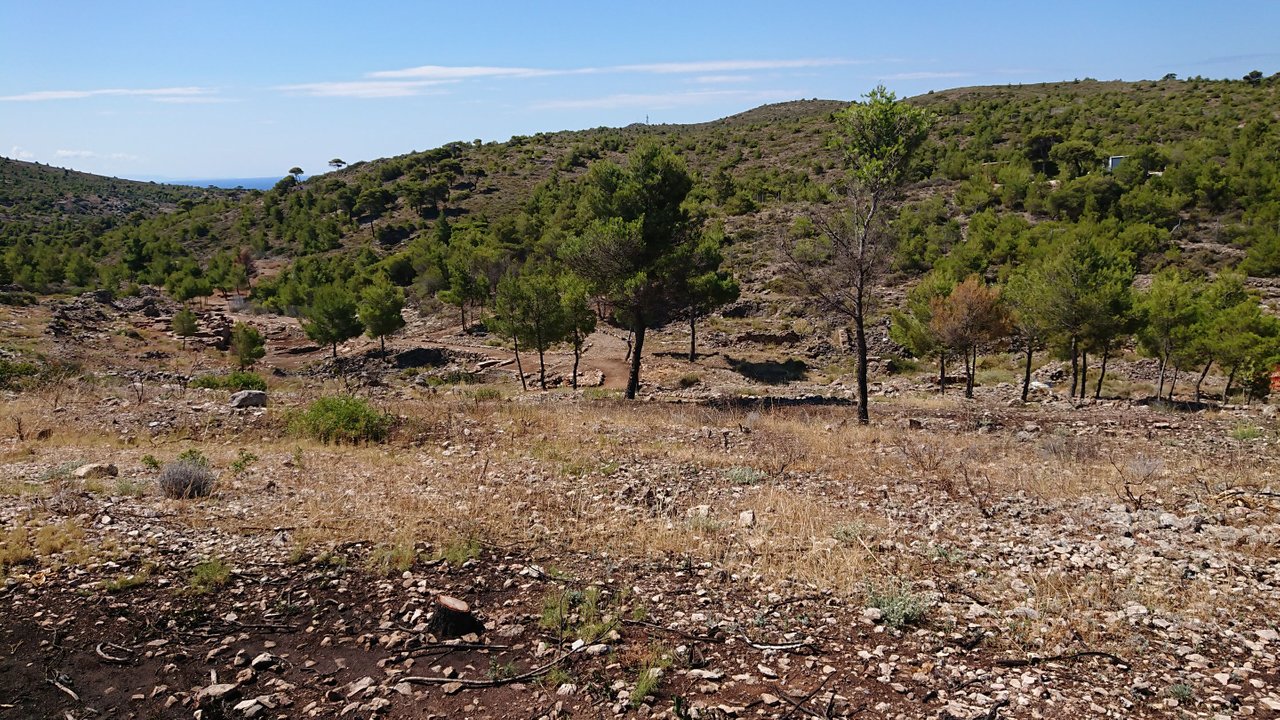
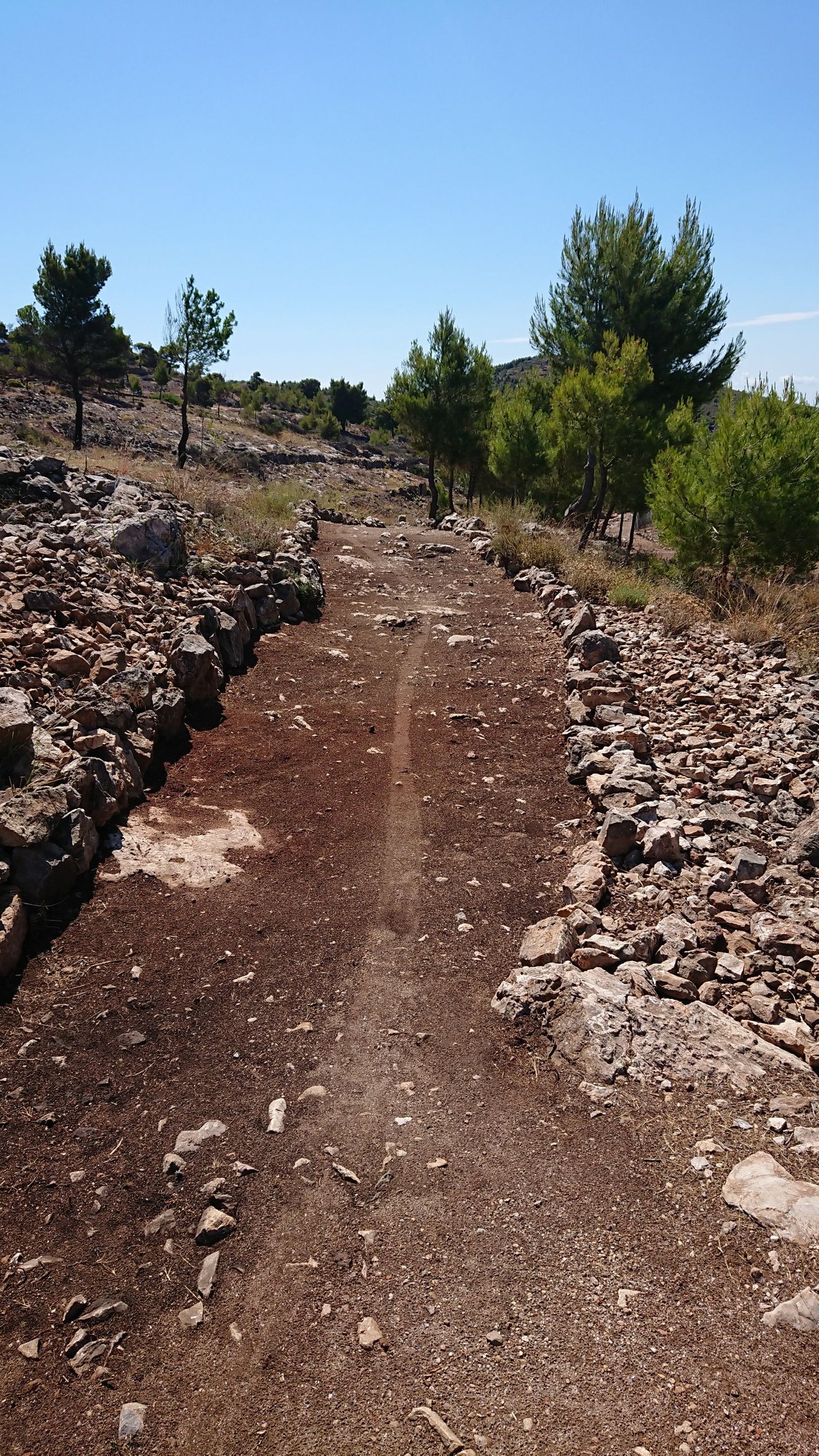
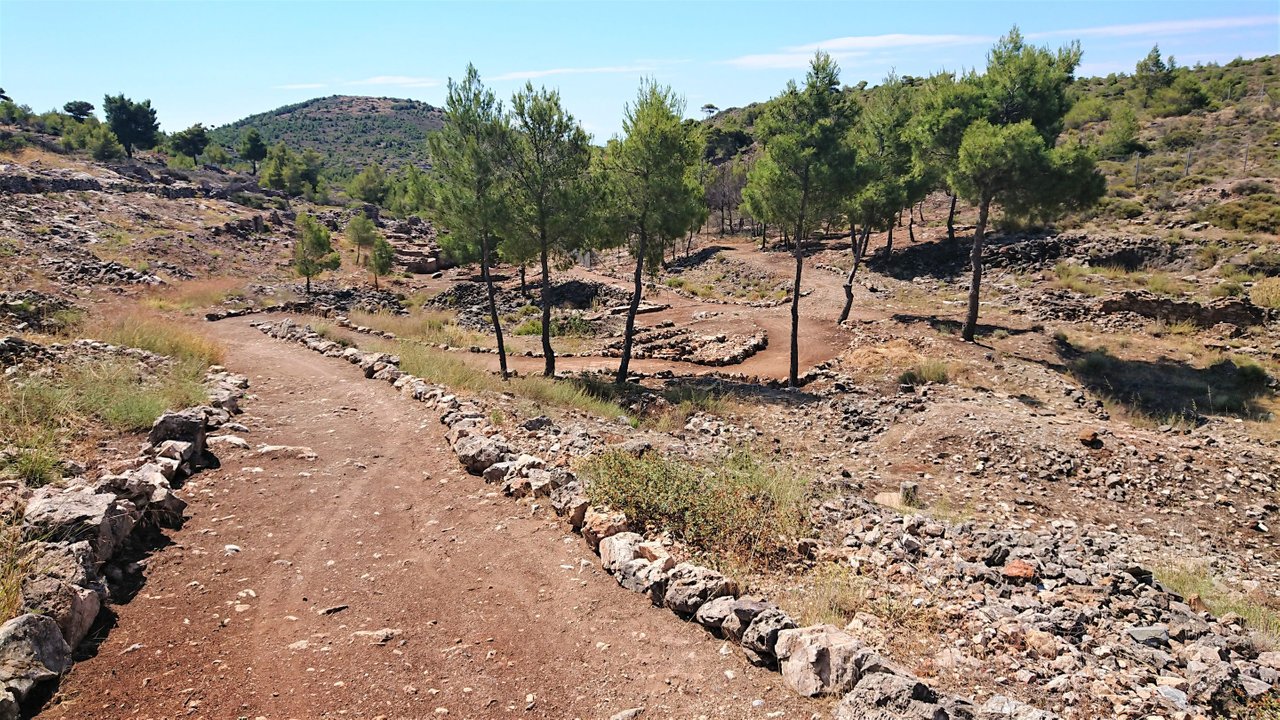
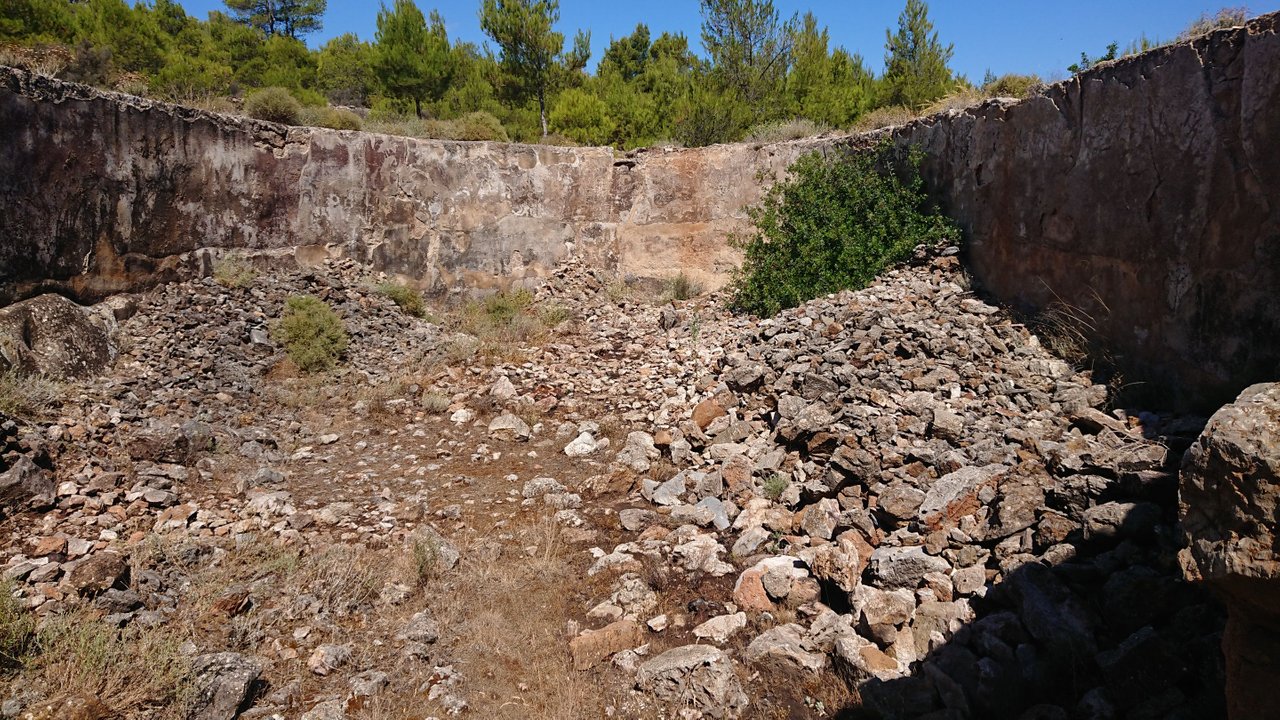
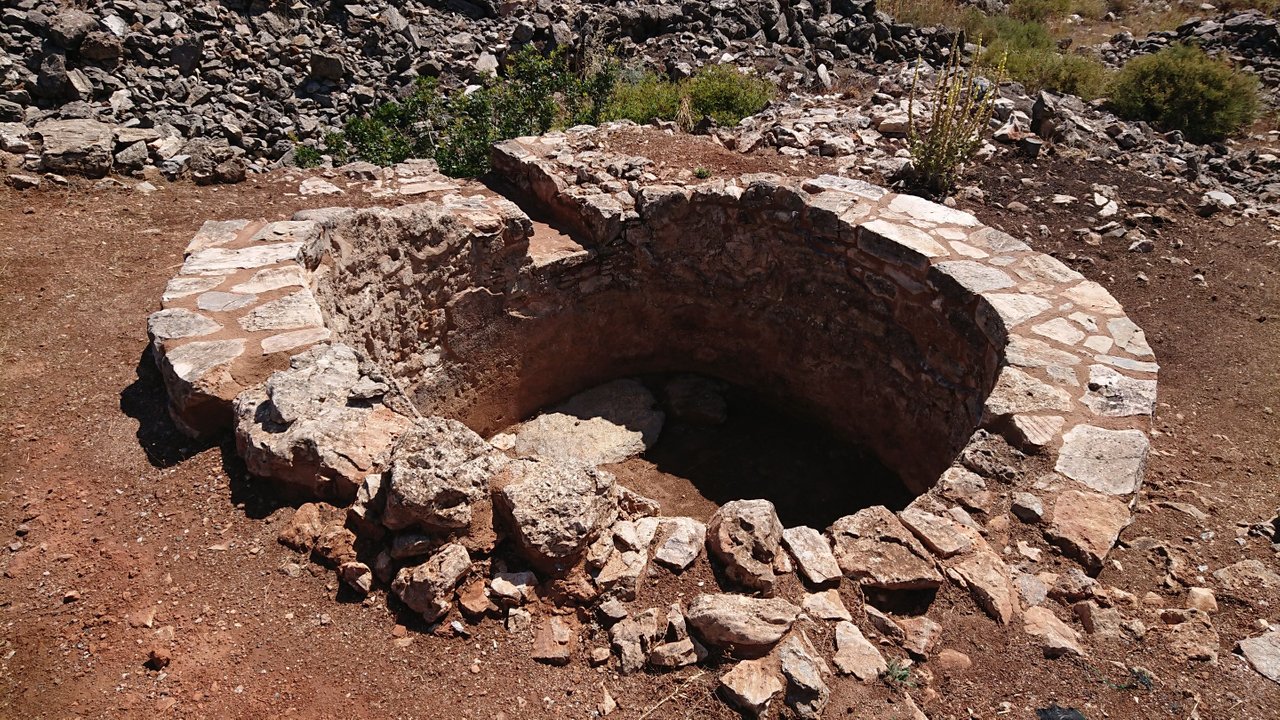
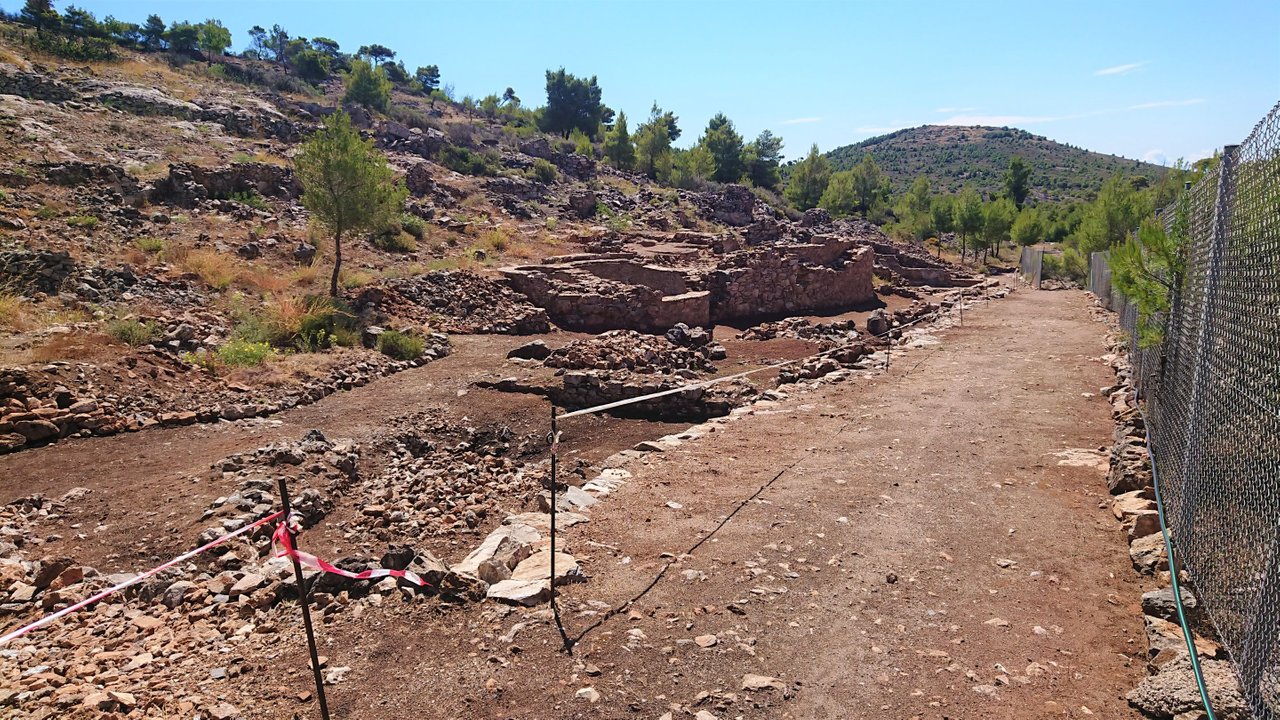
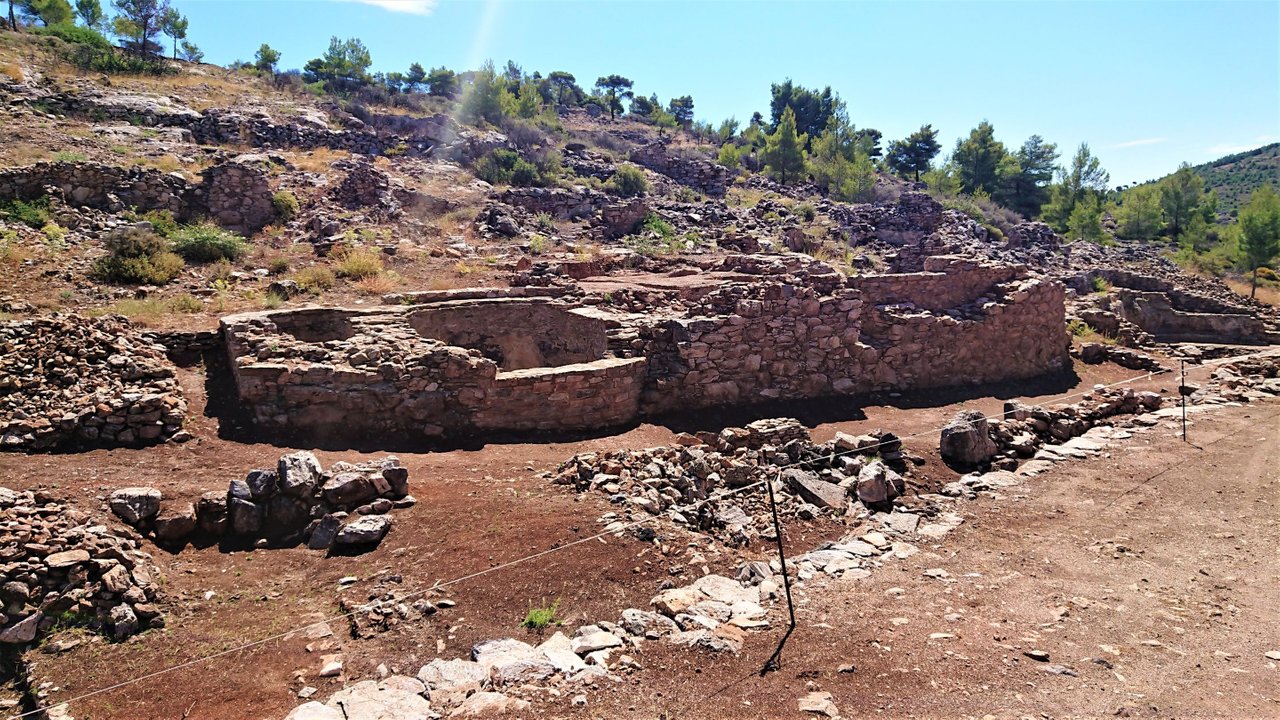
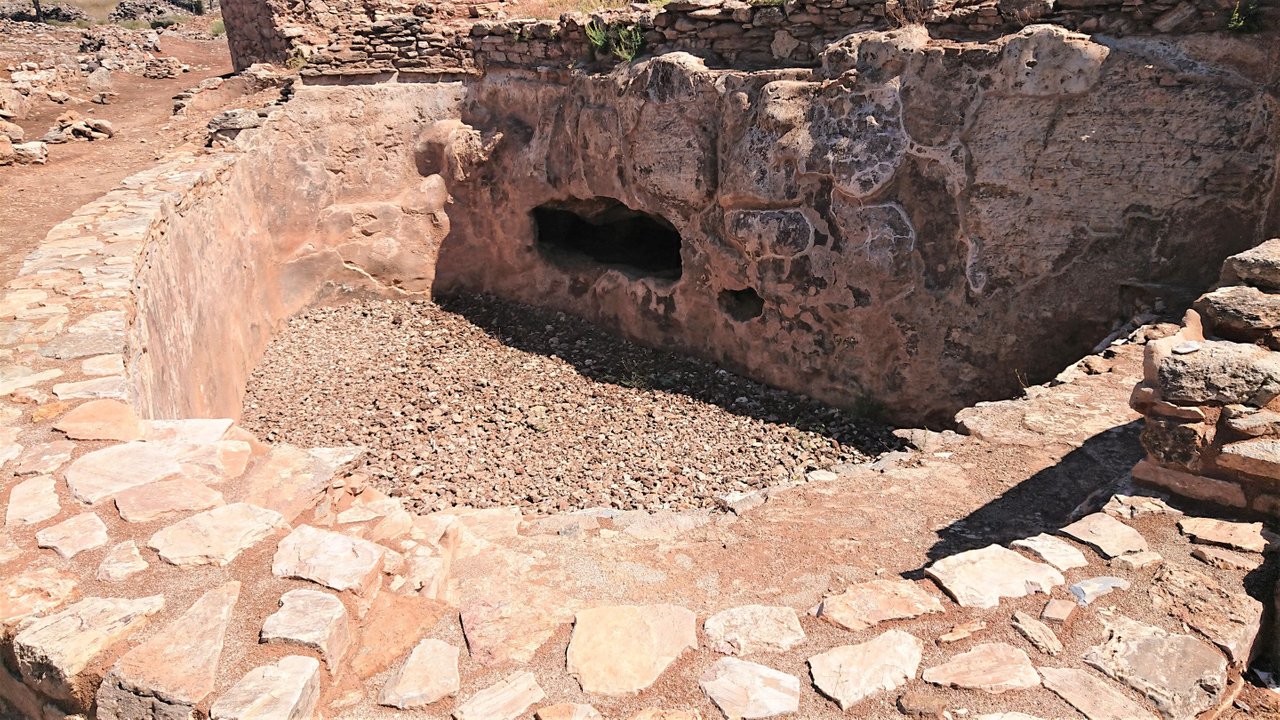
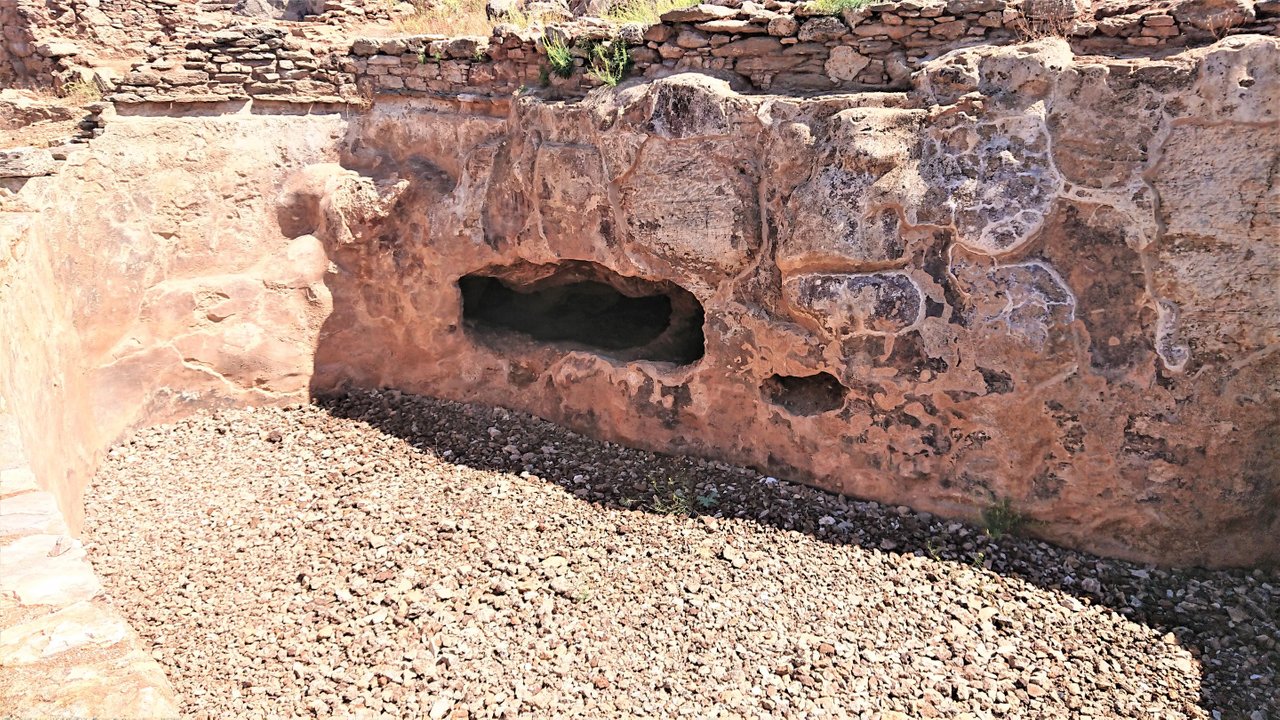
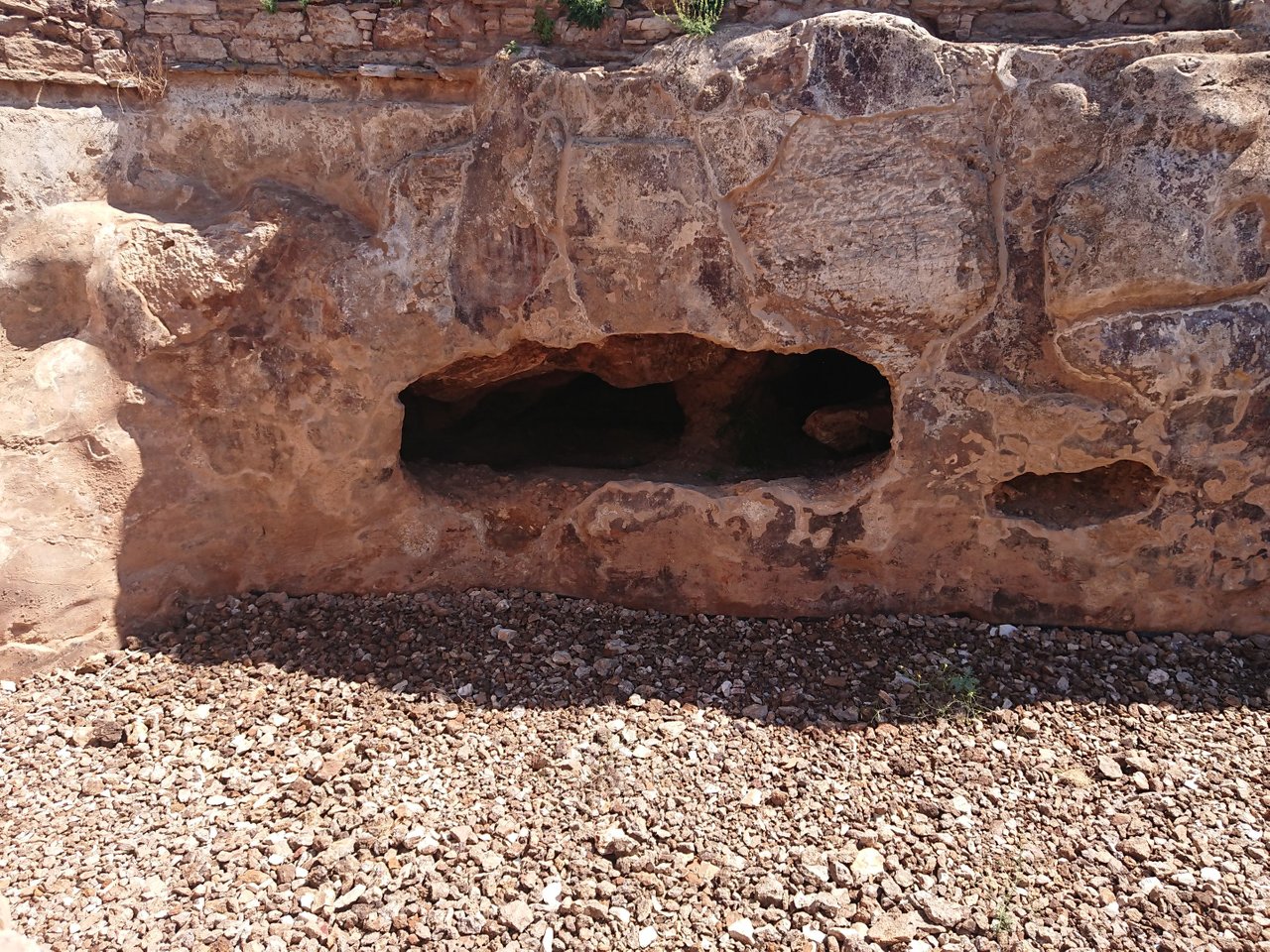
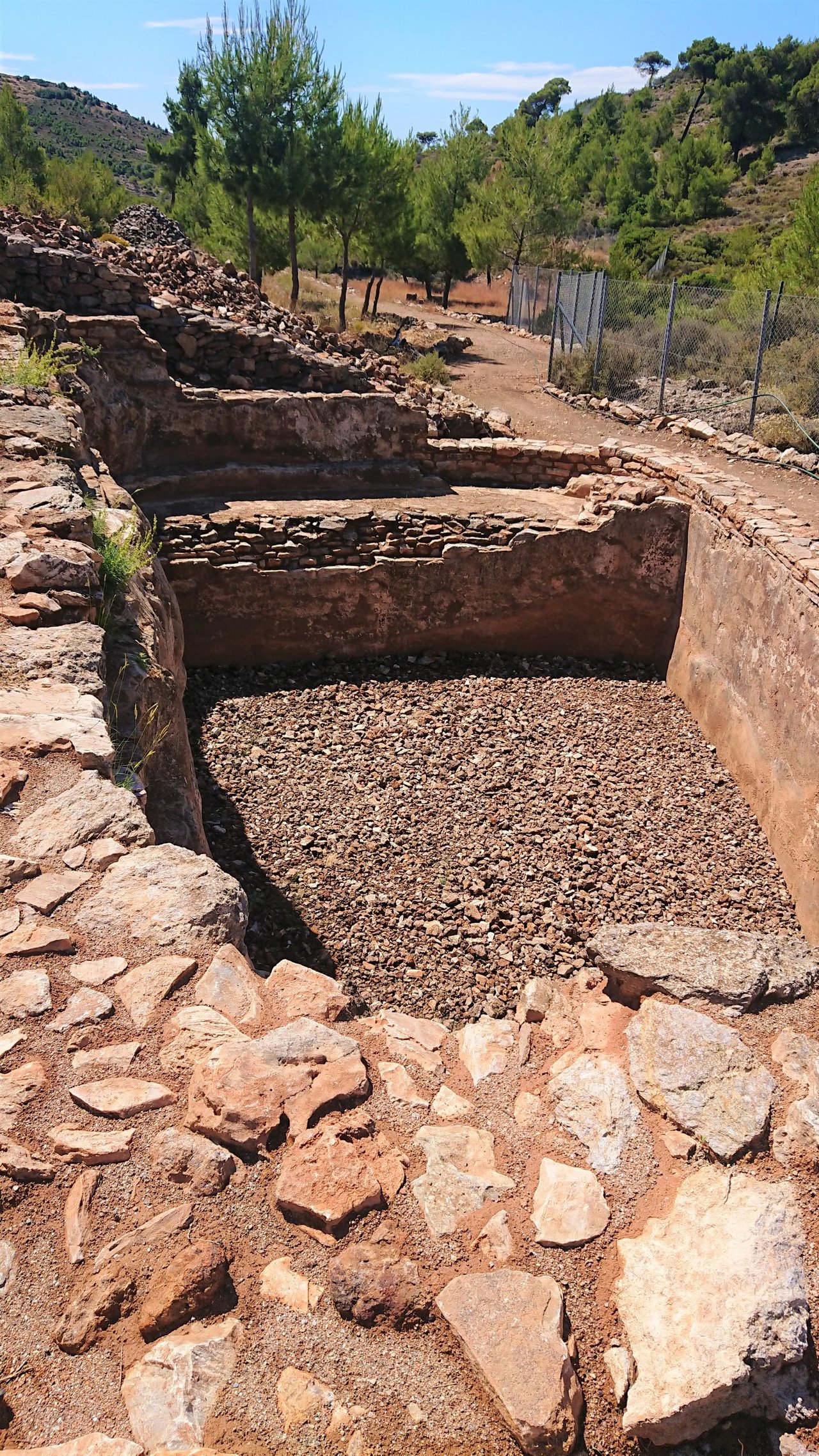
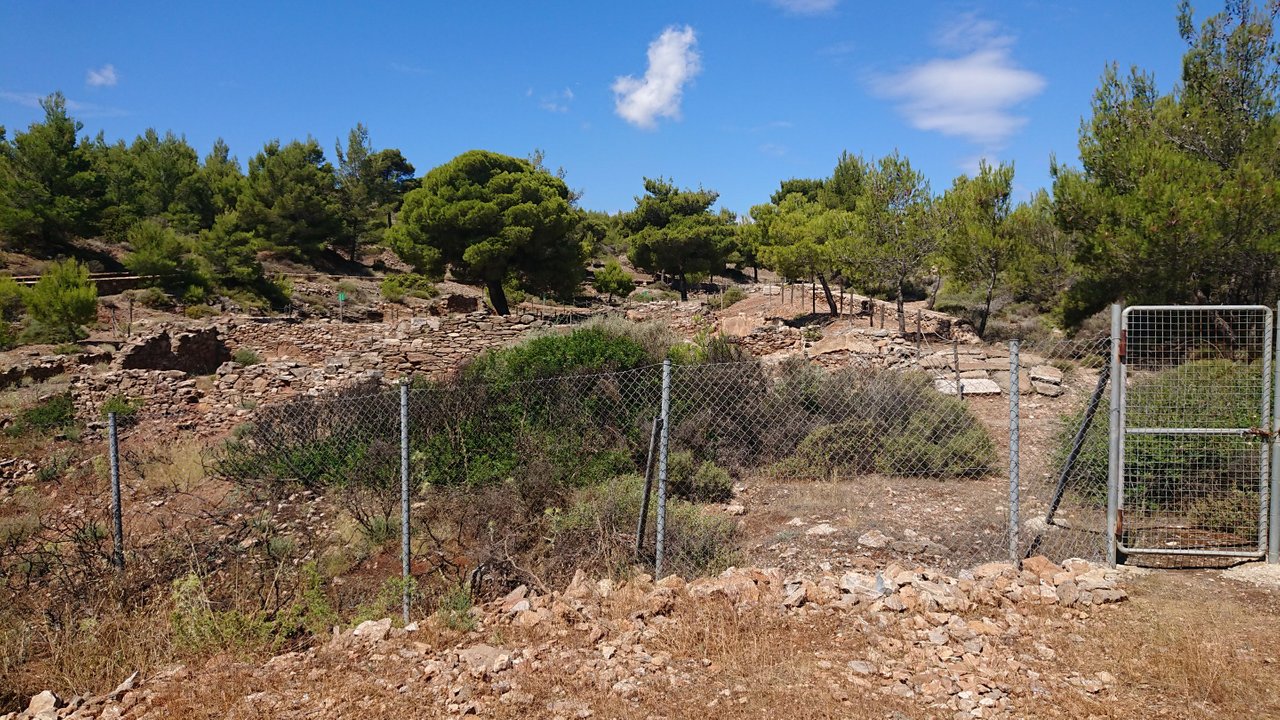
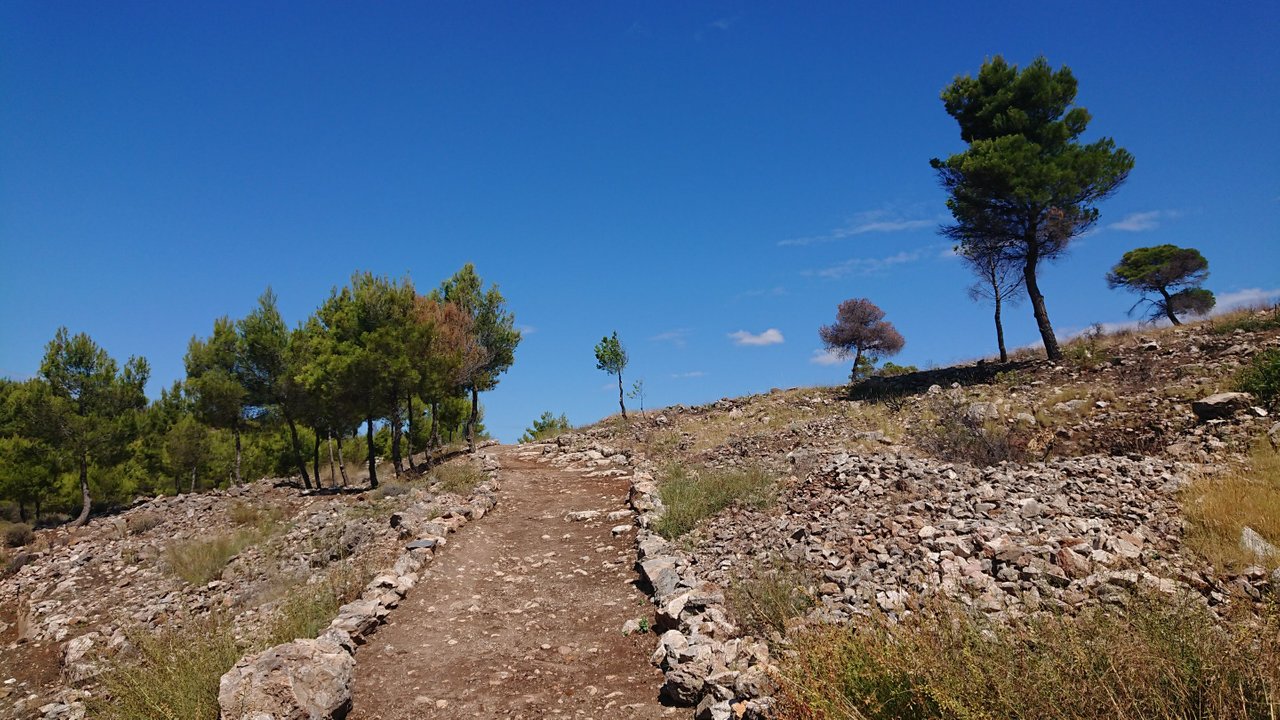
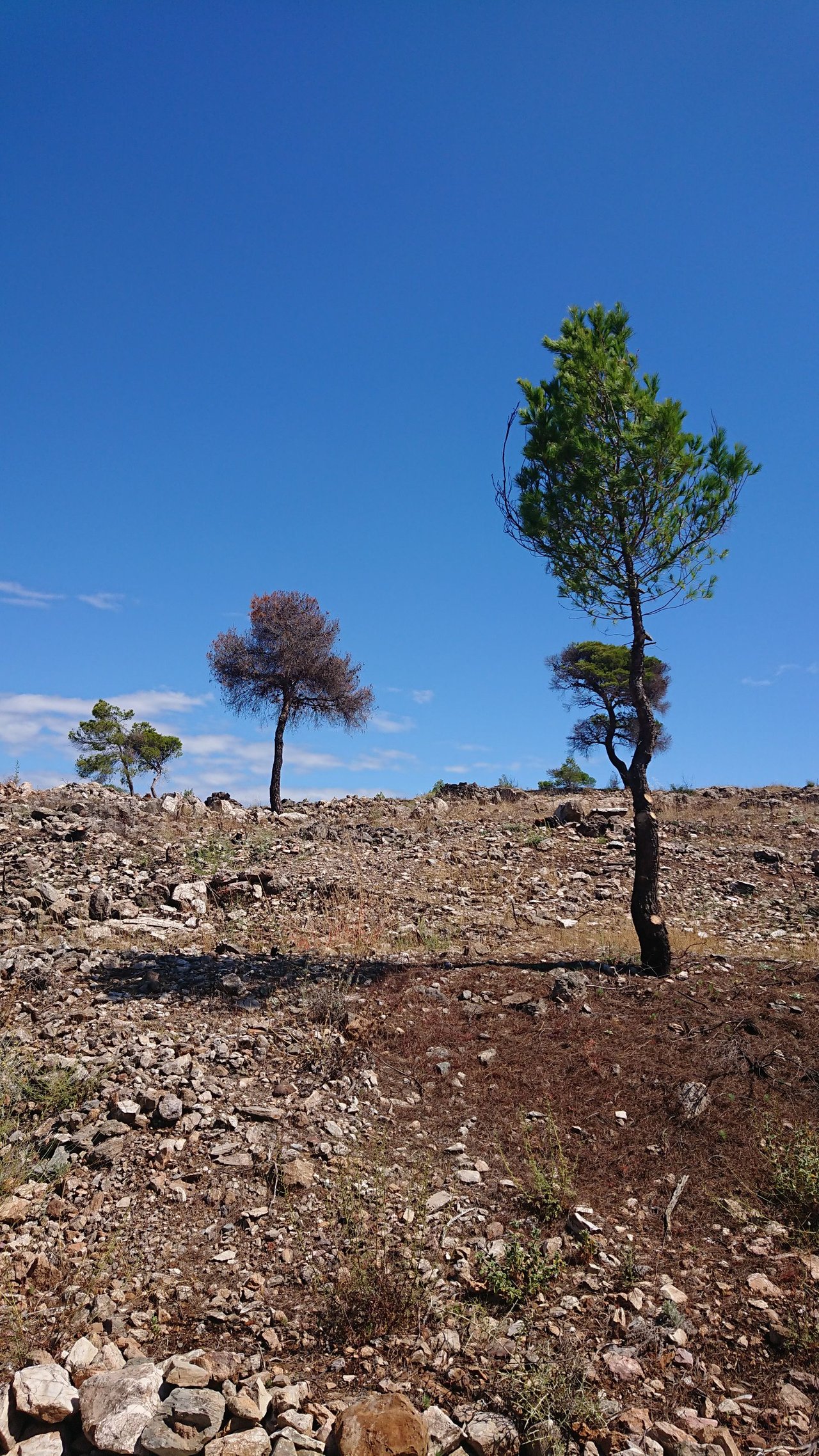
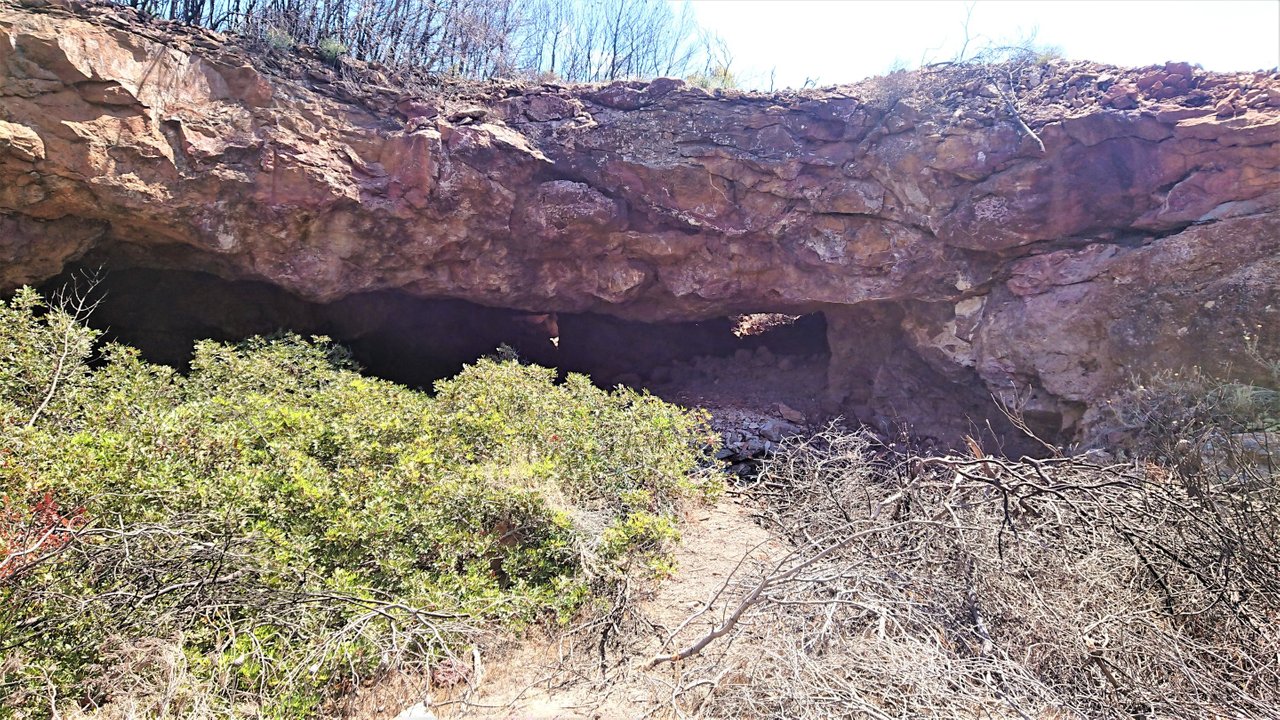
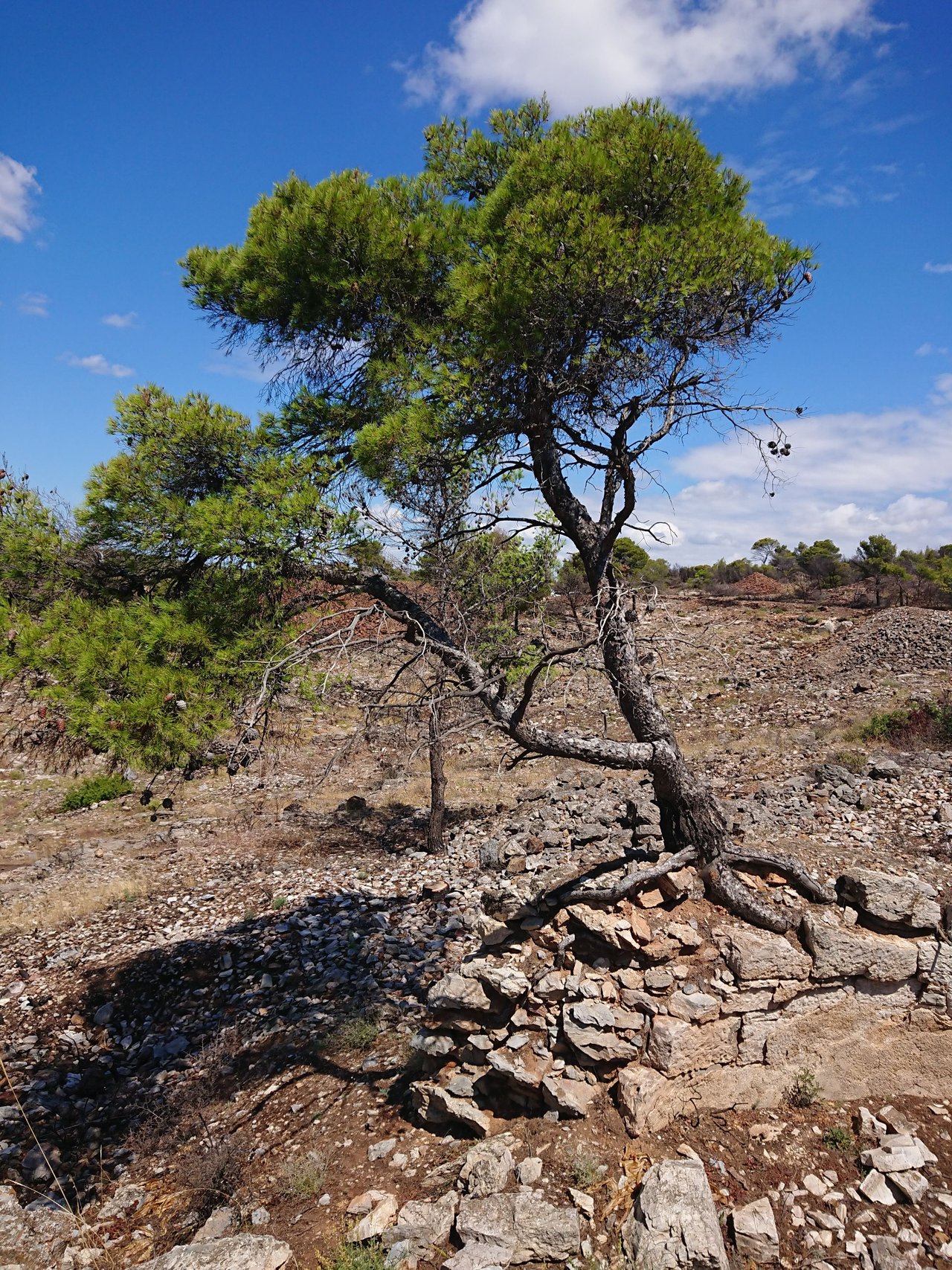
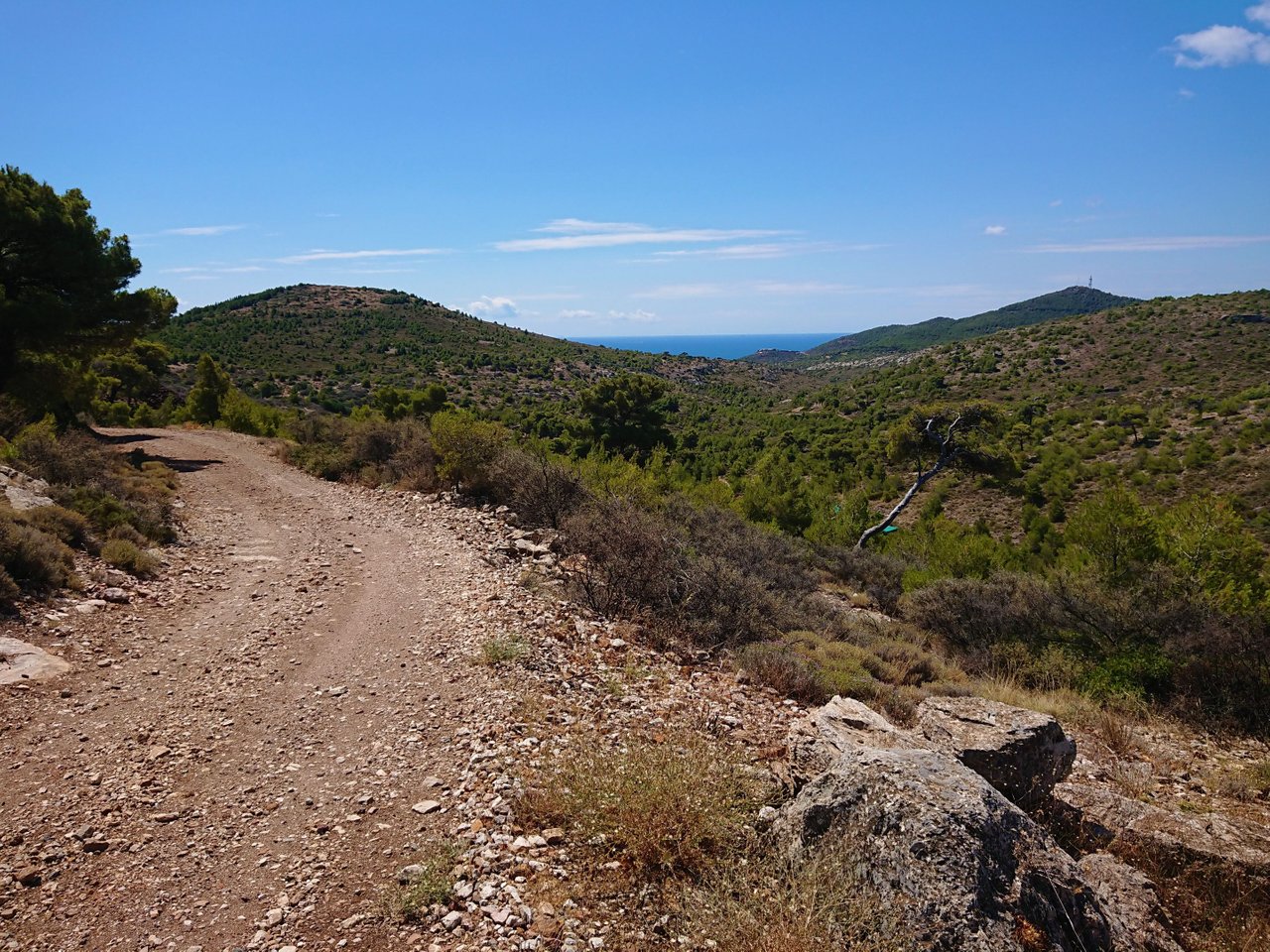
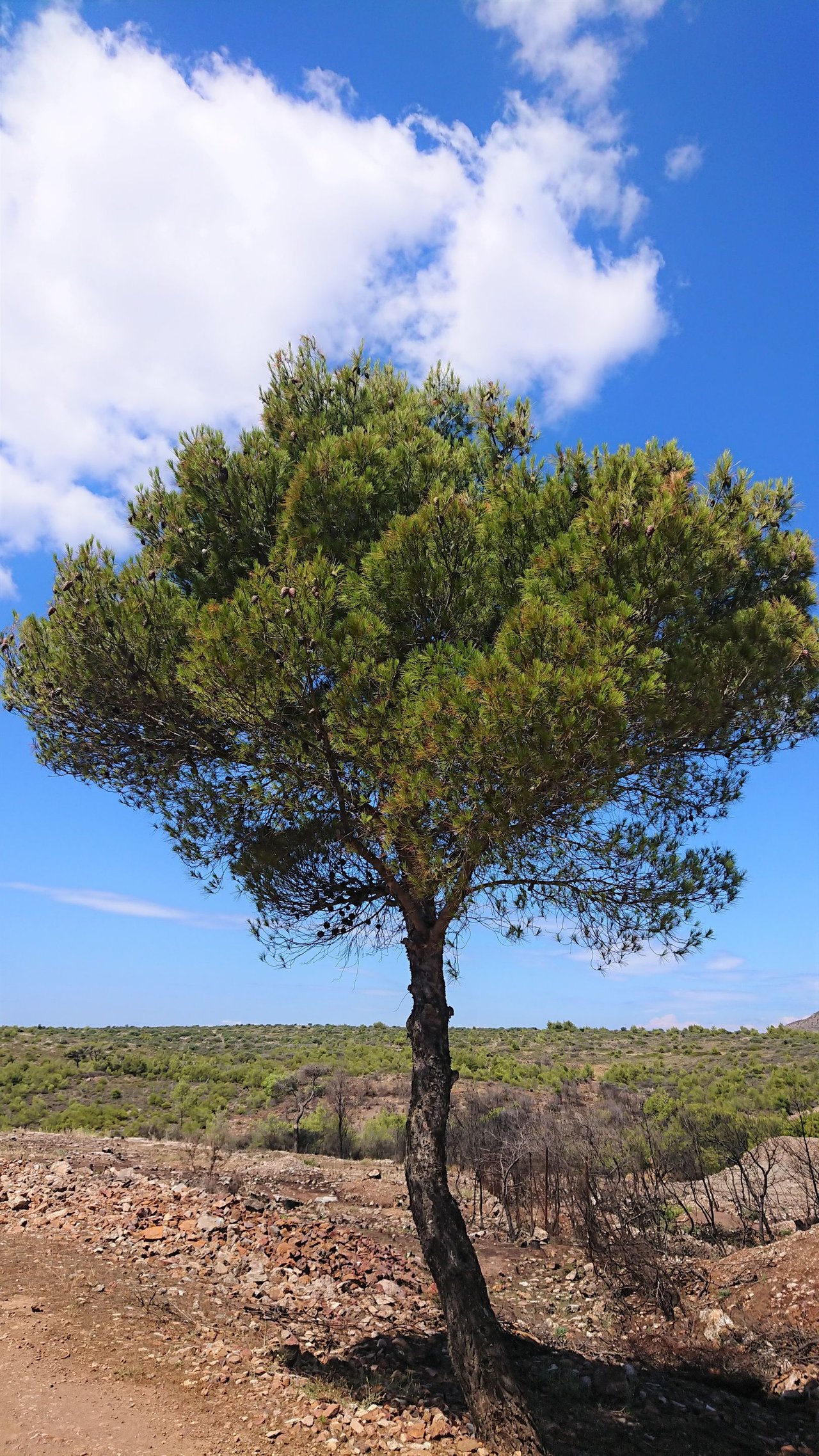
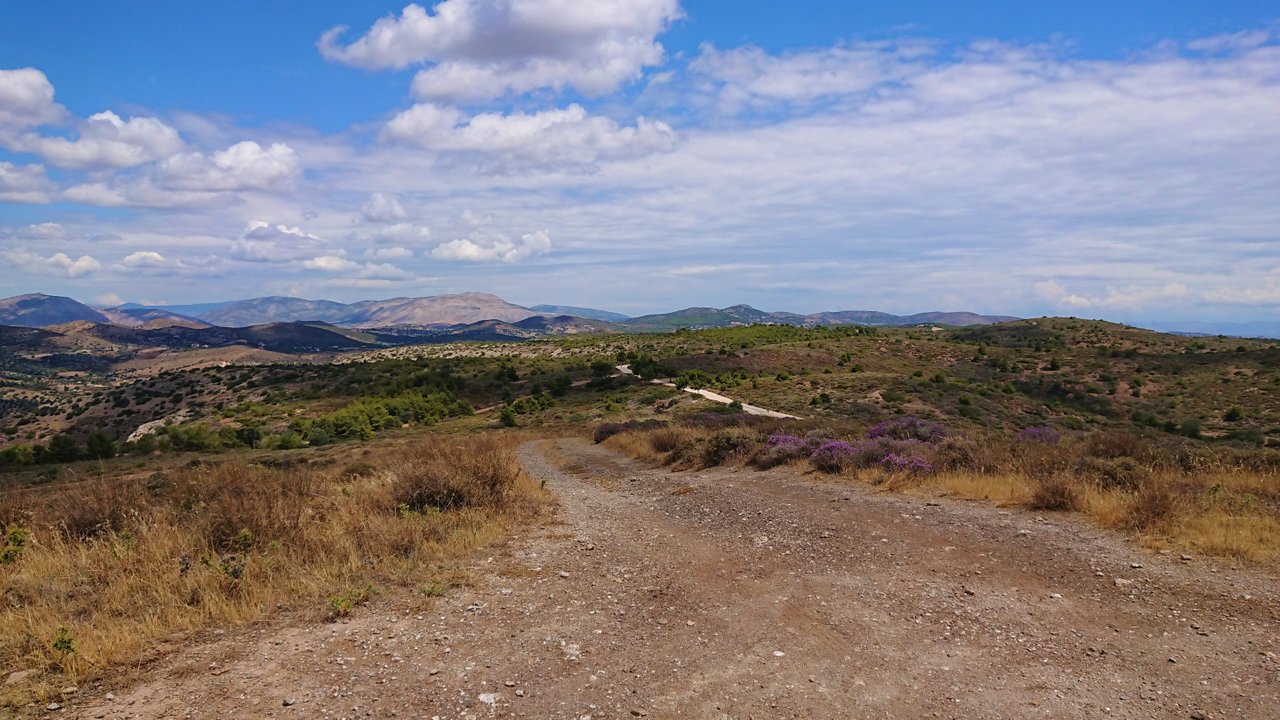








































No comments:
Post a Comment